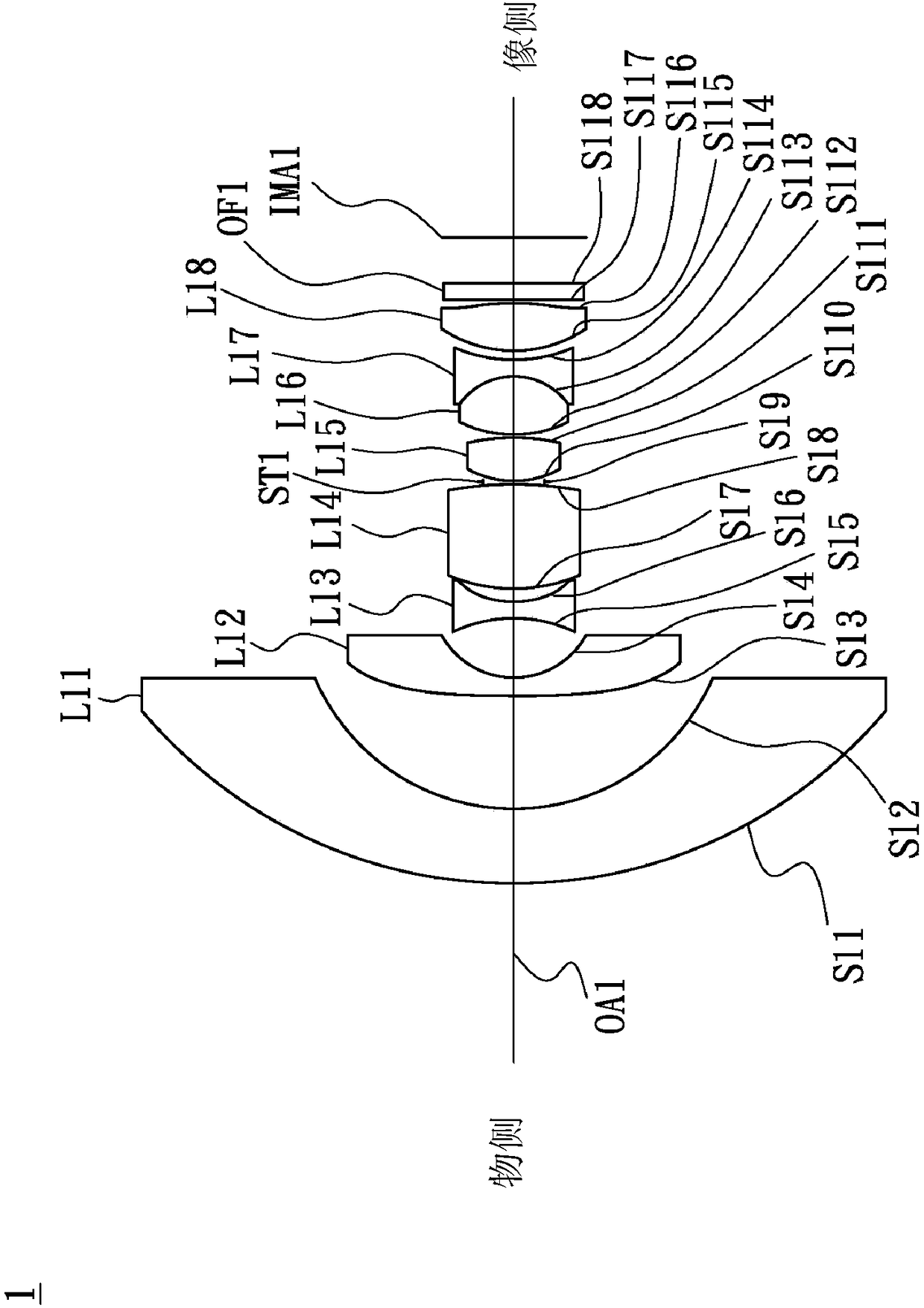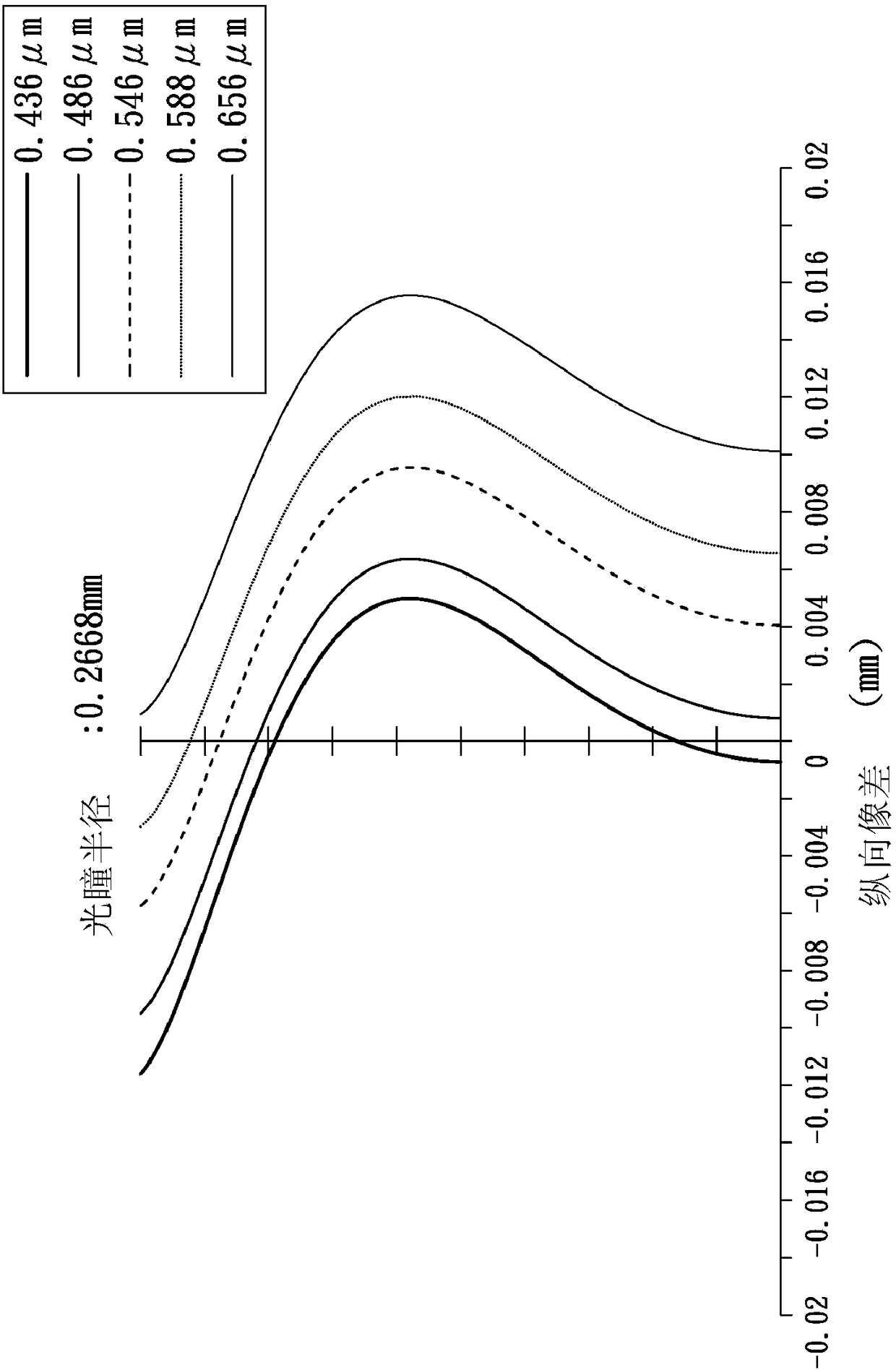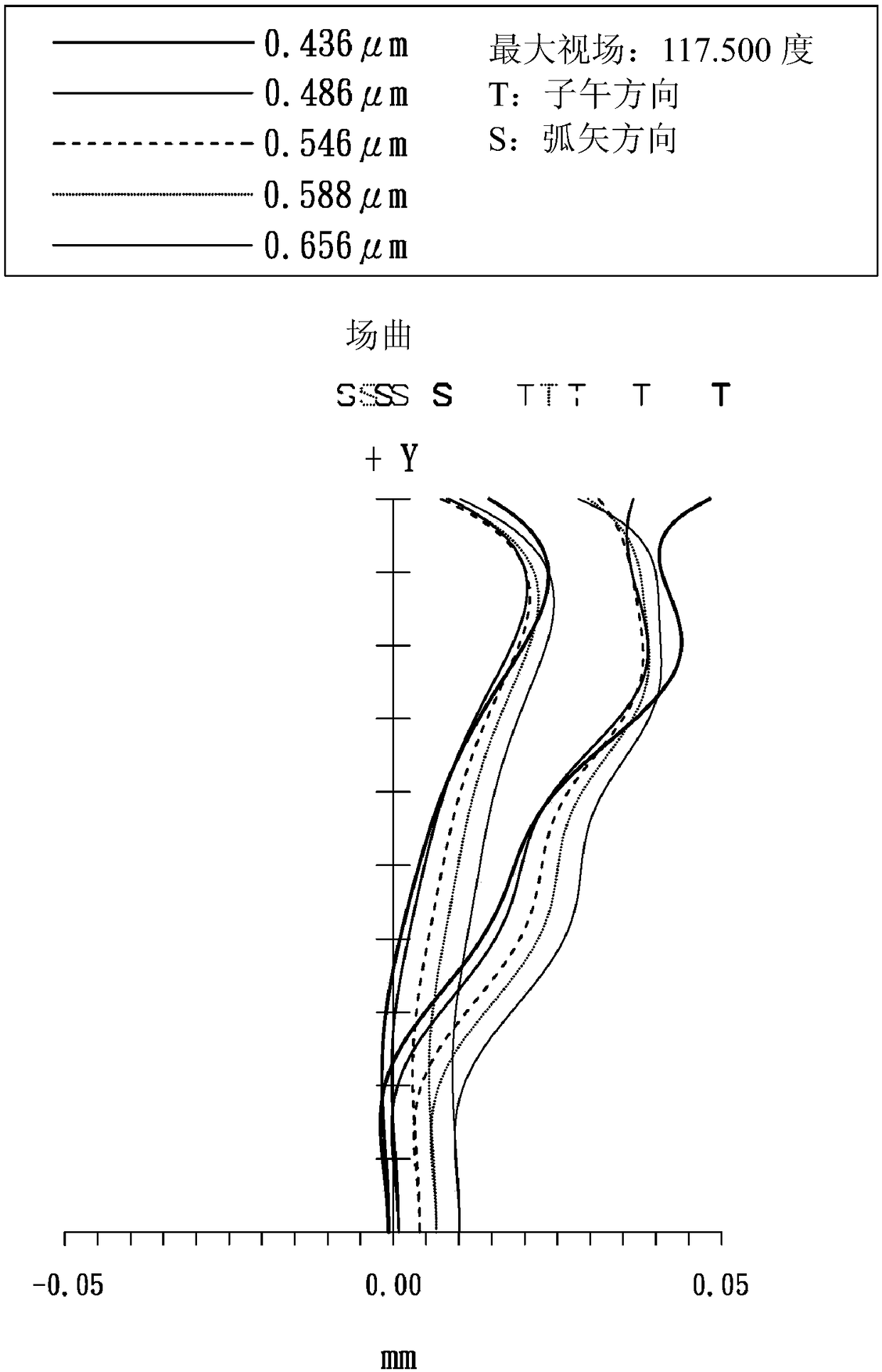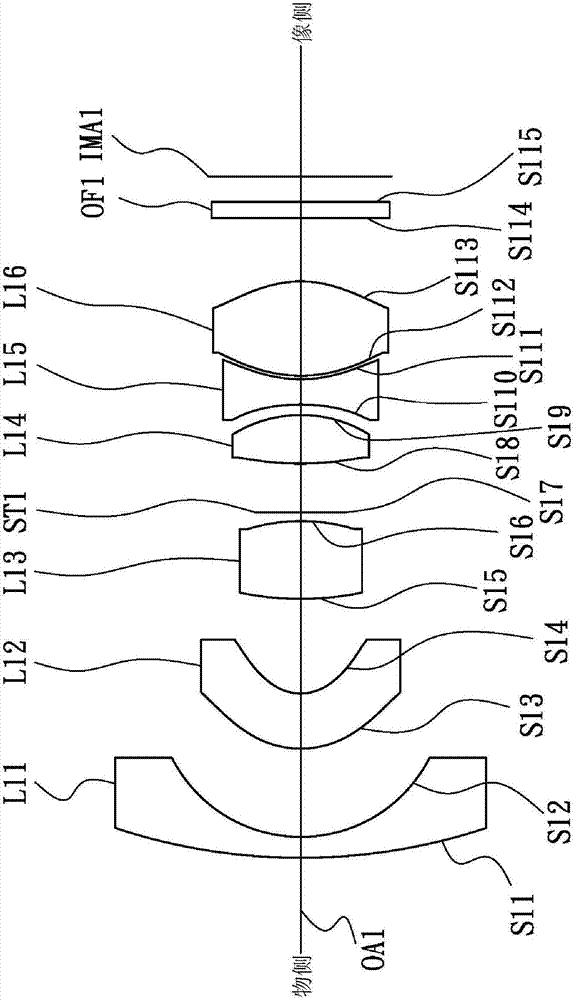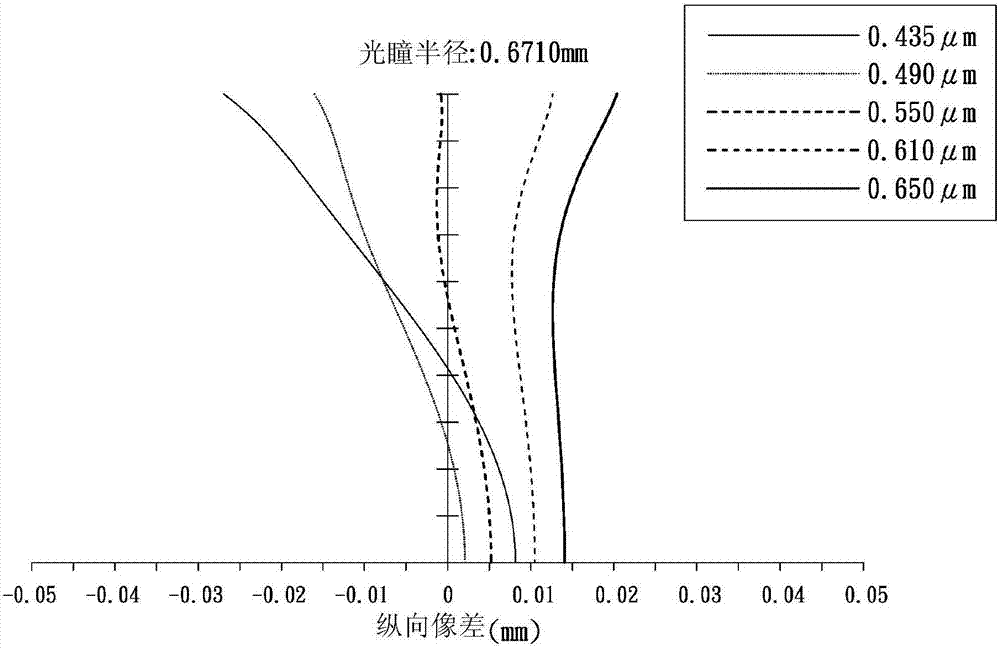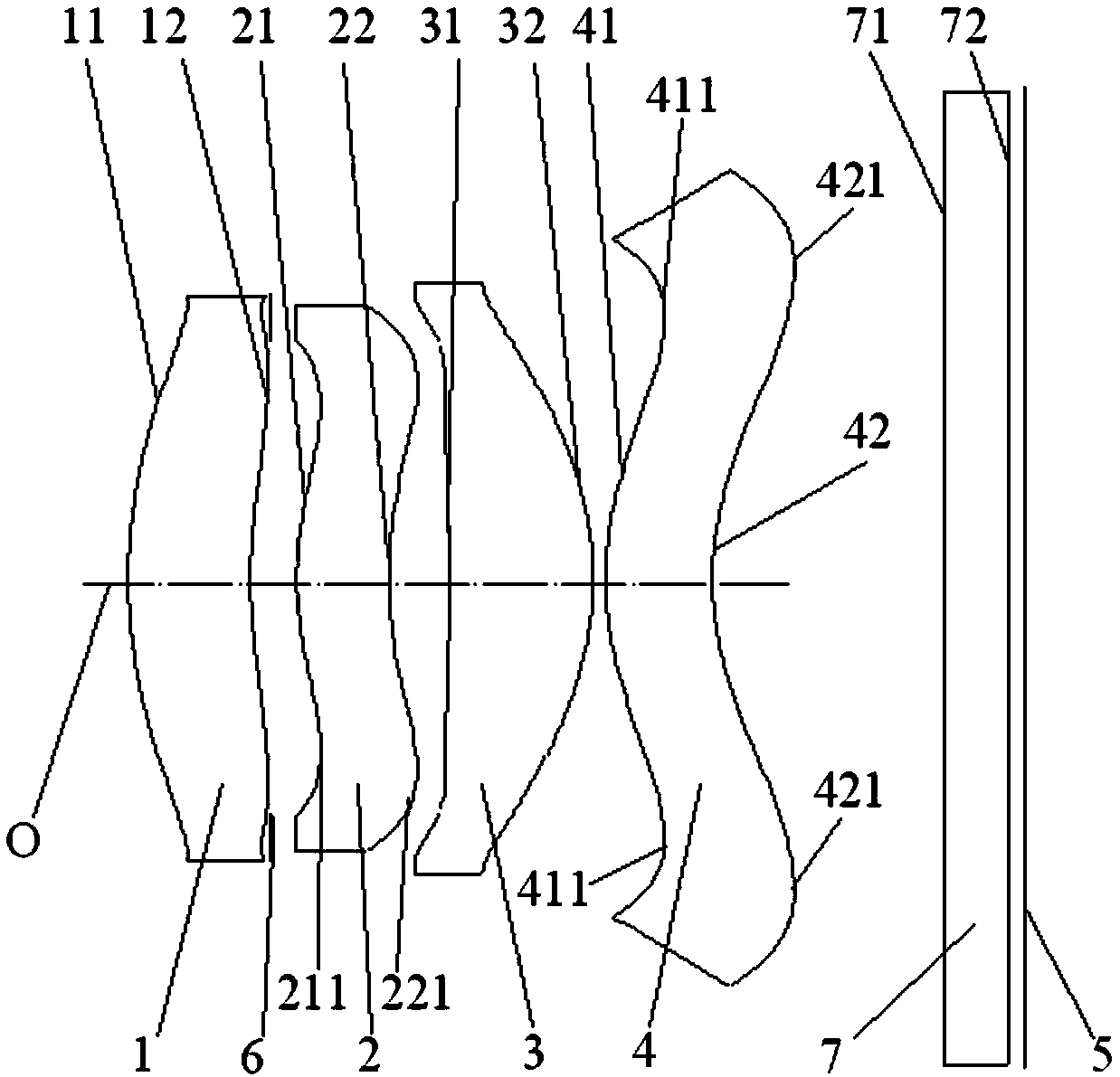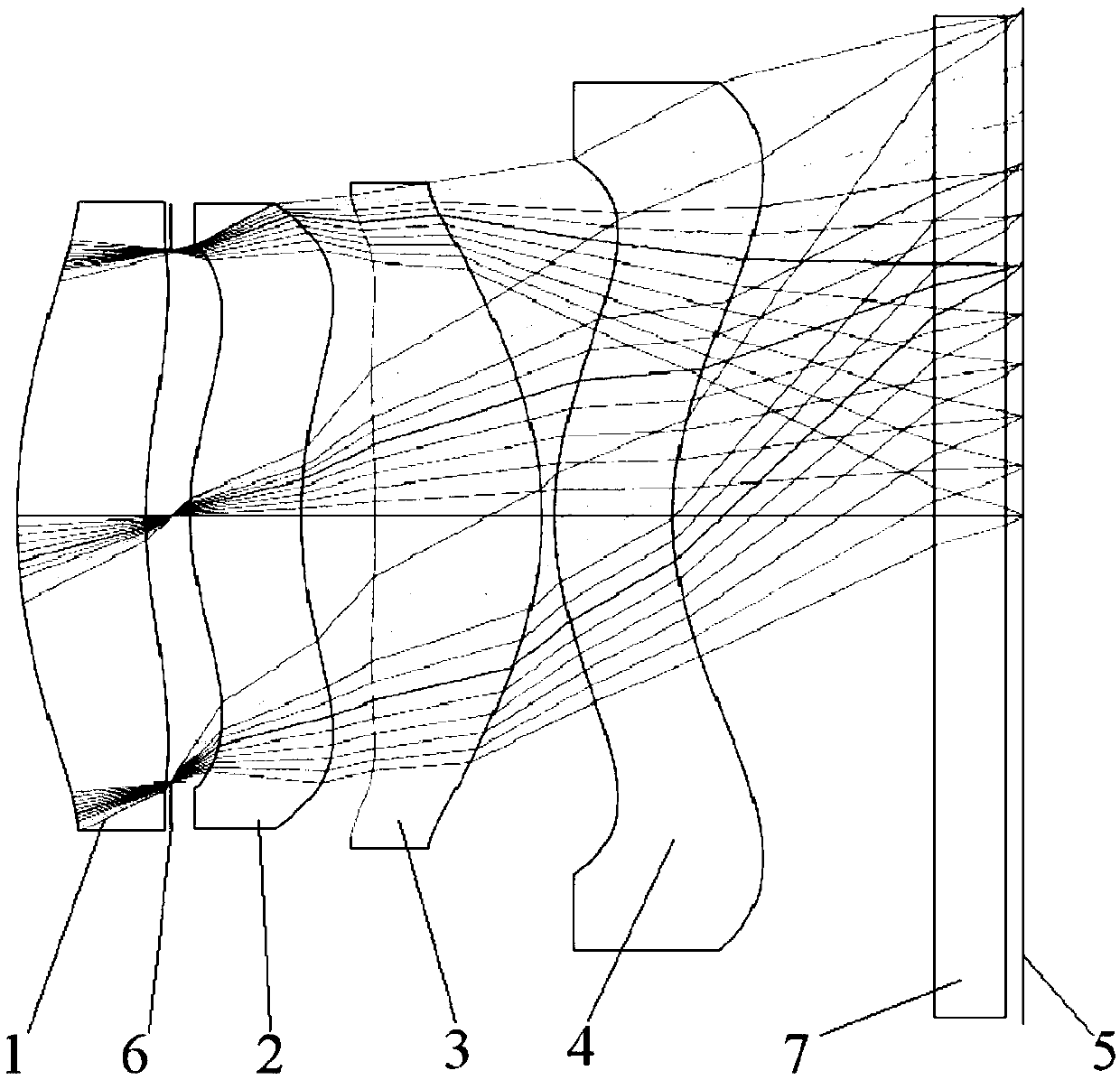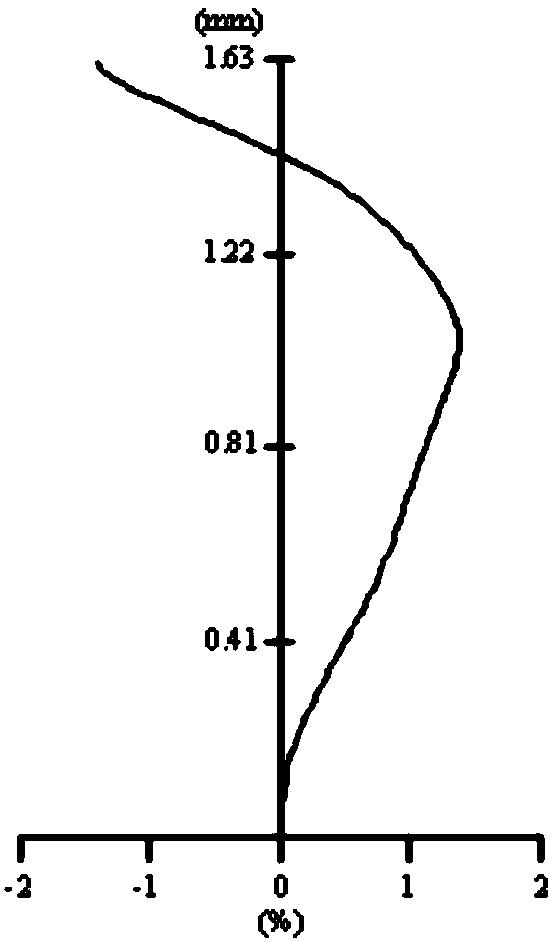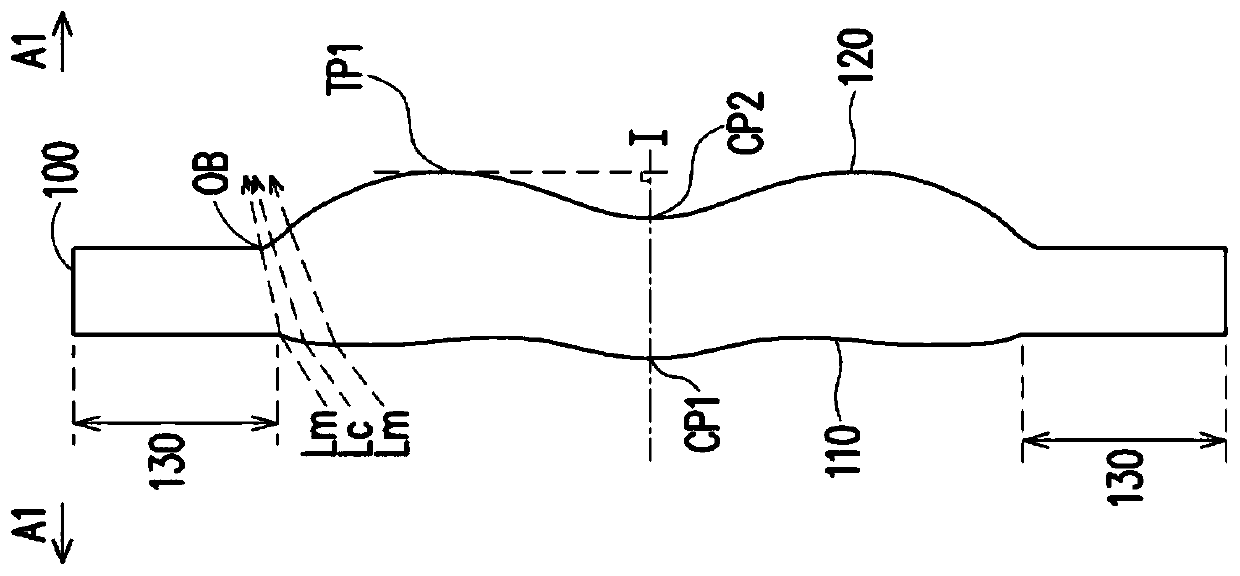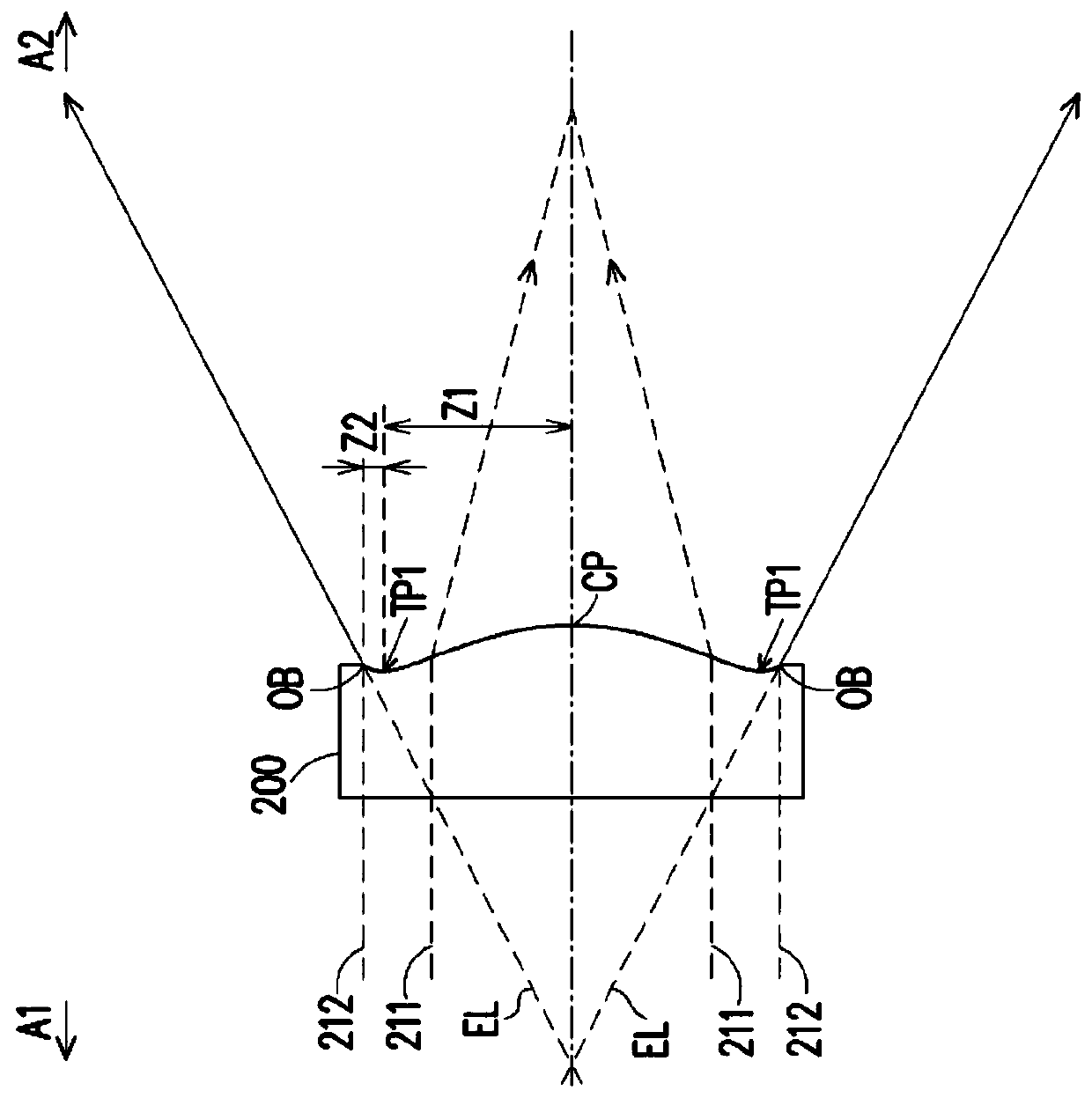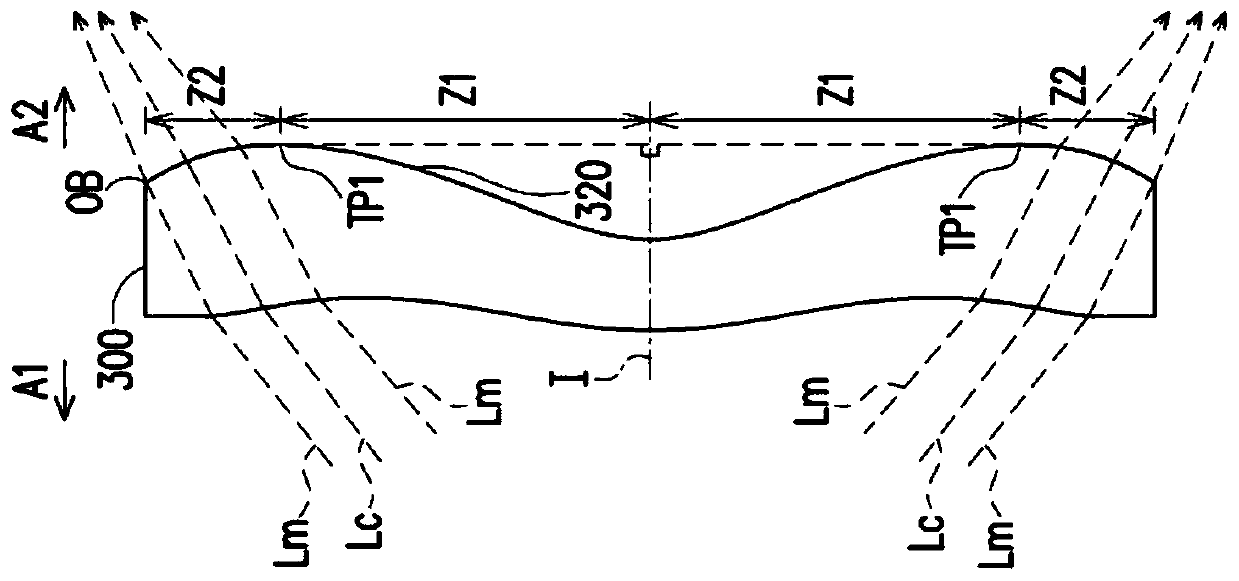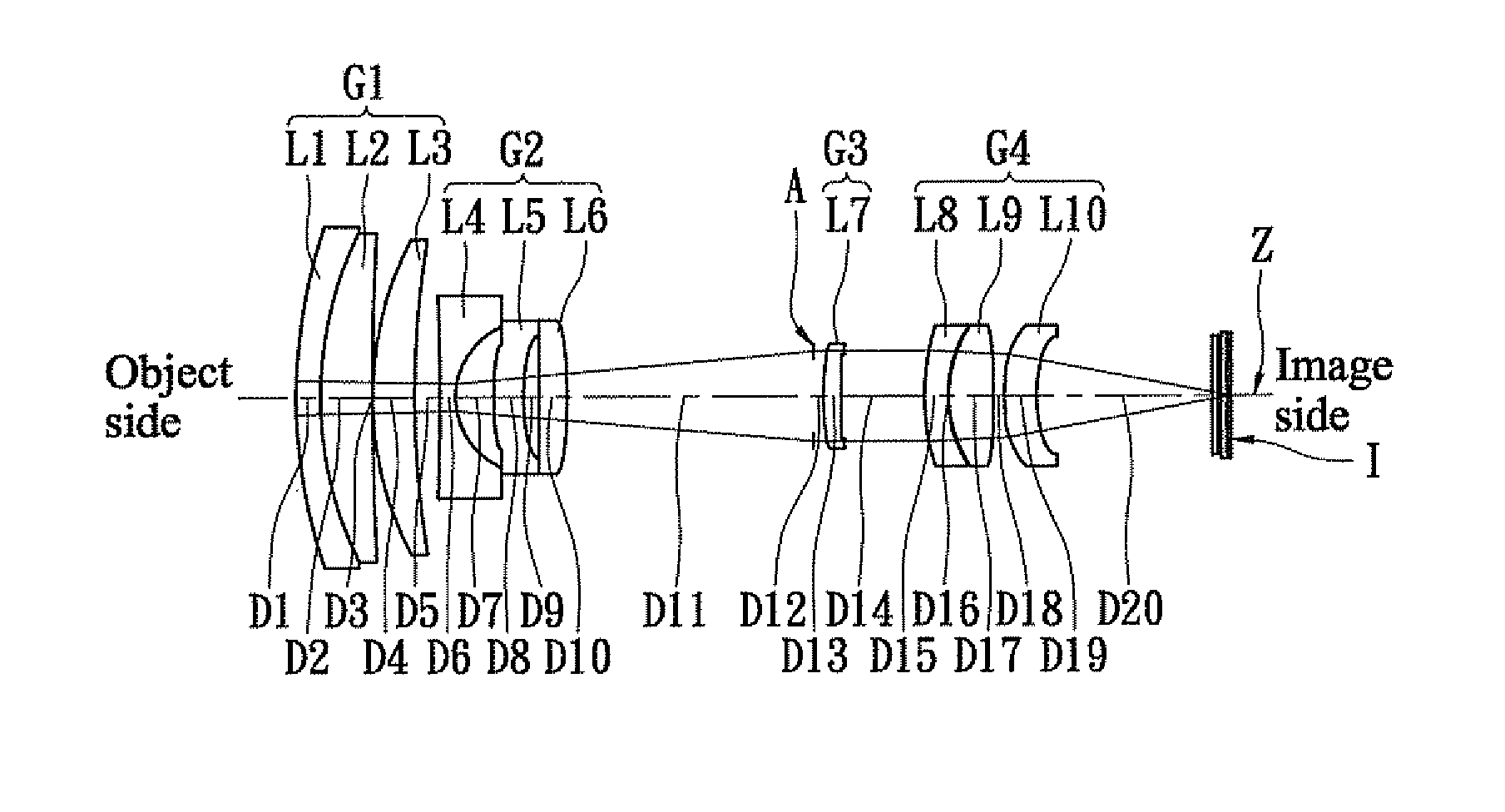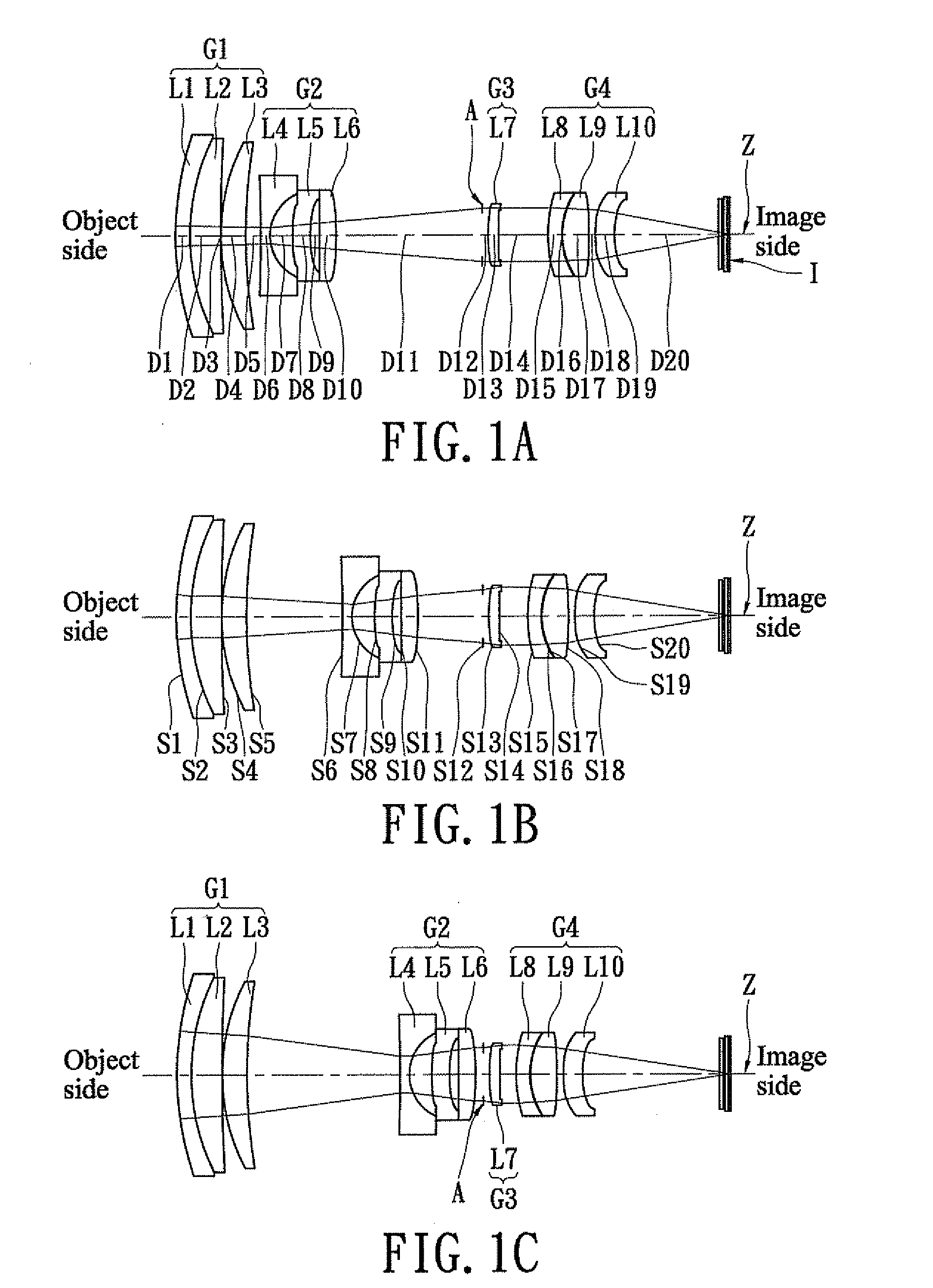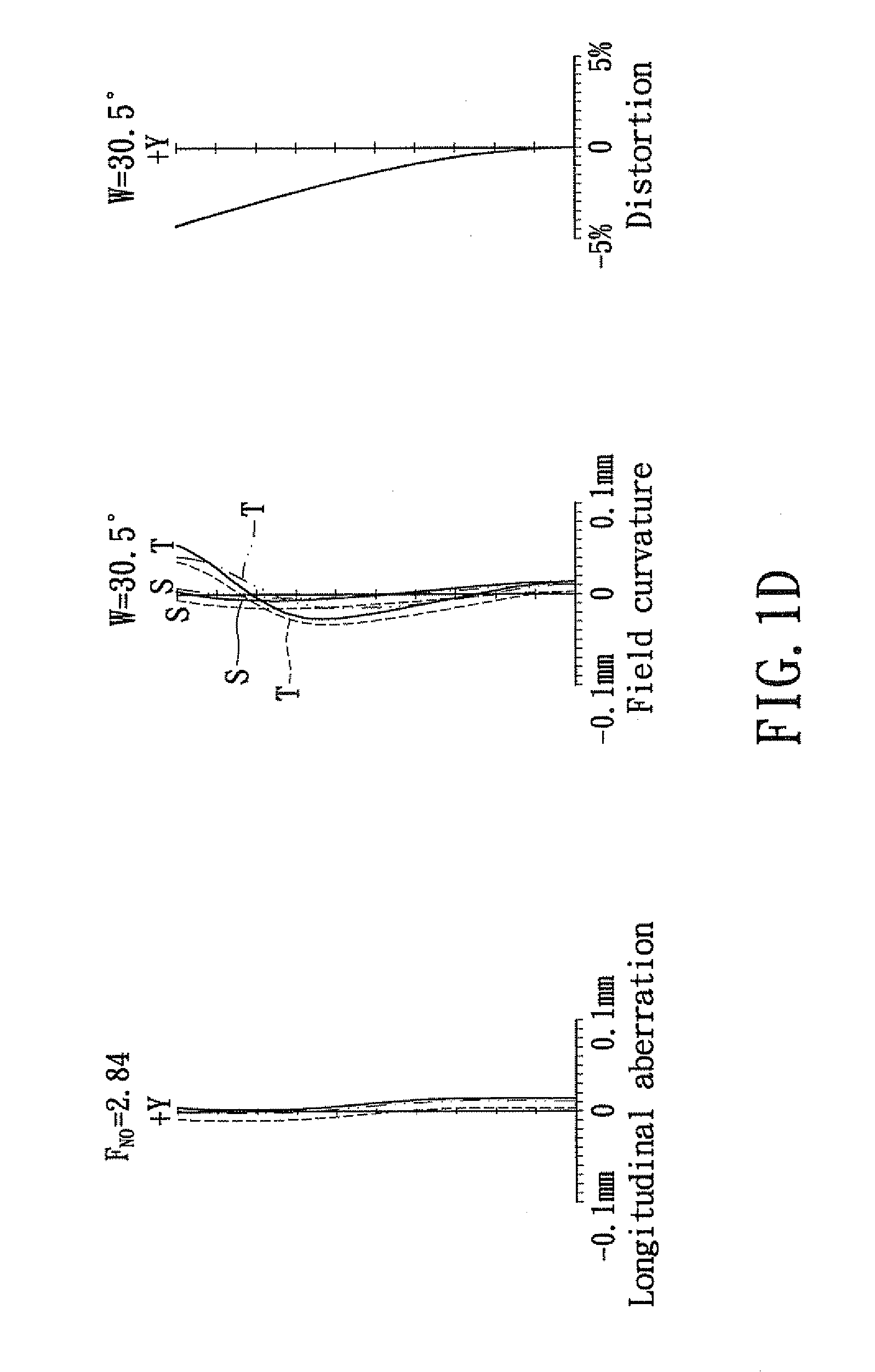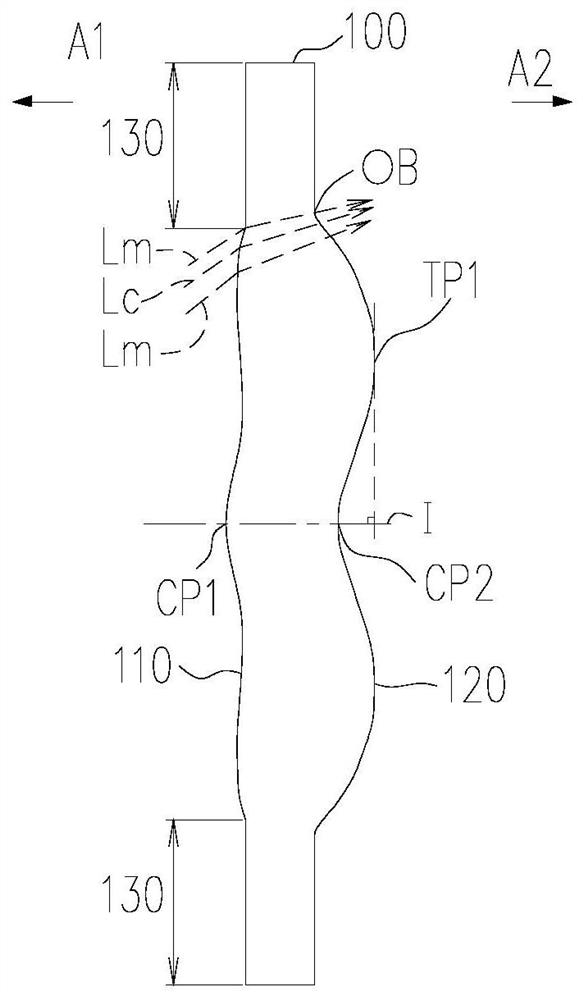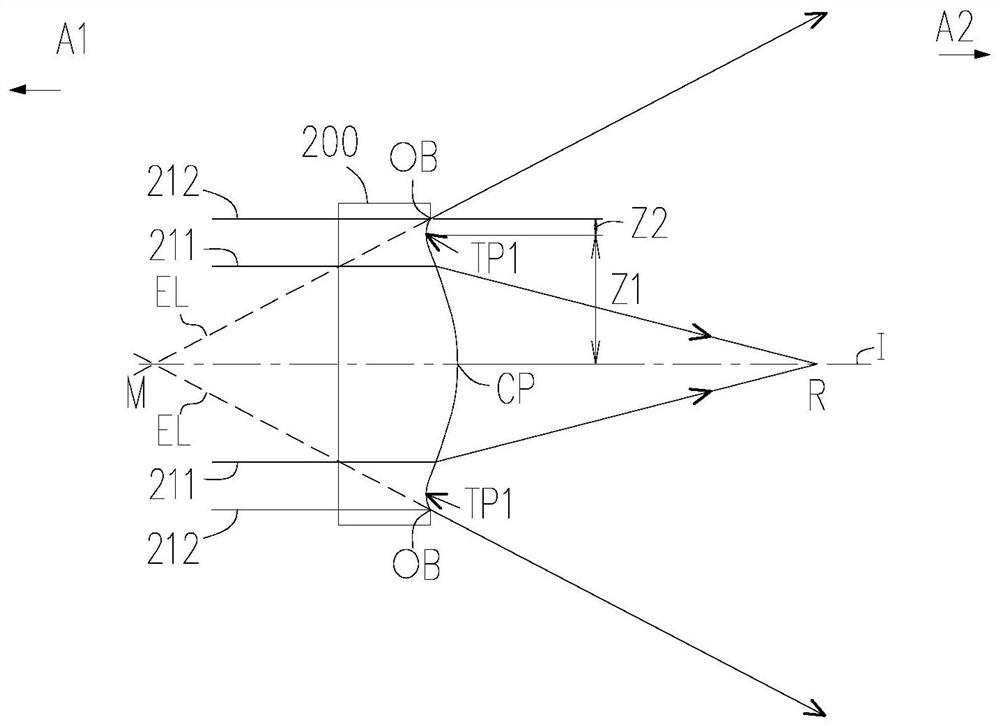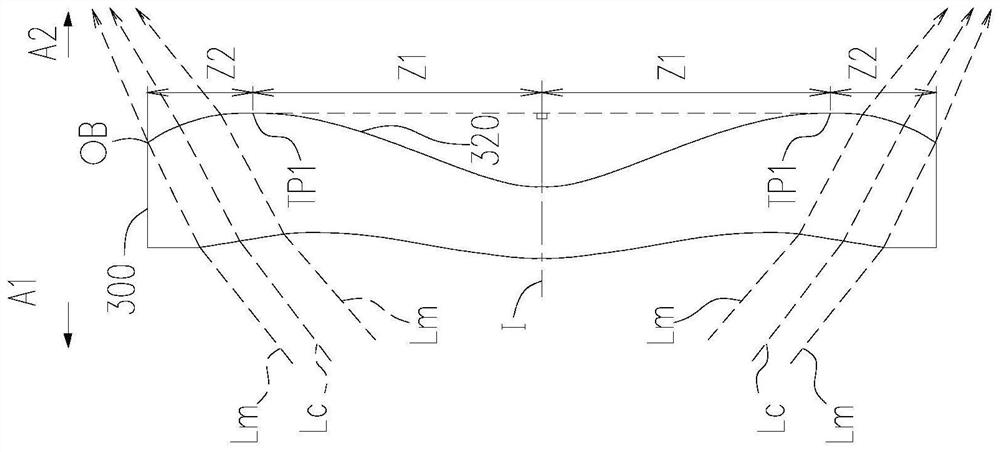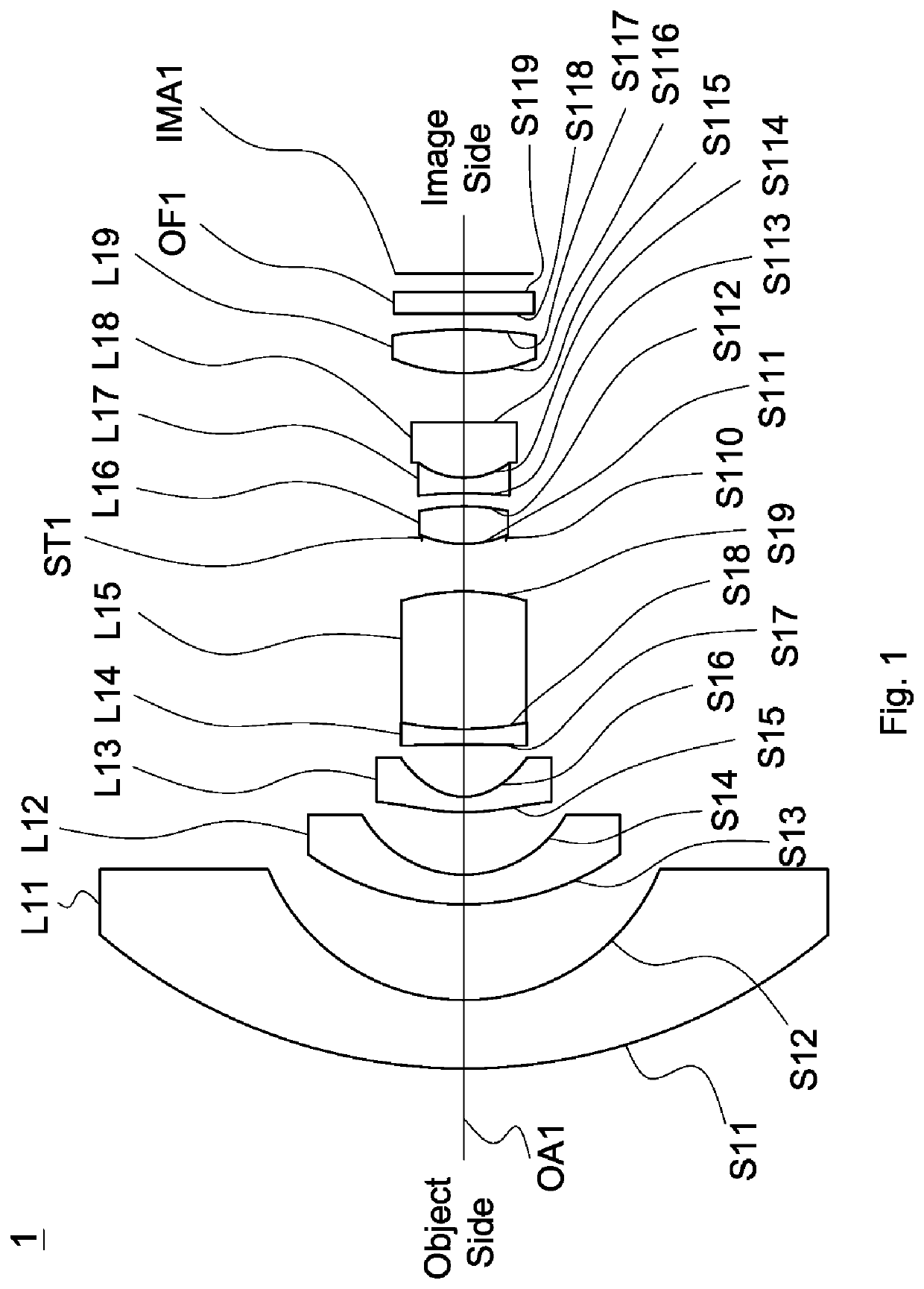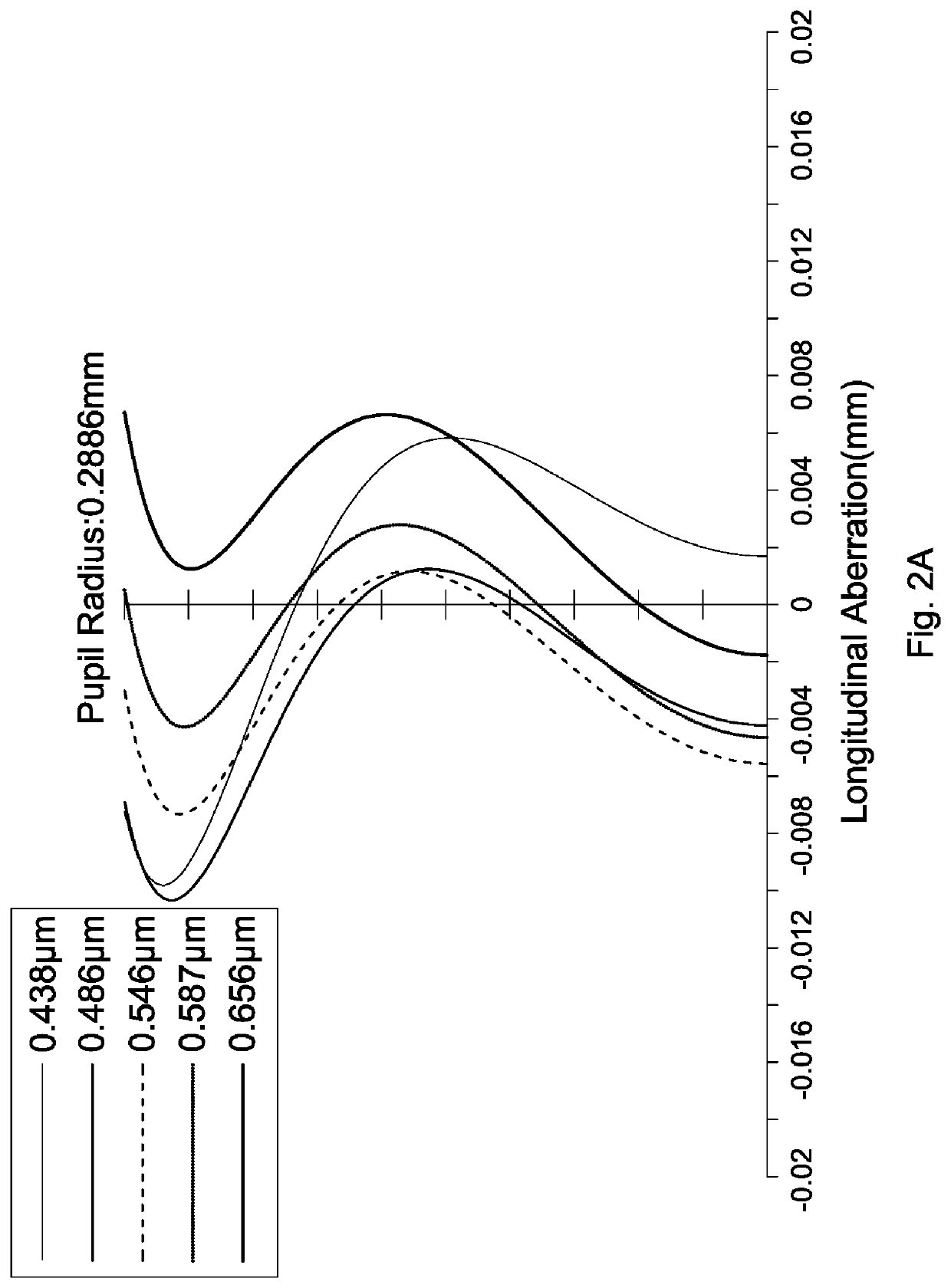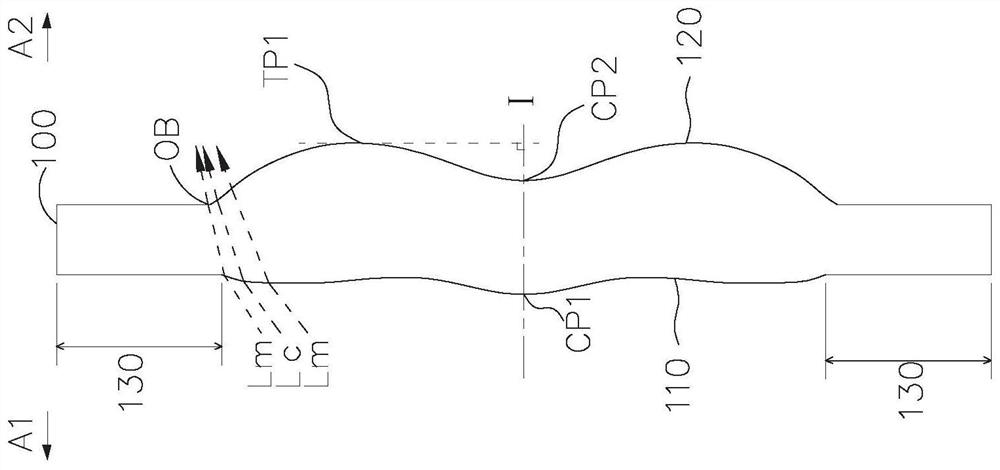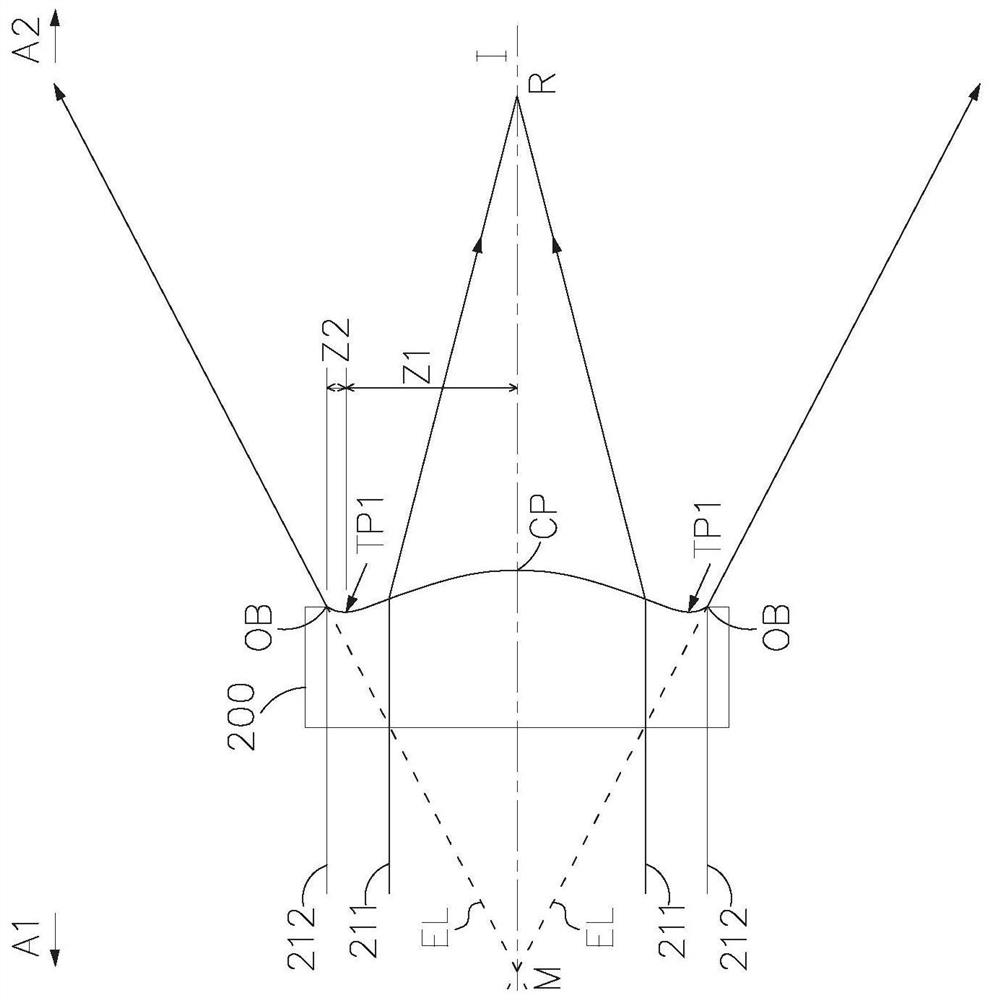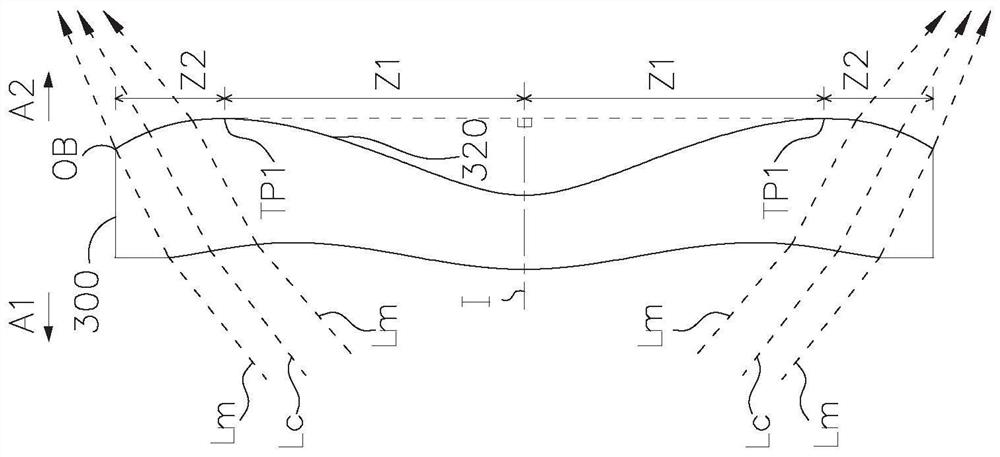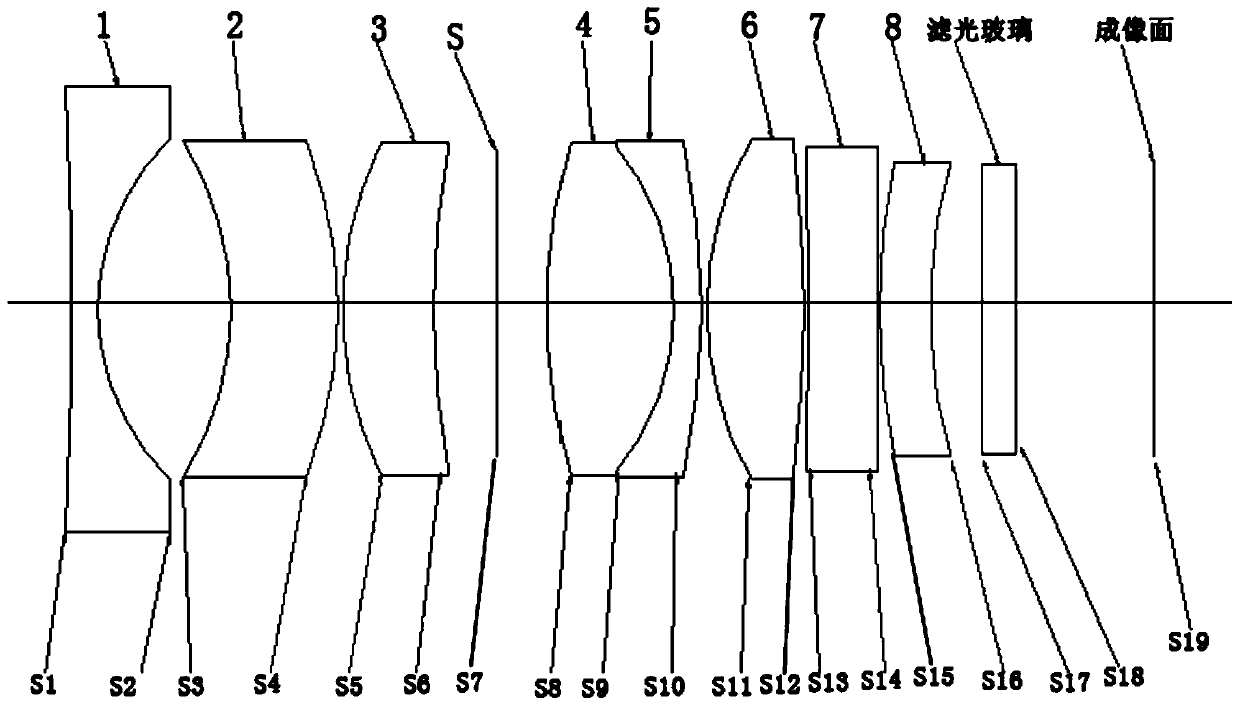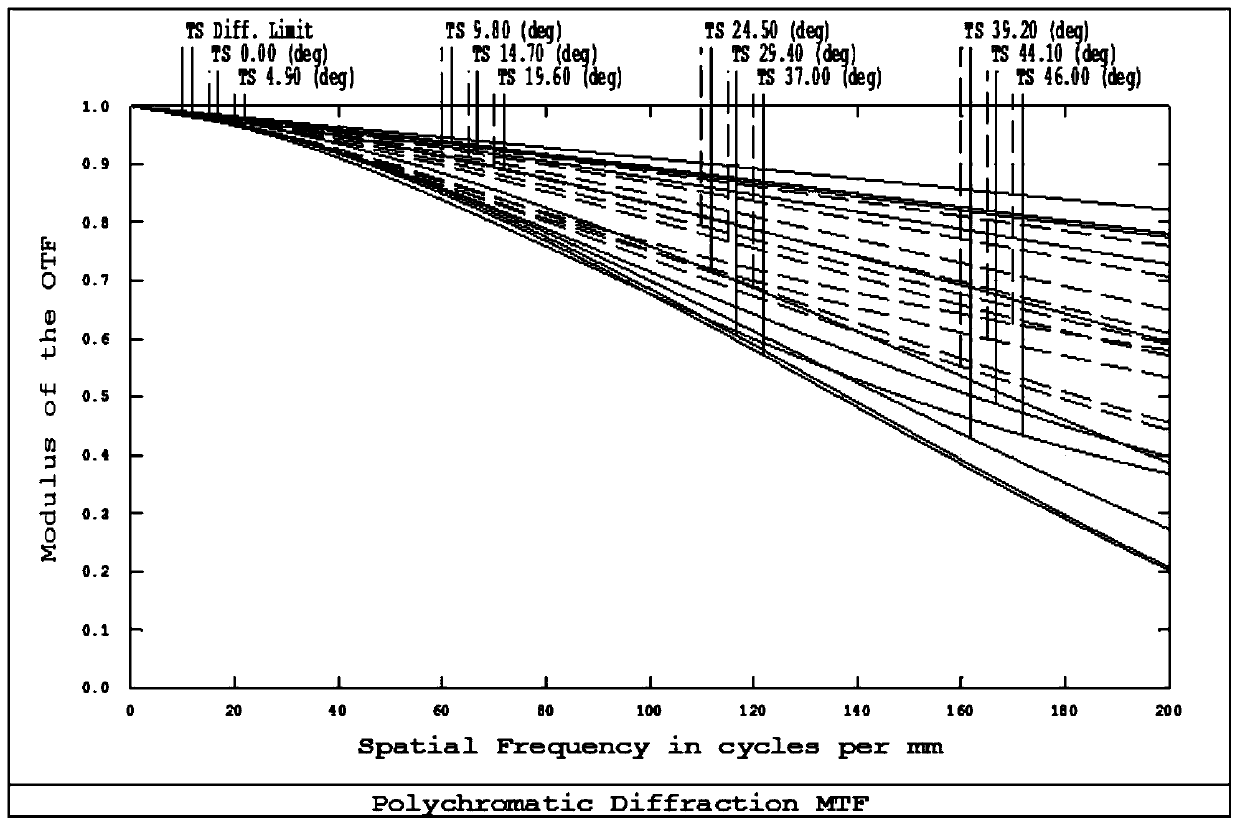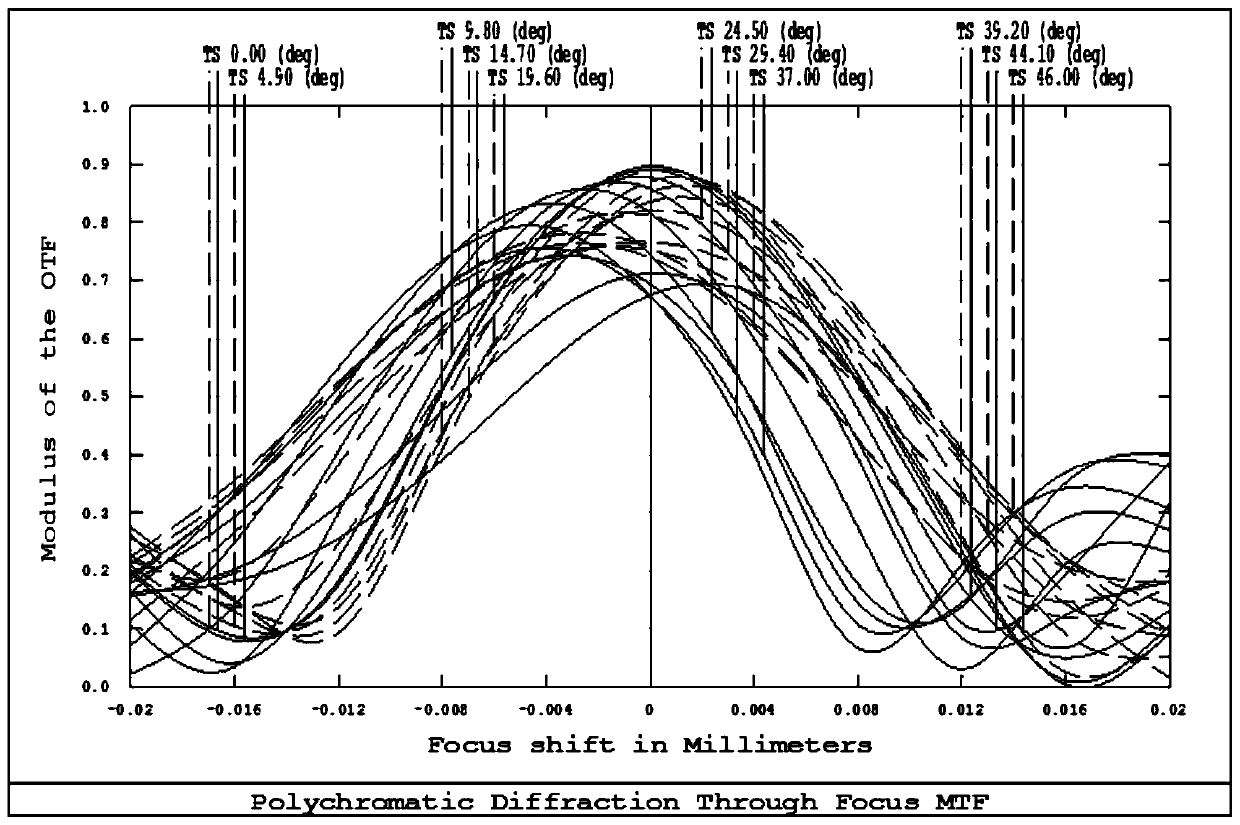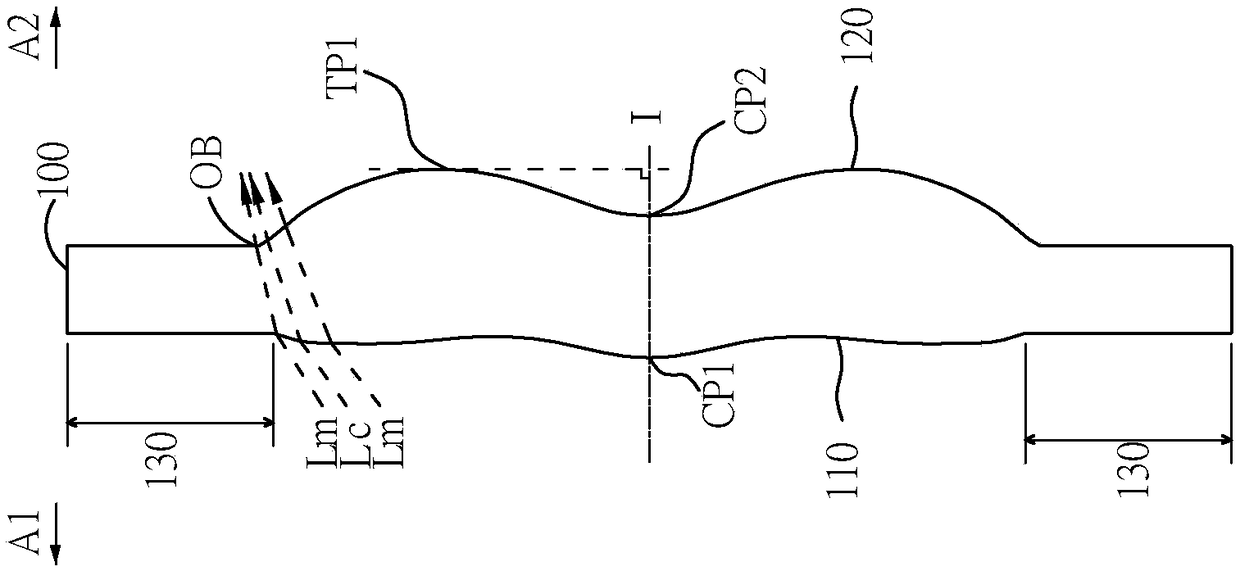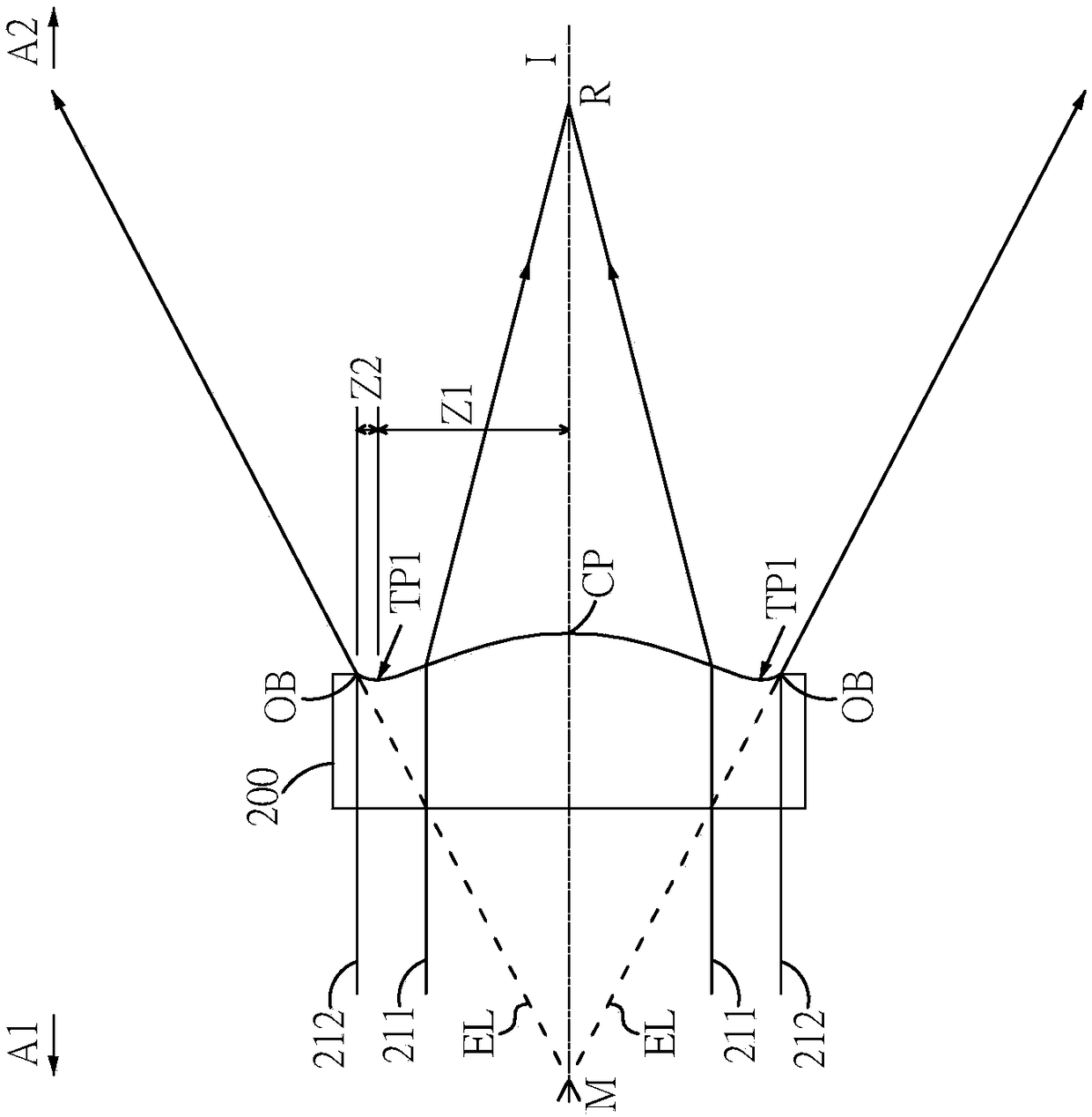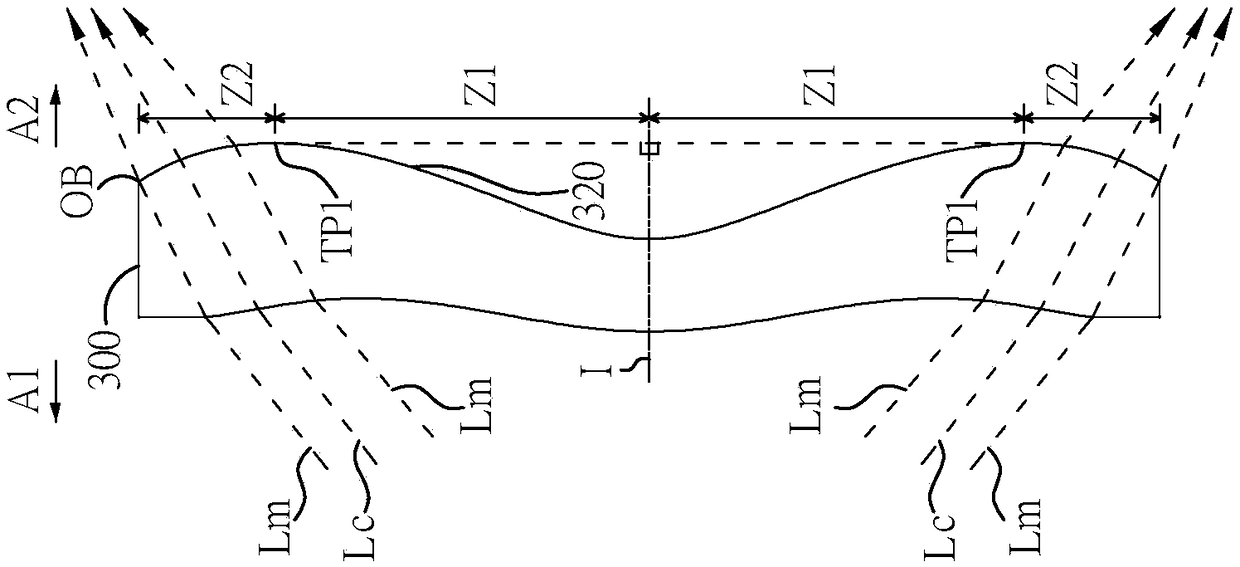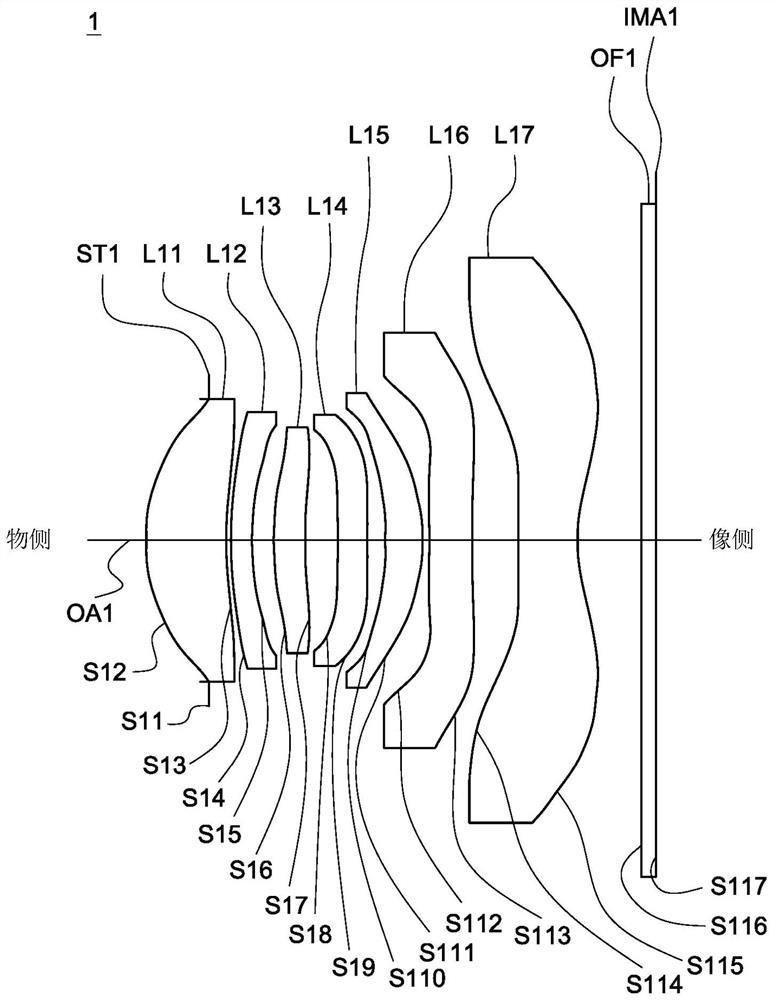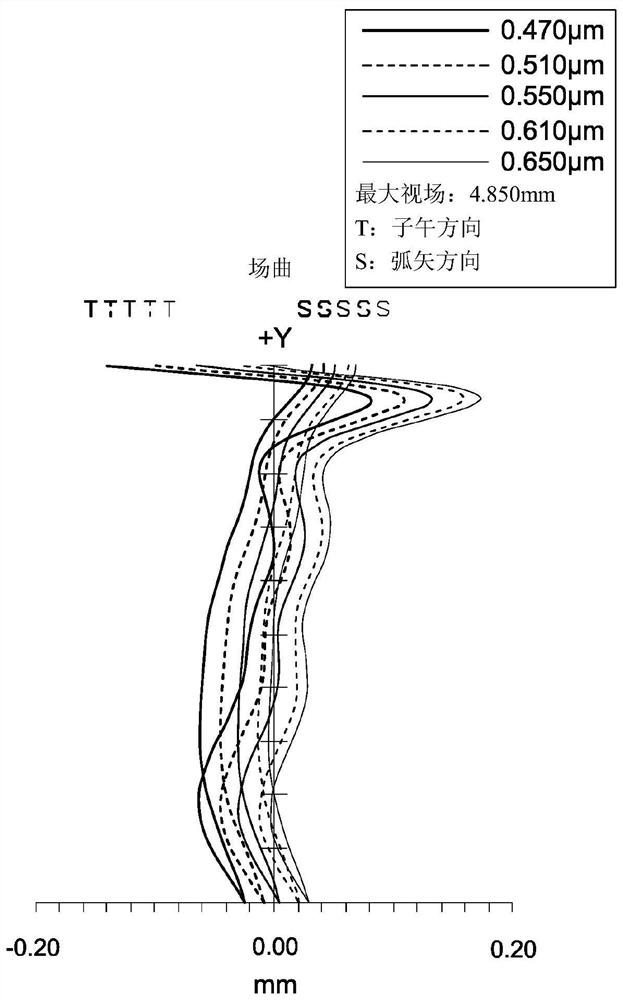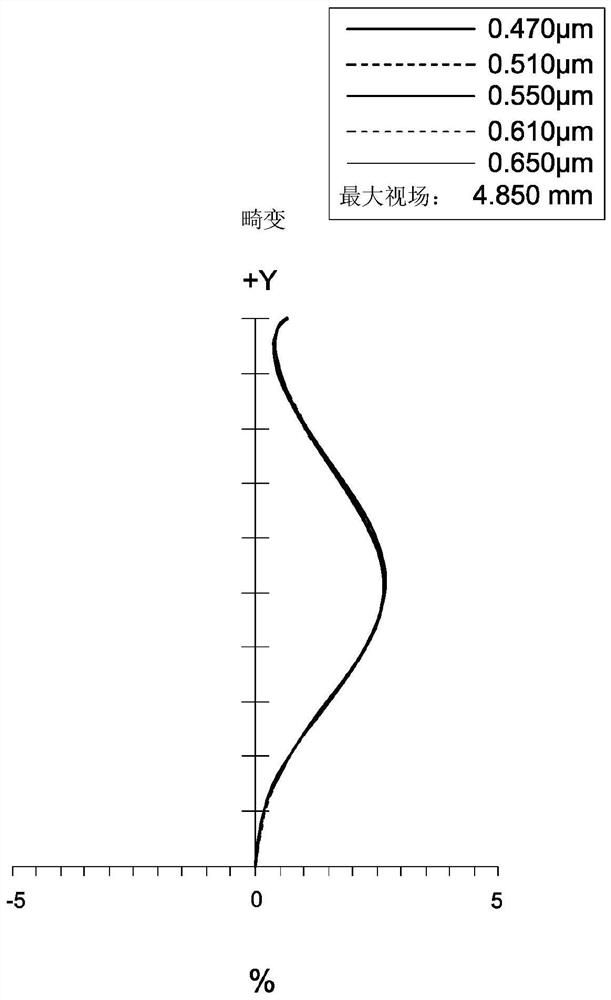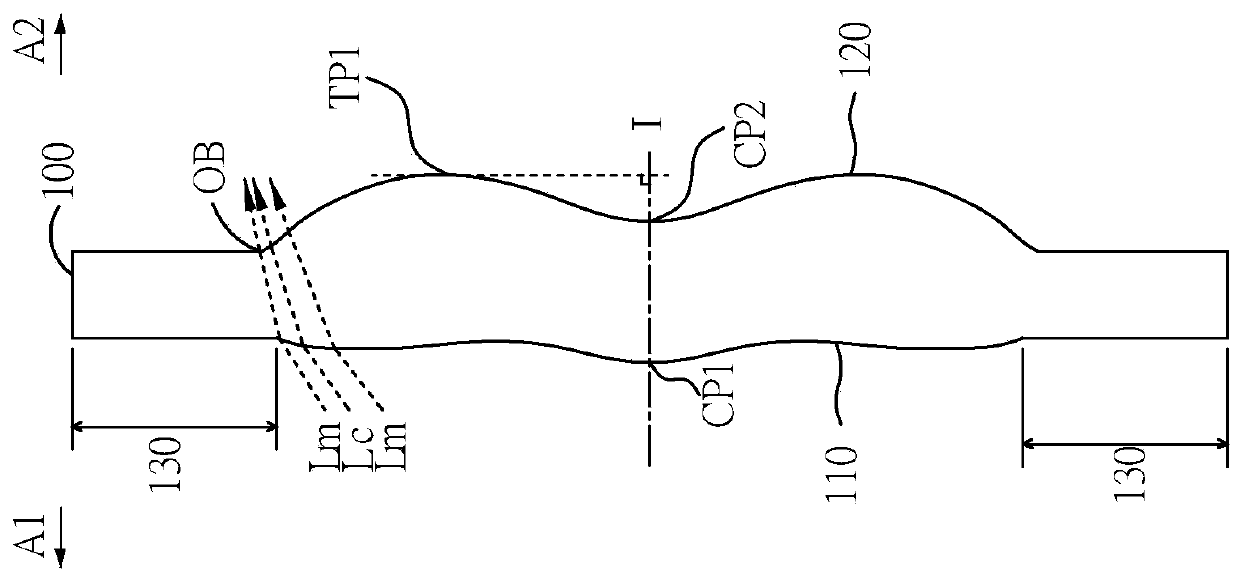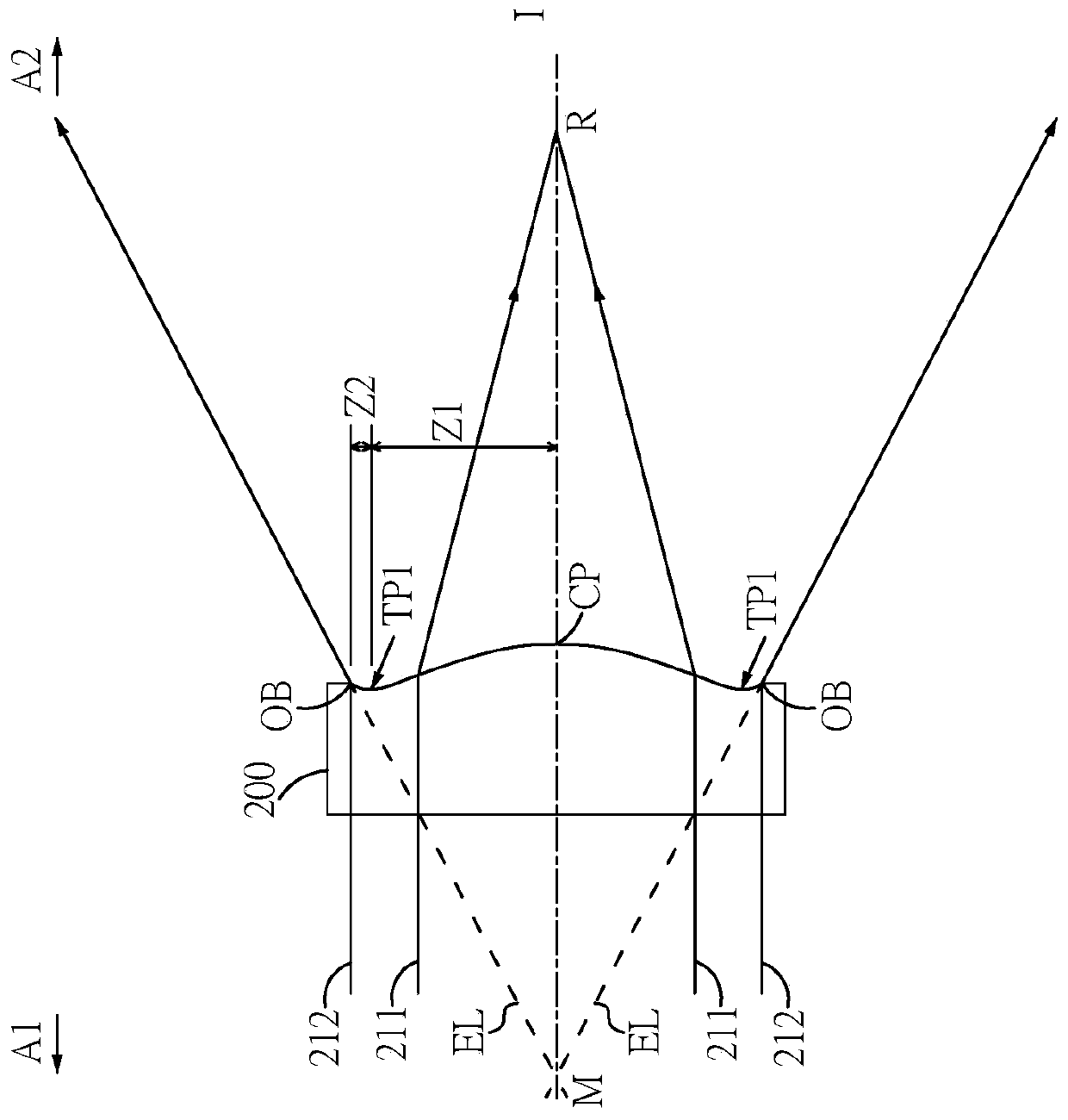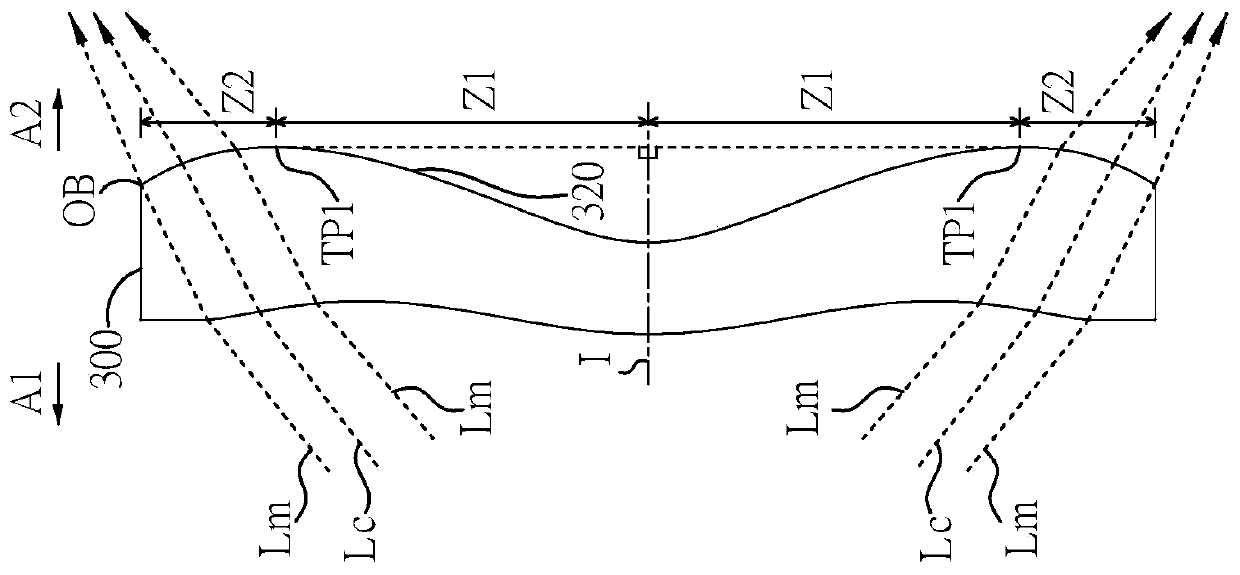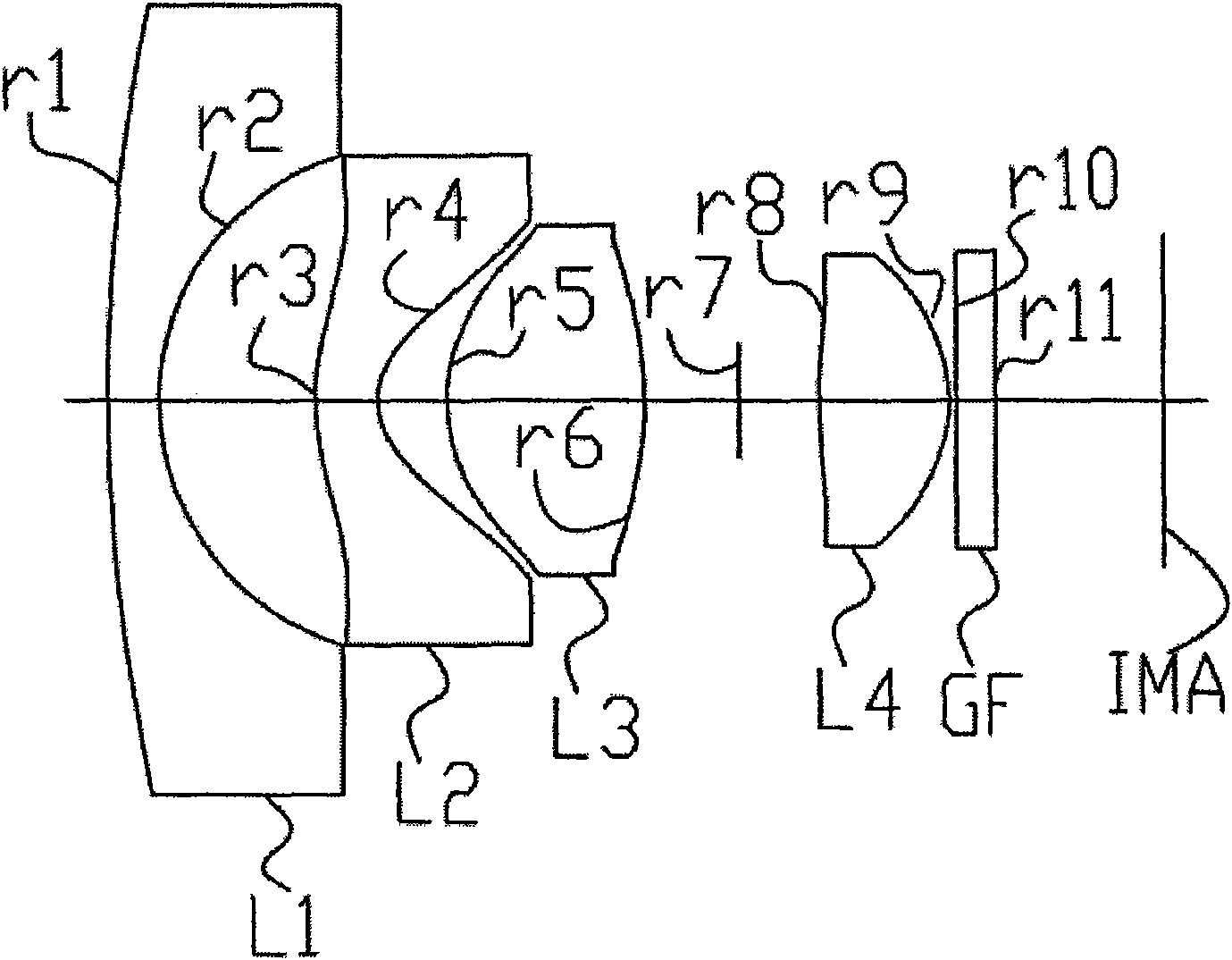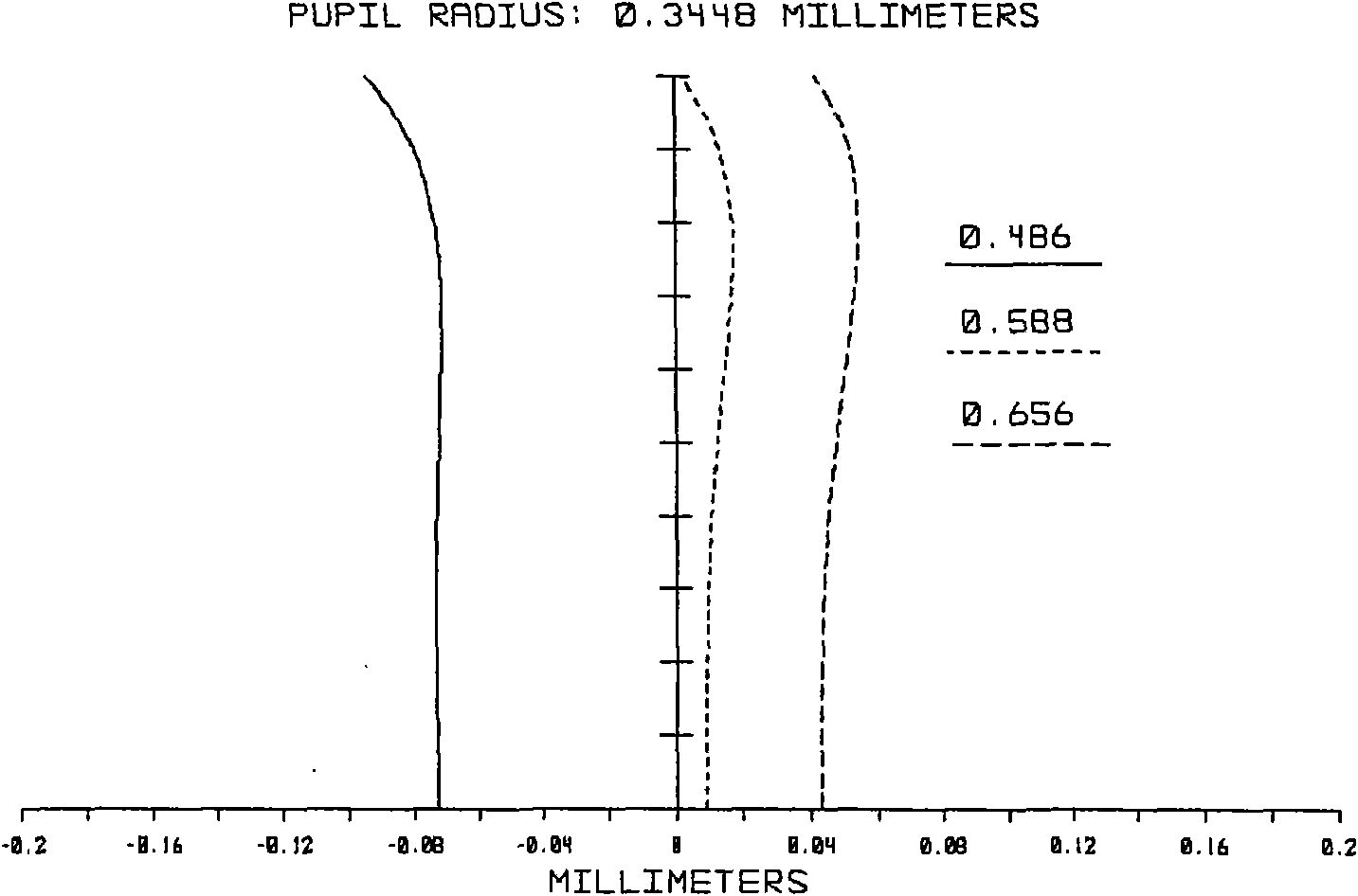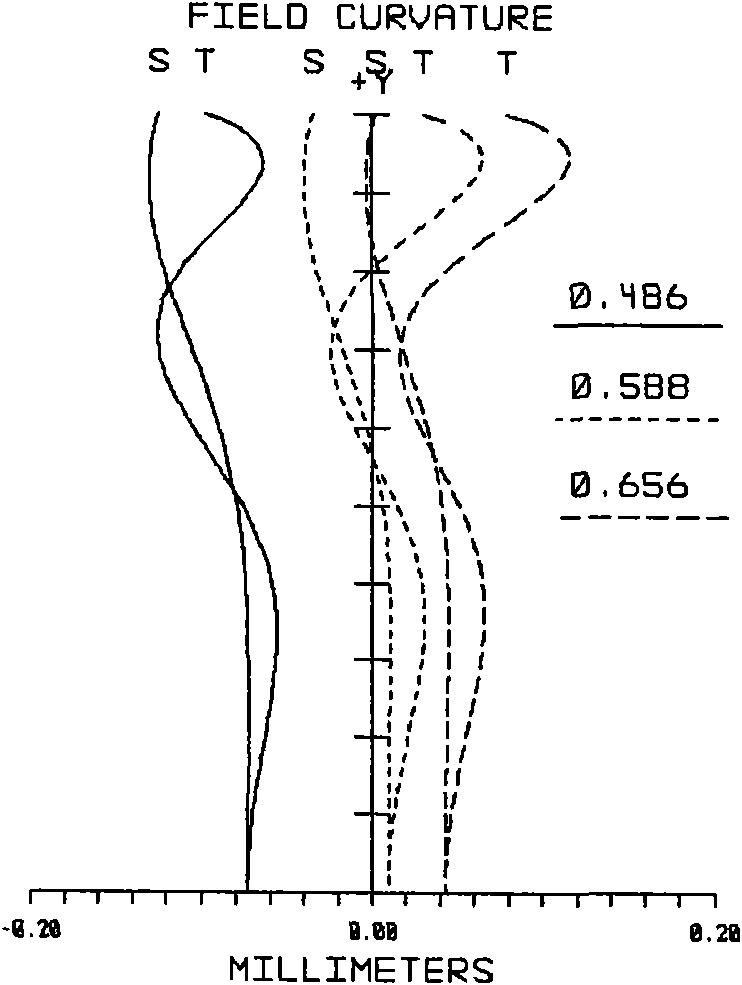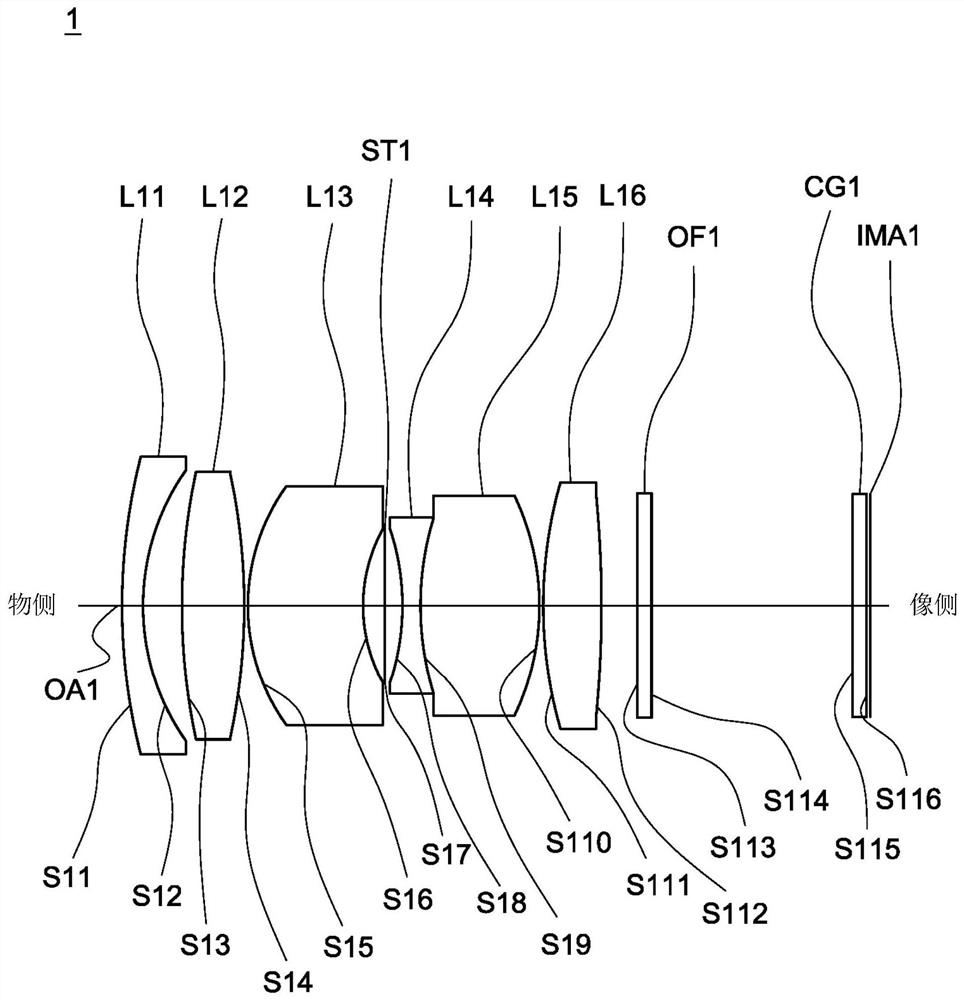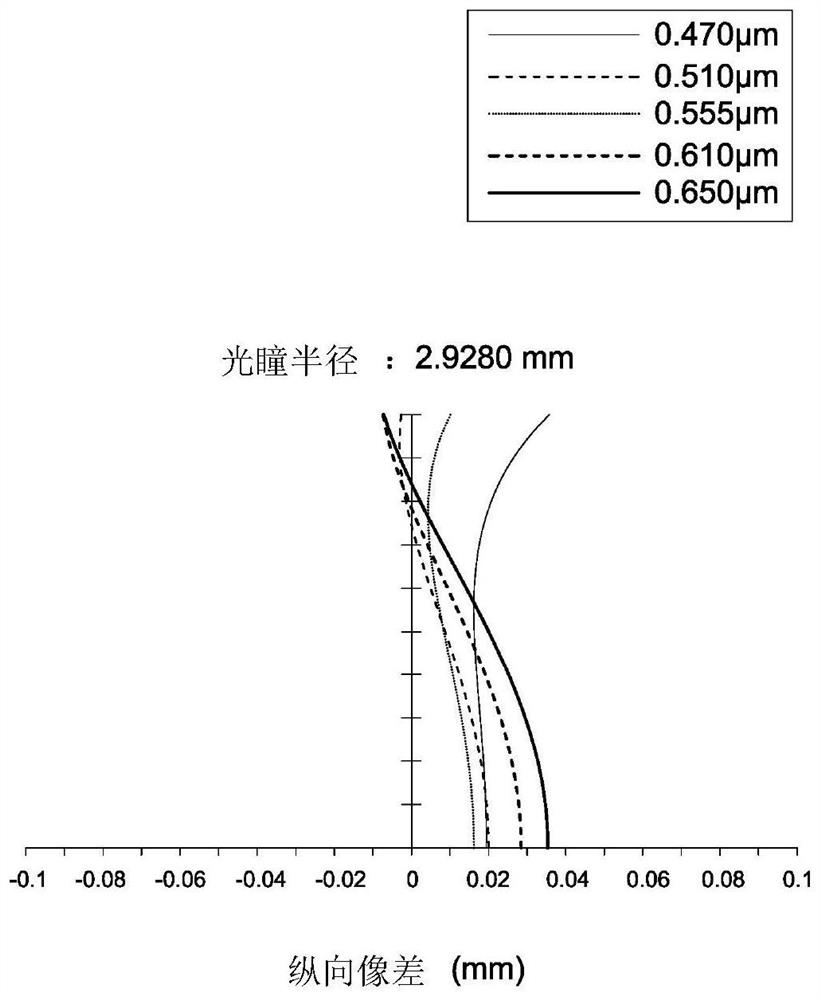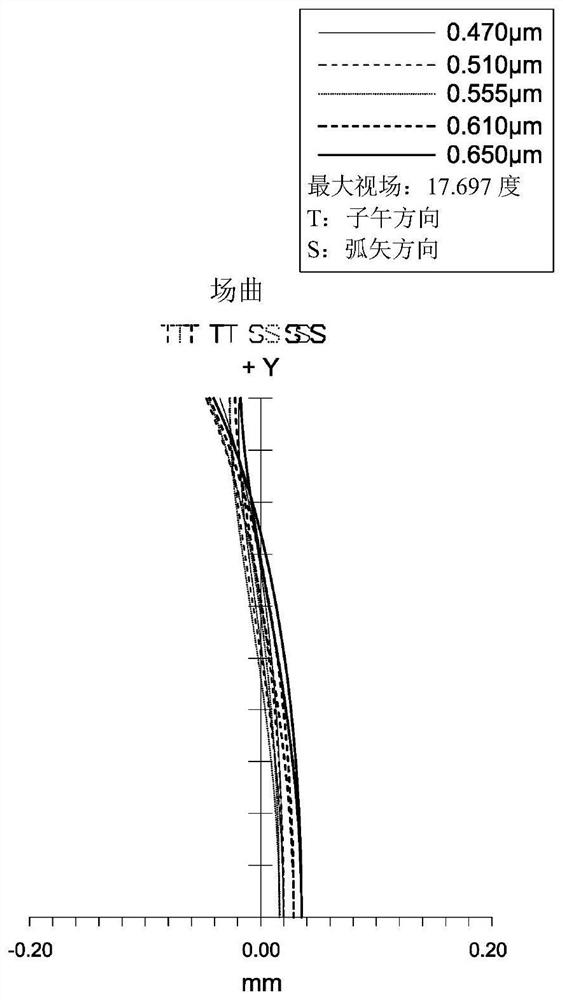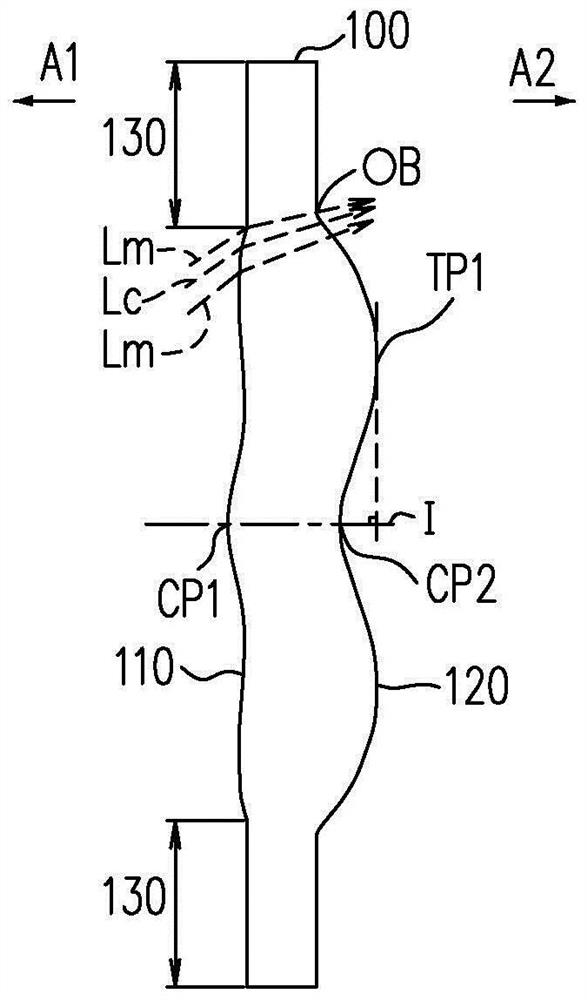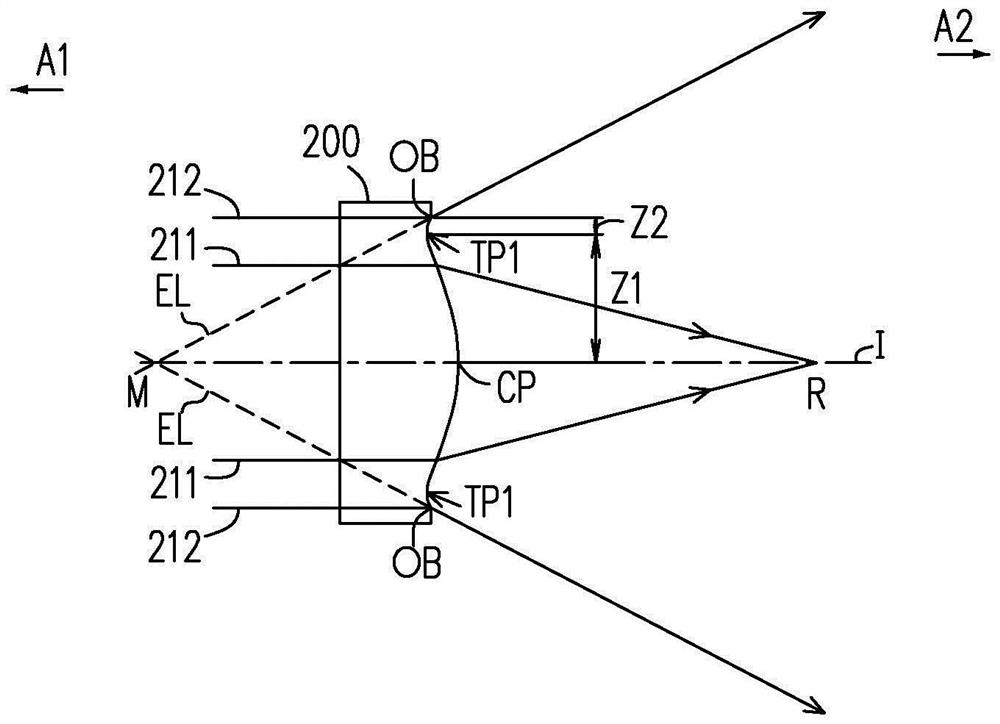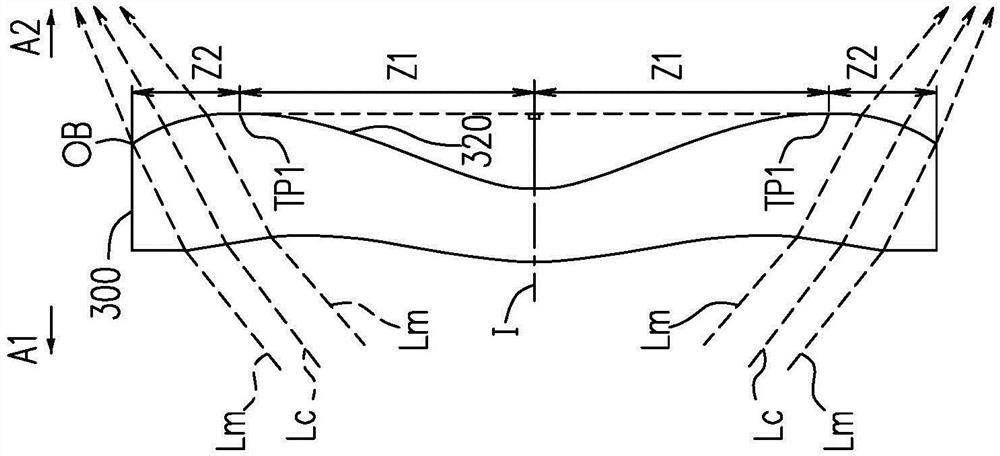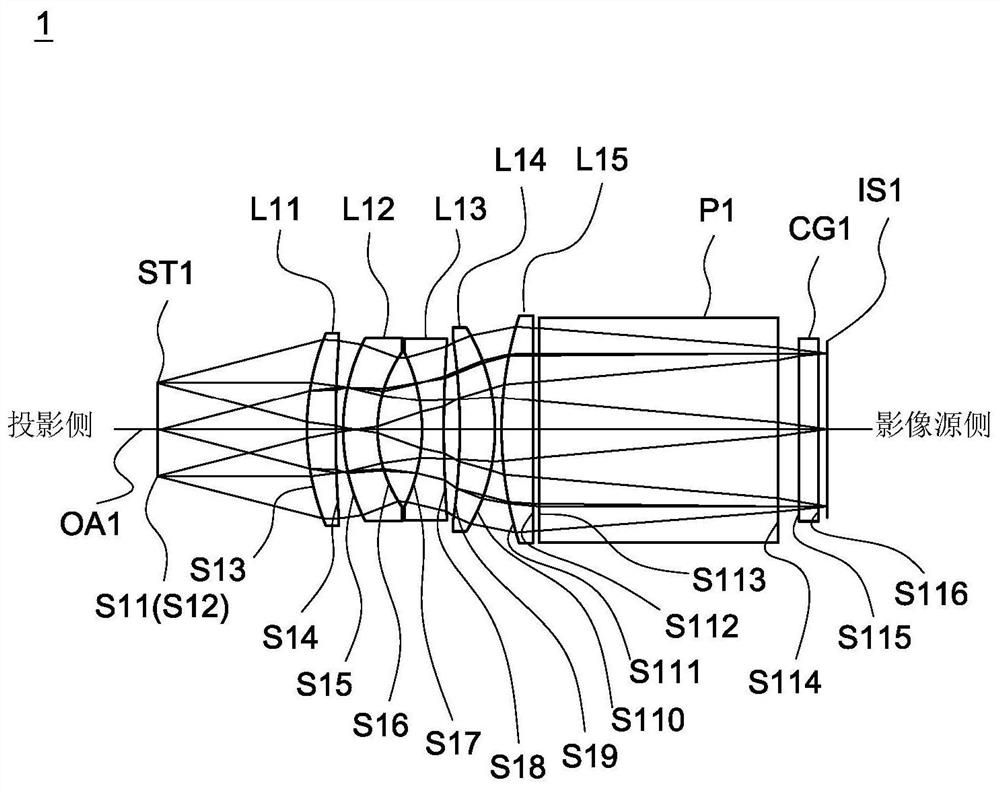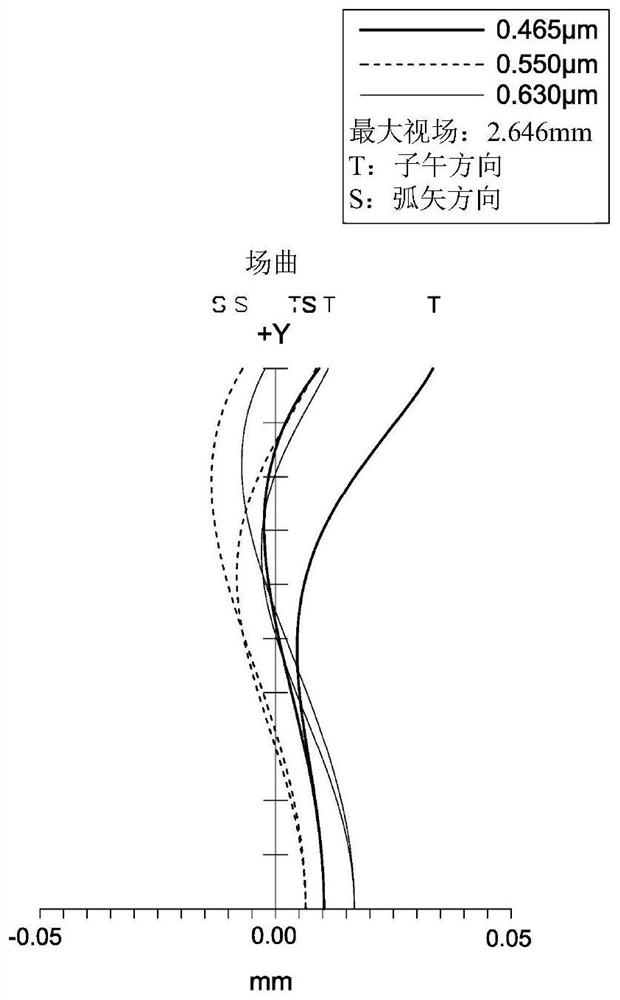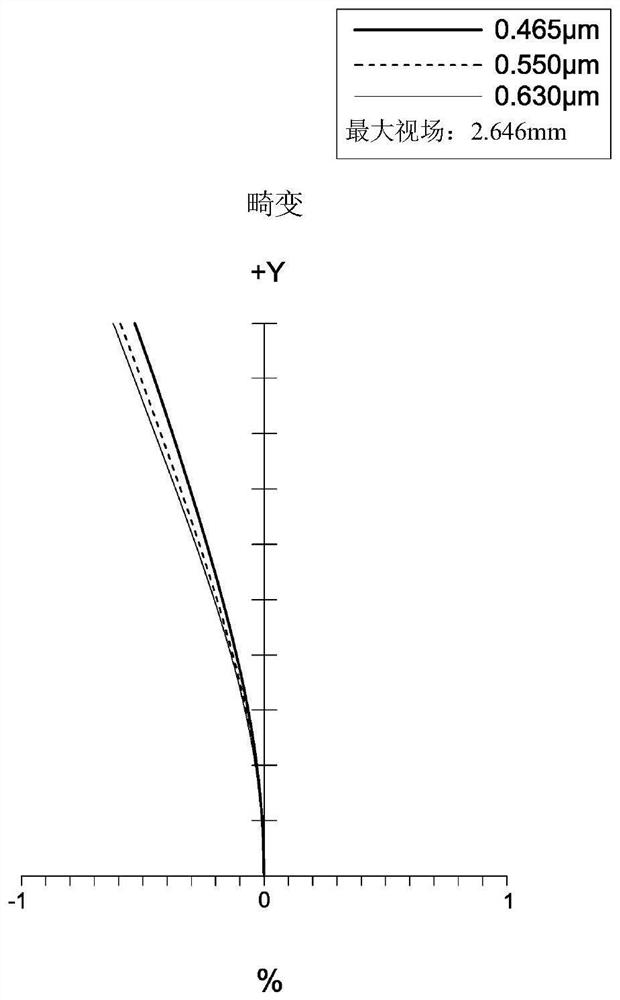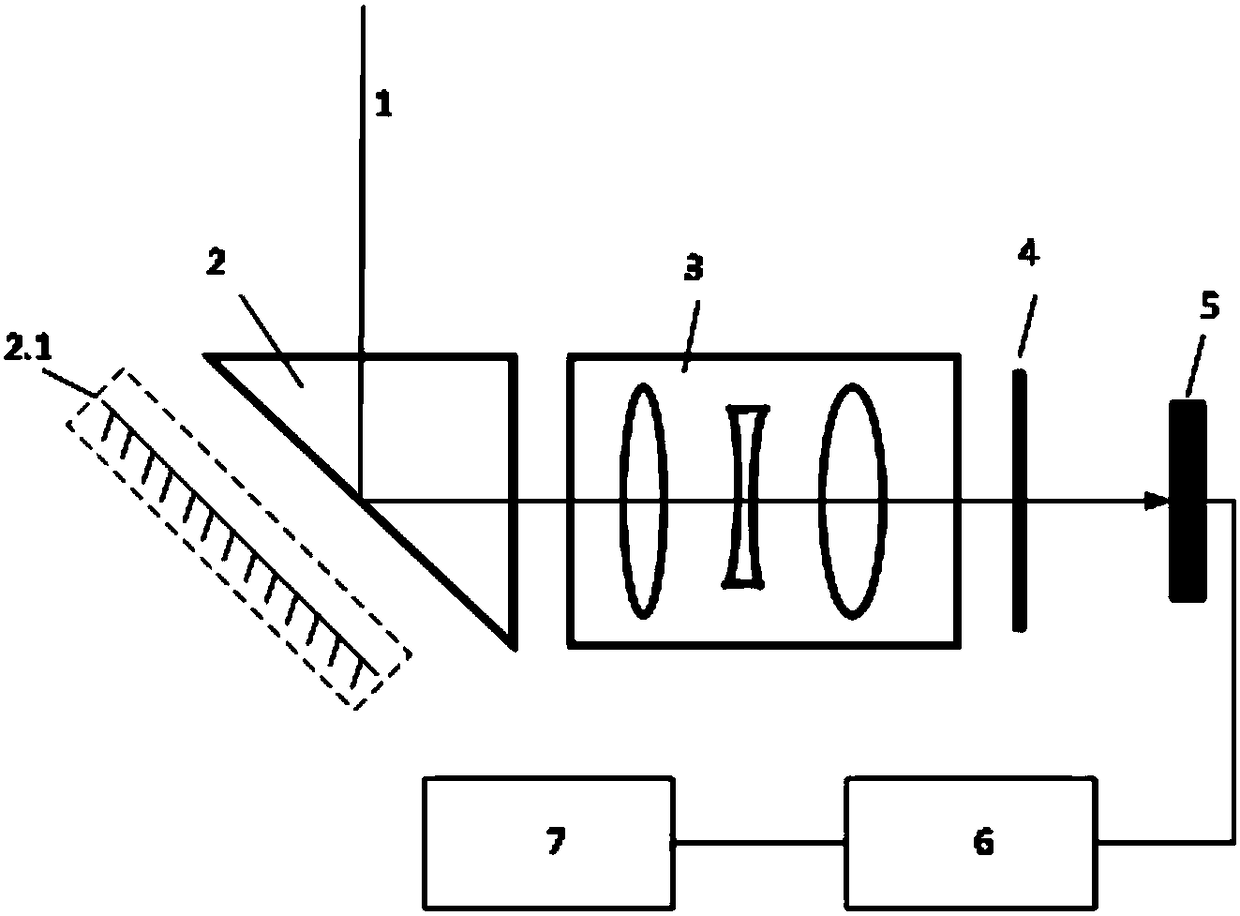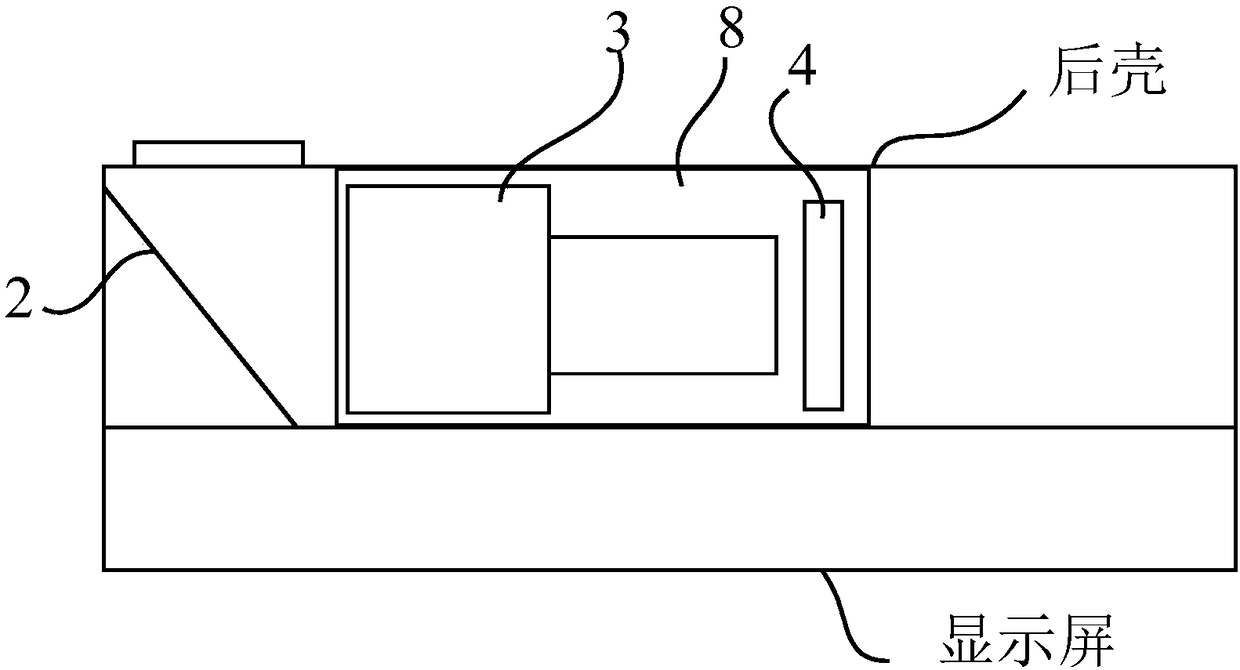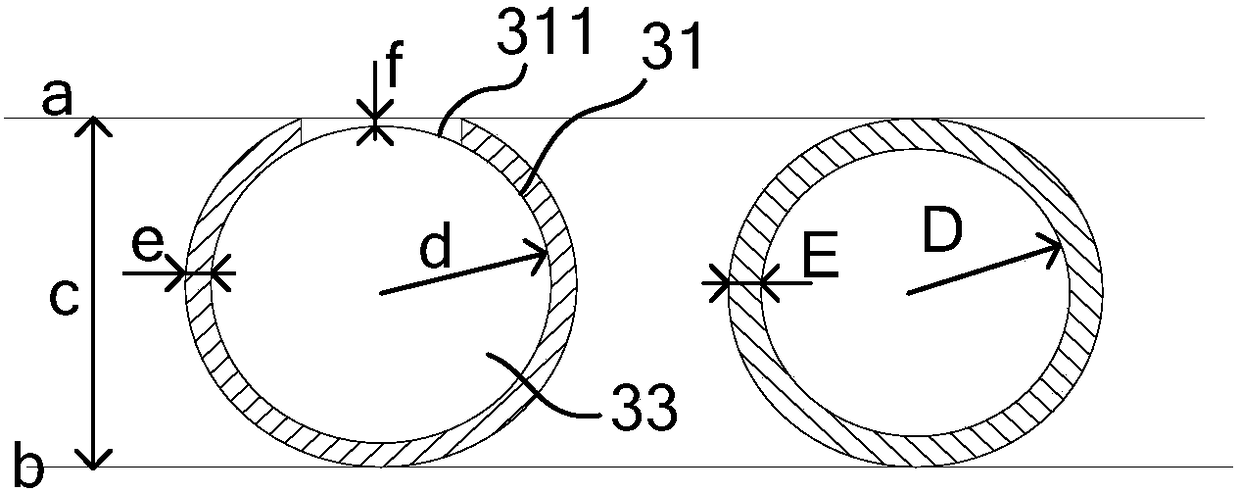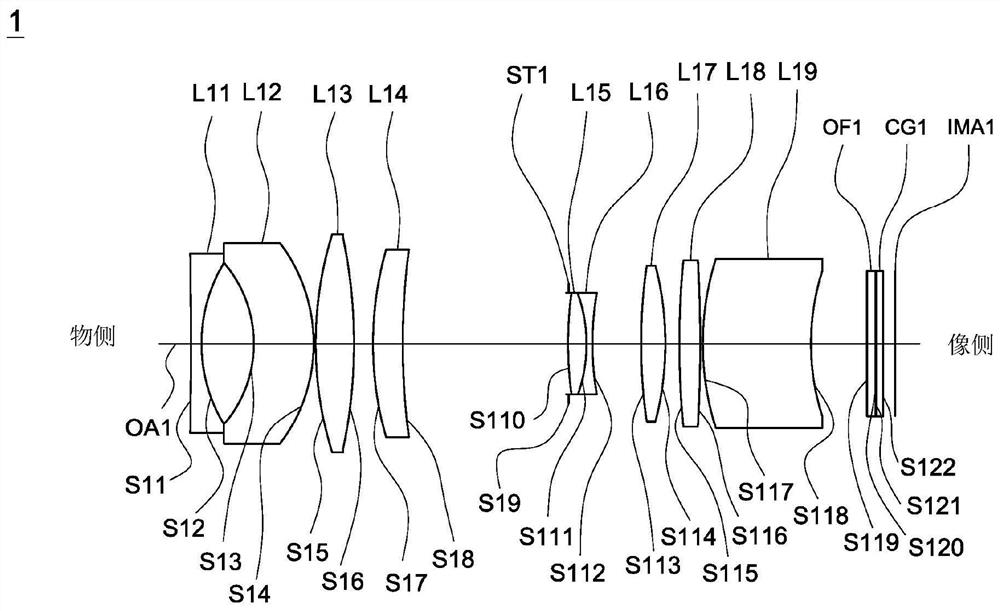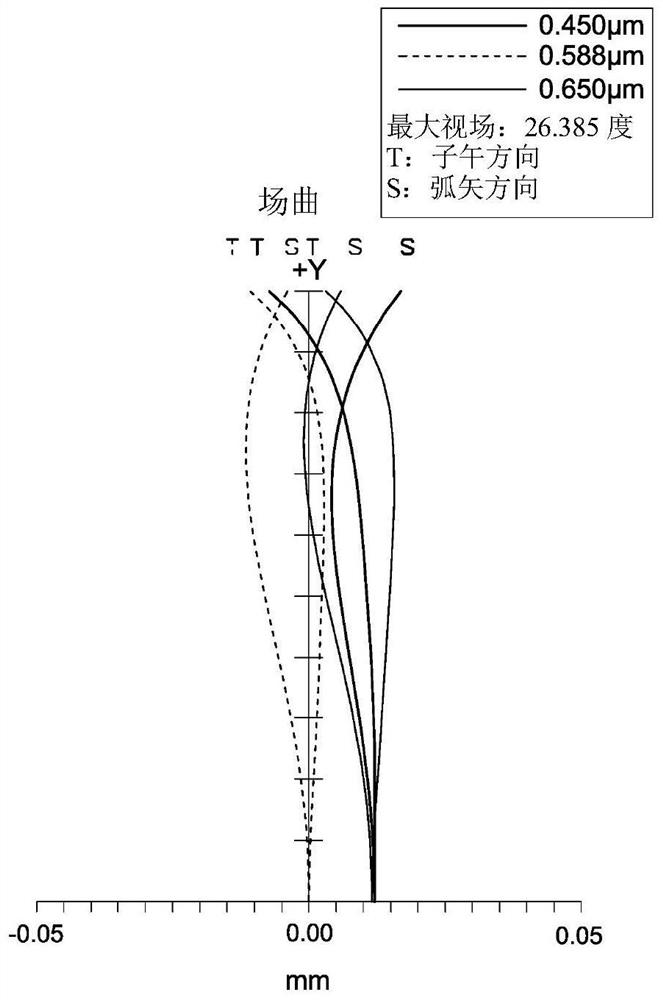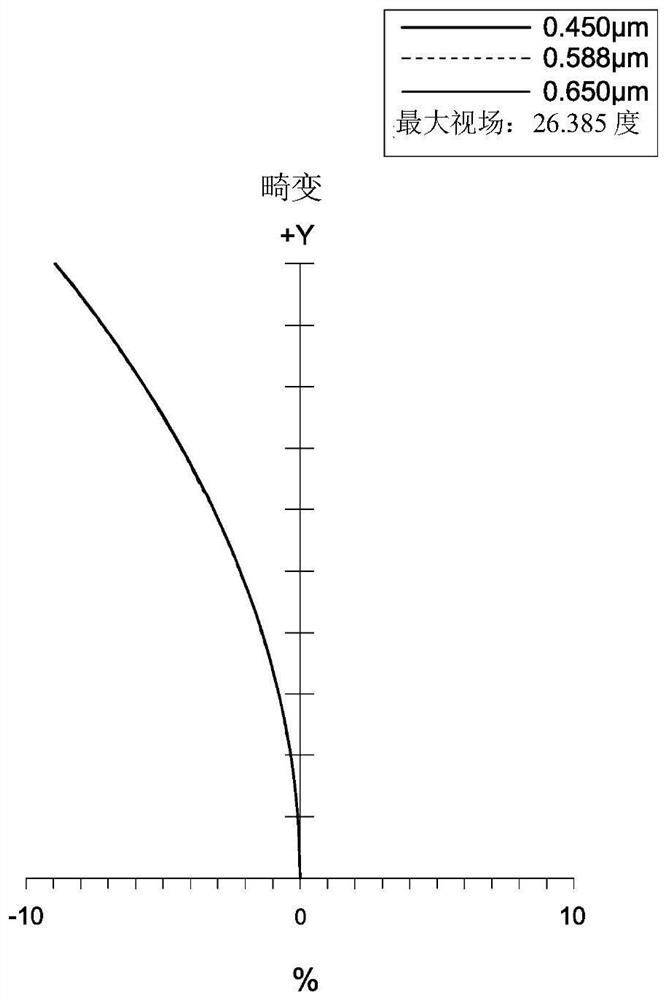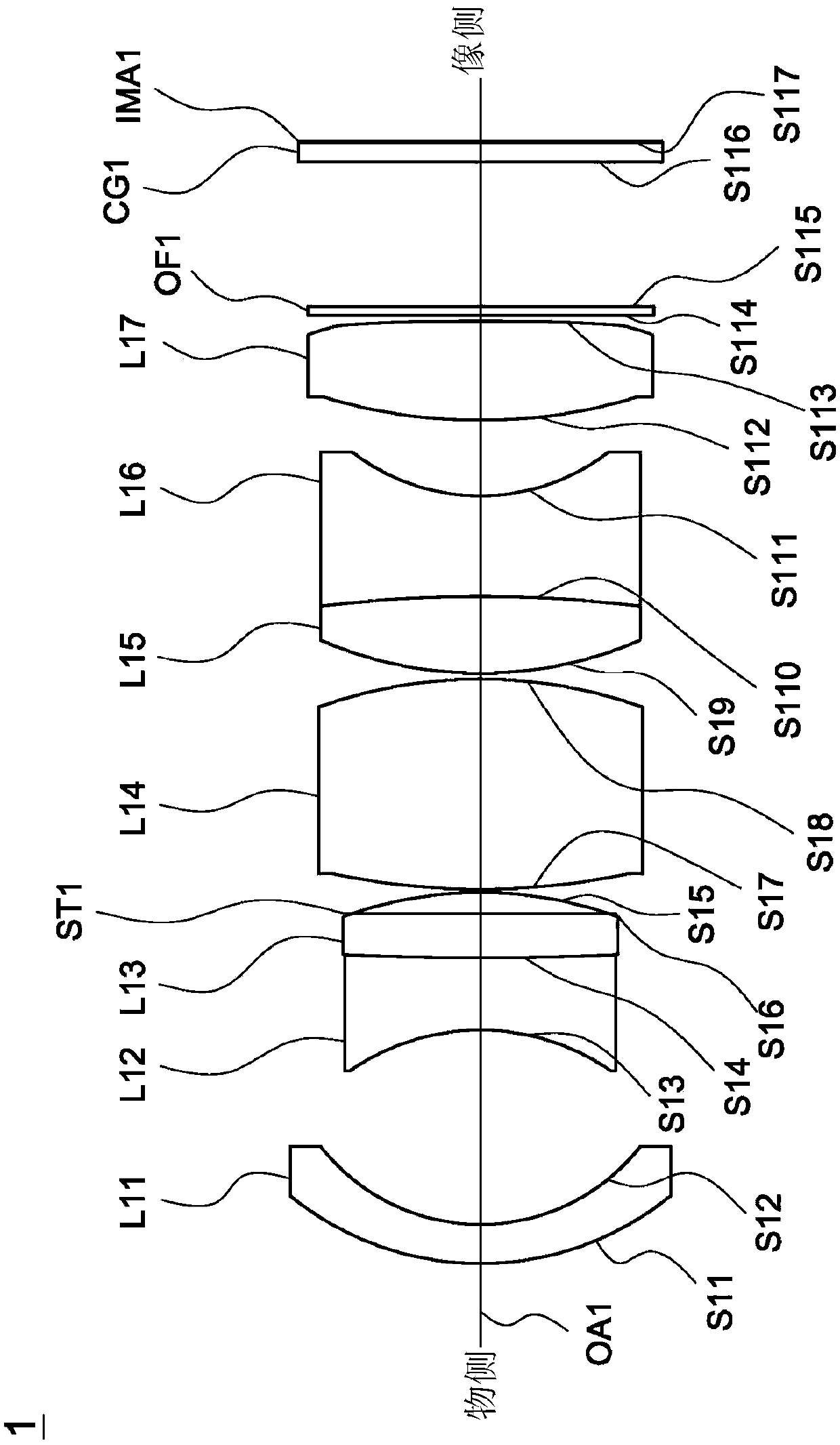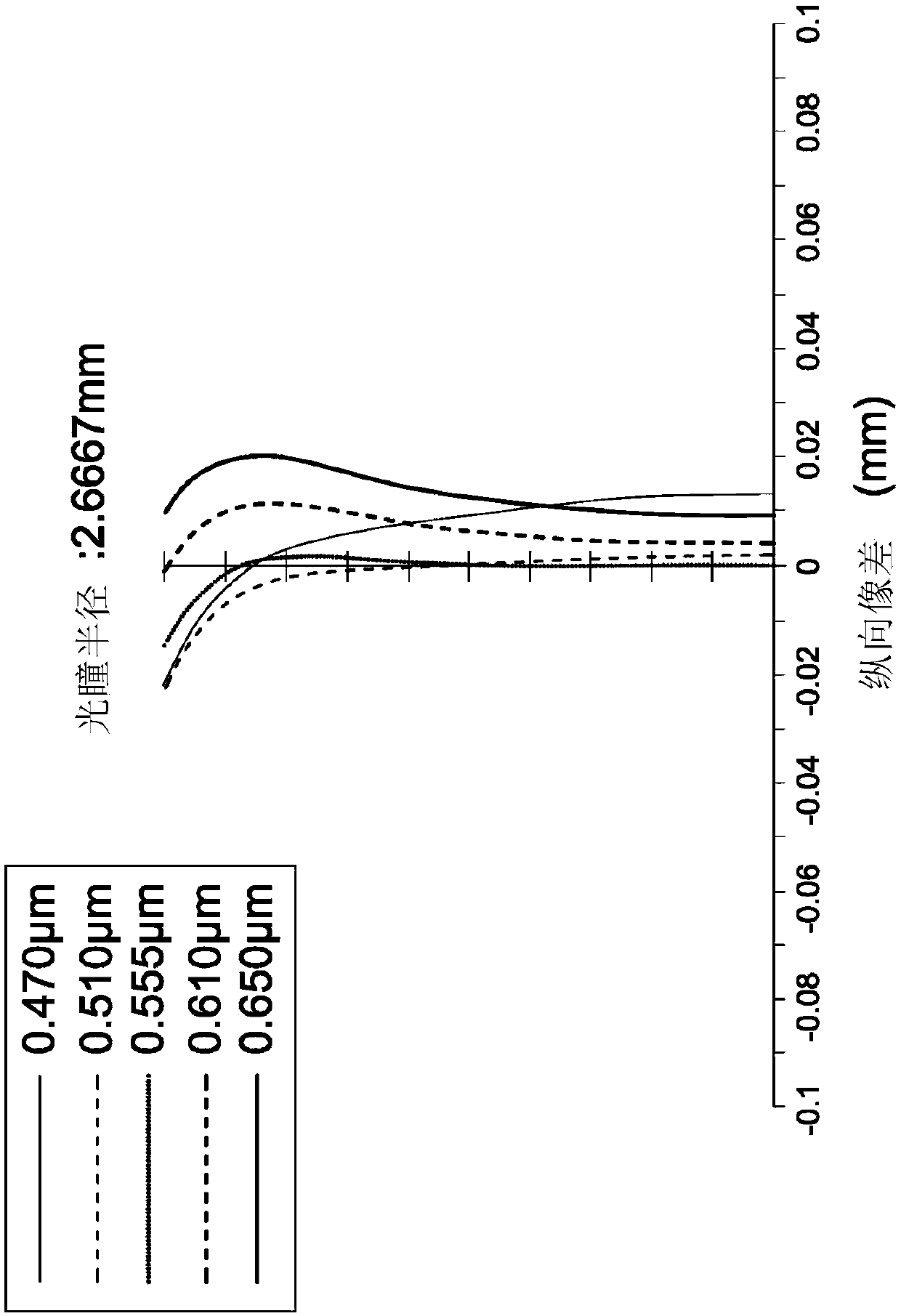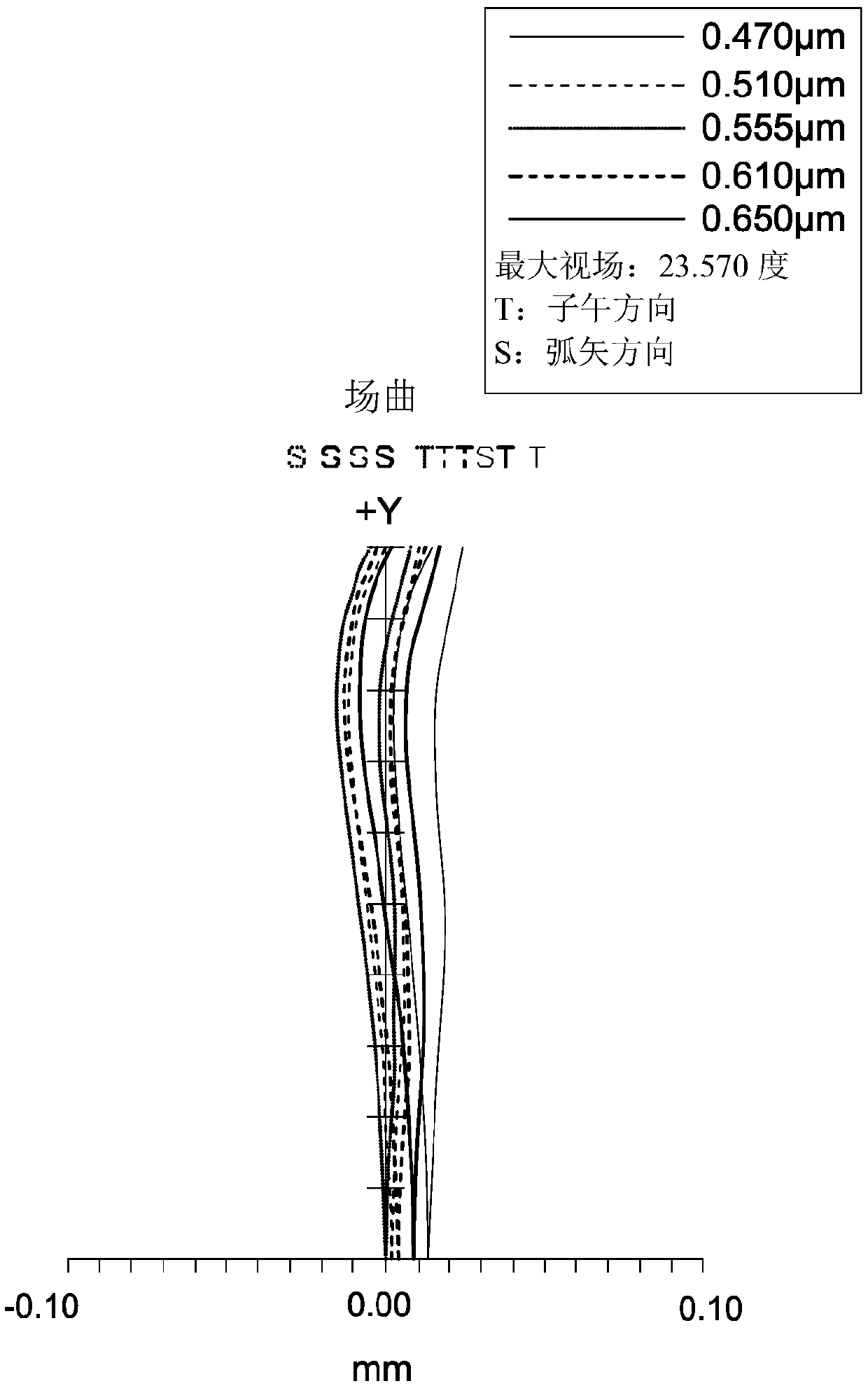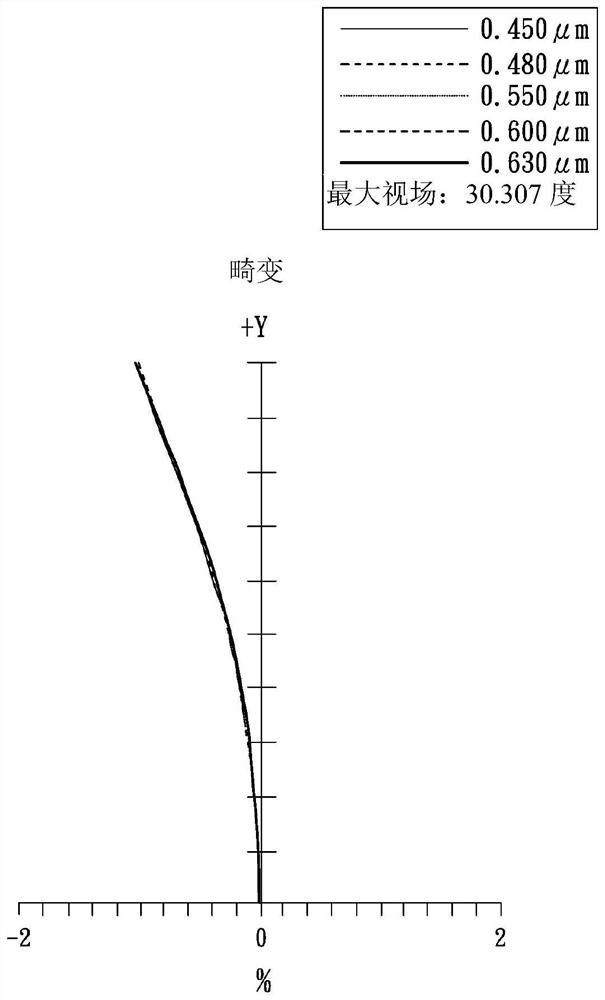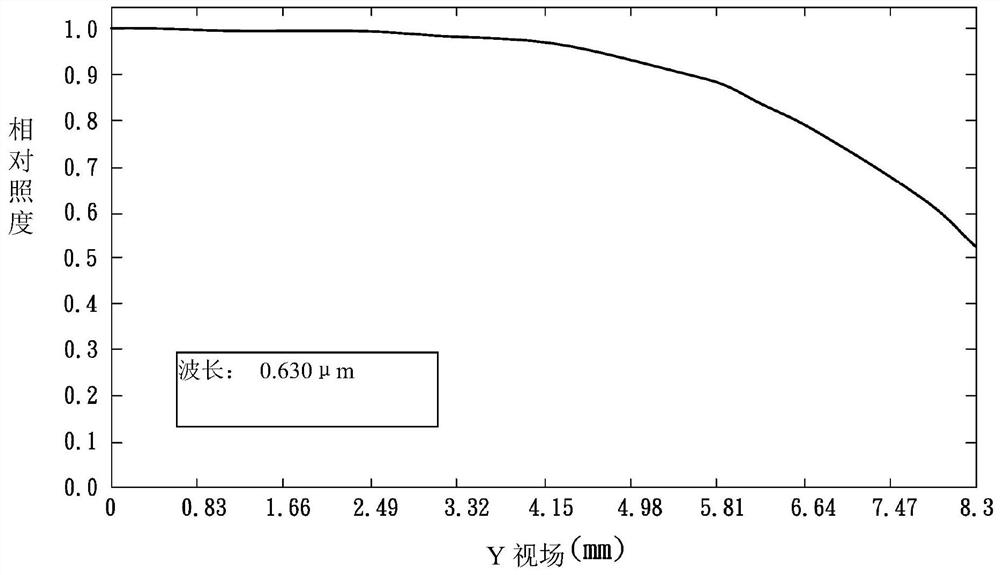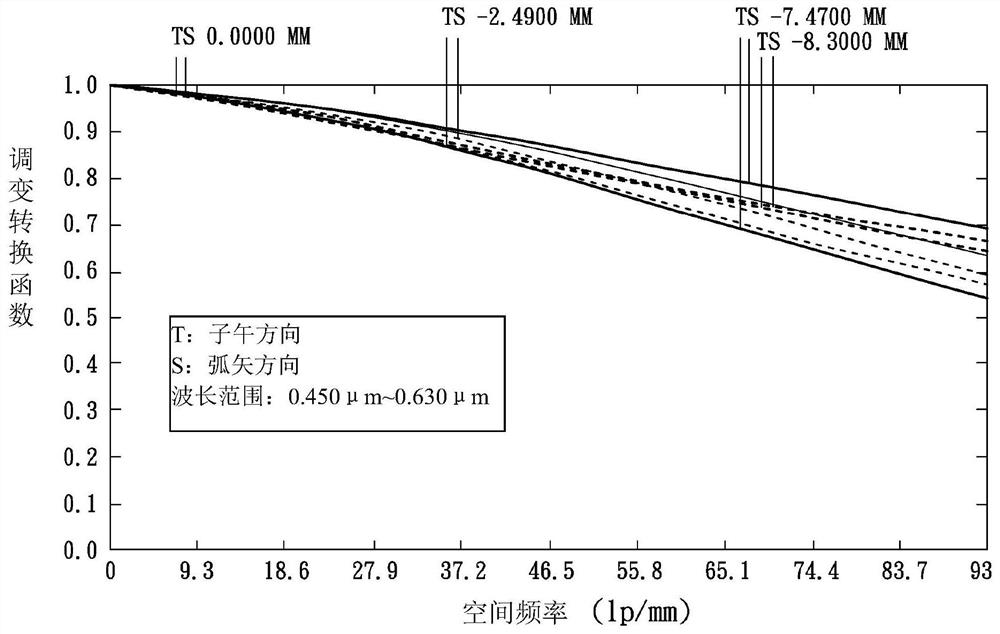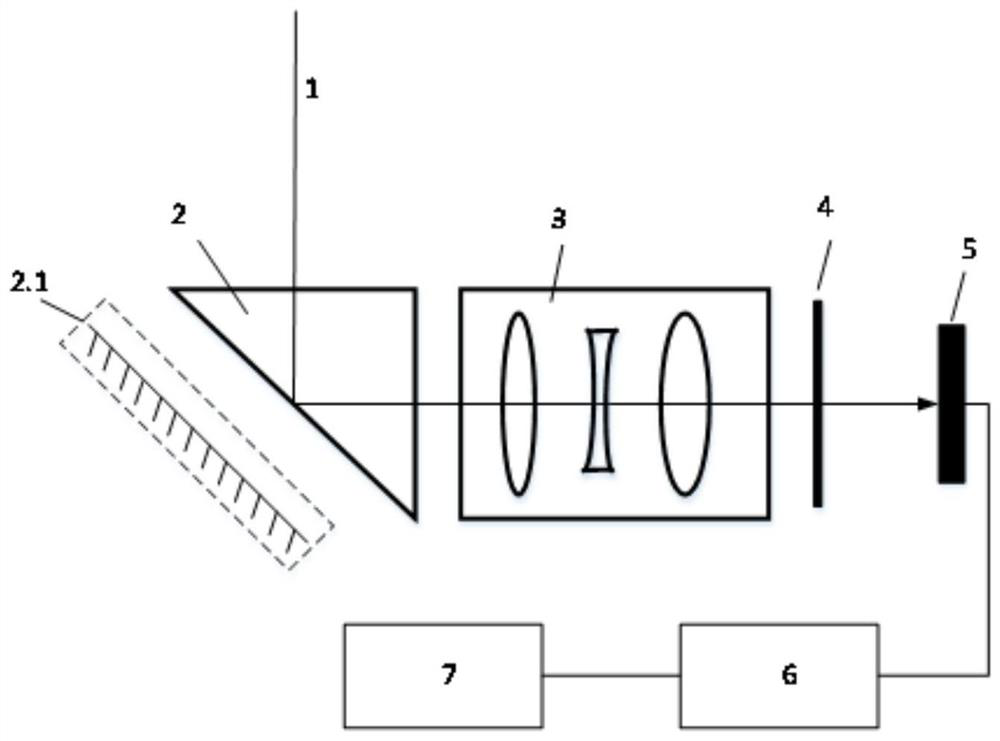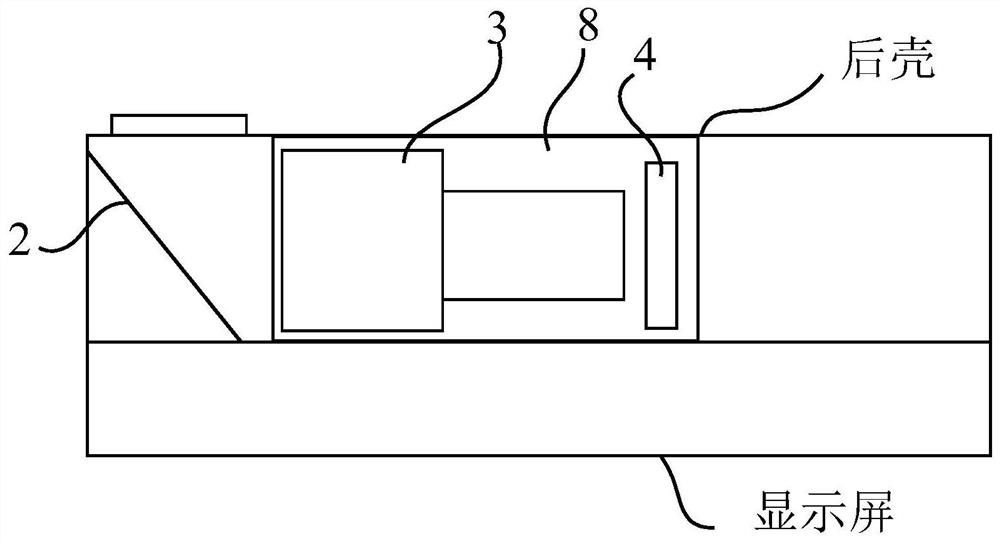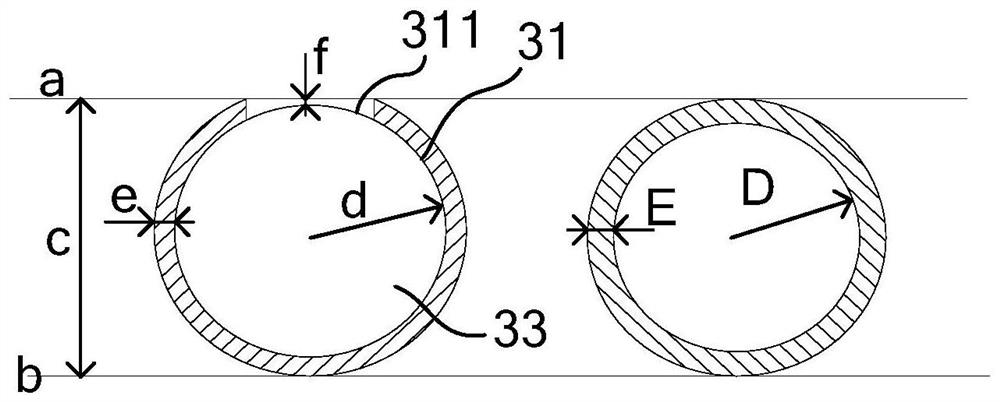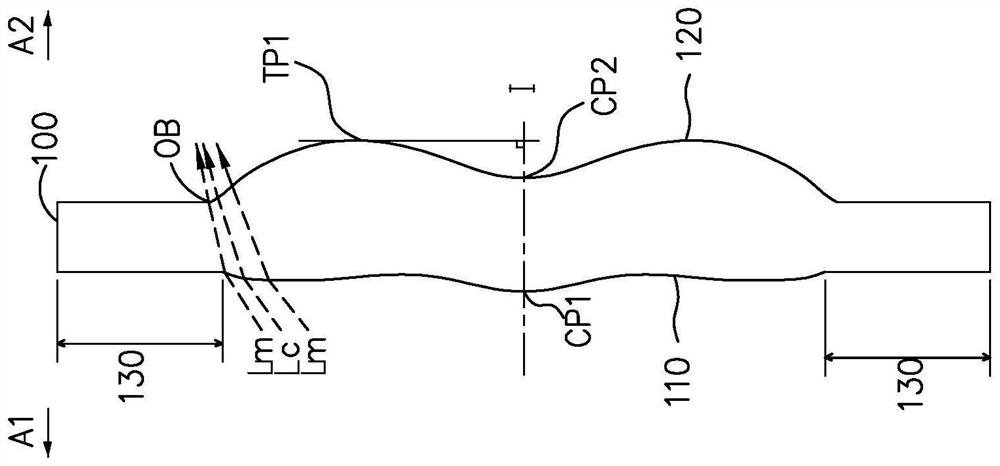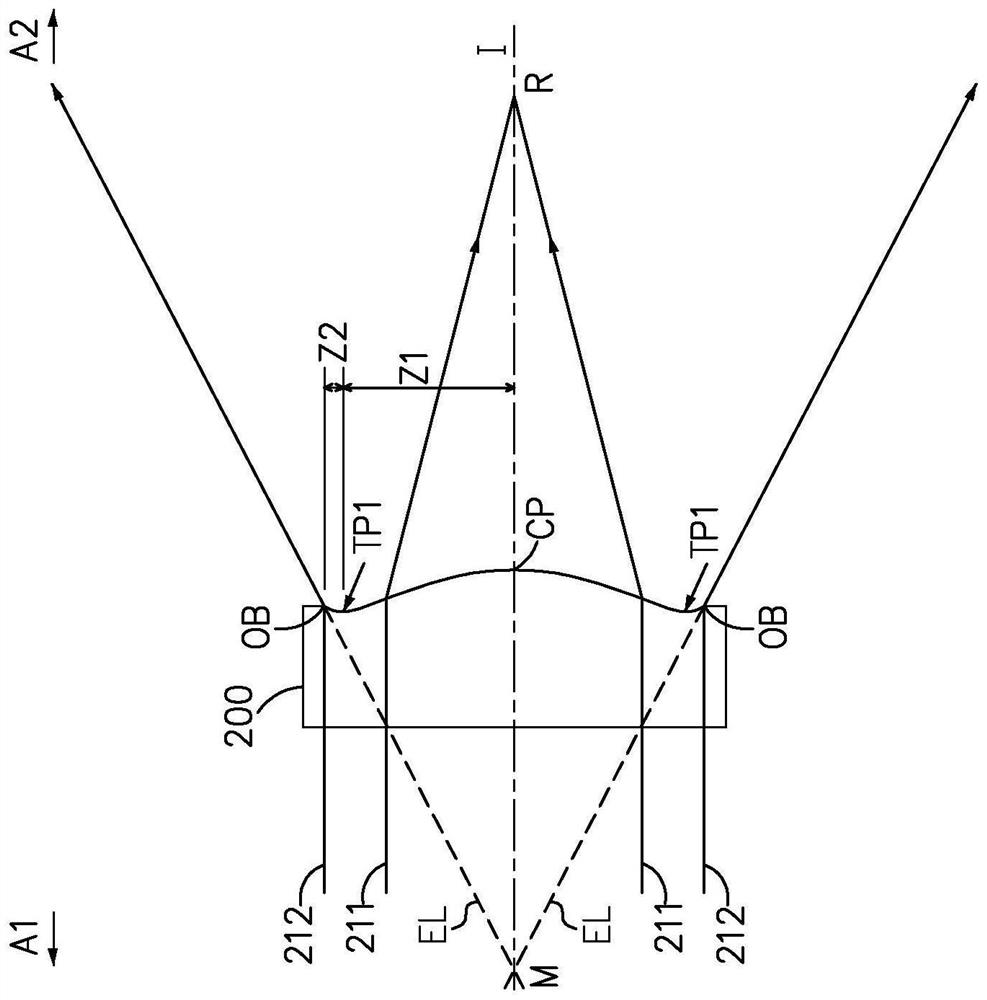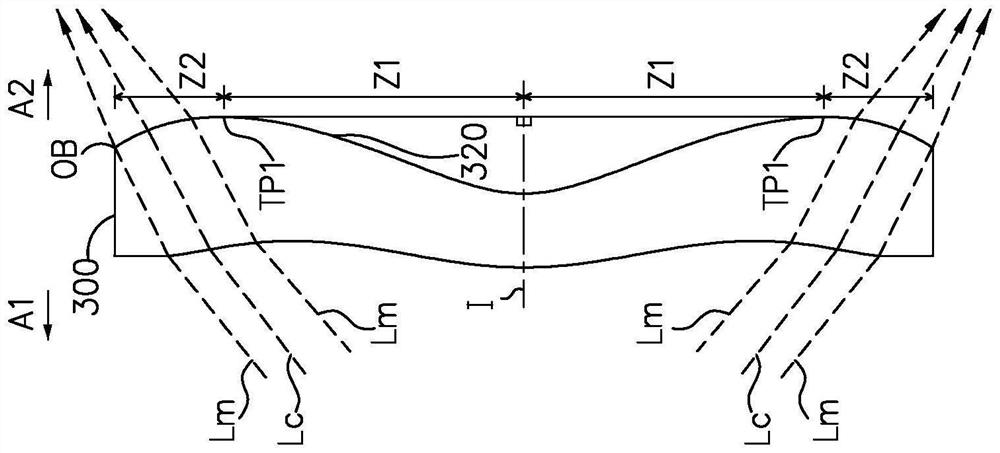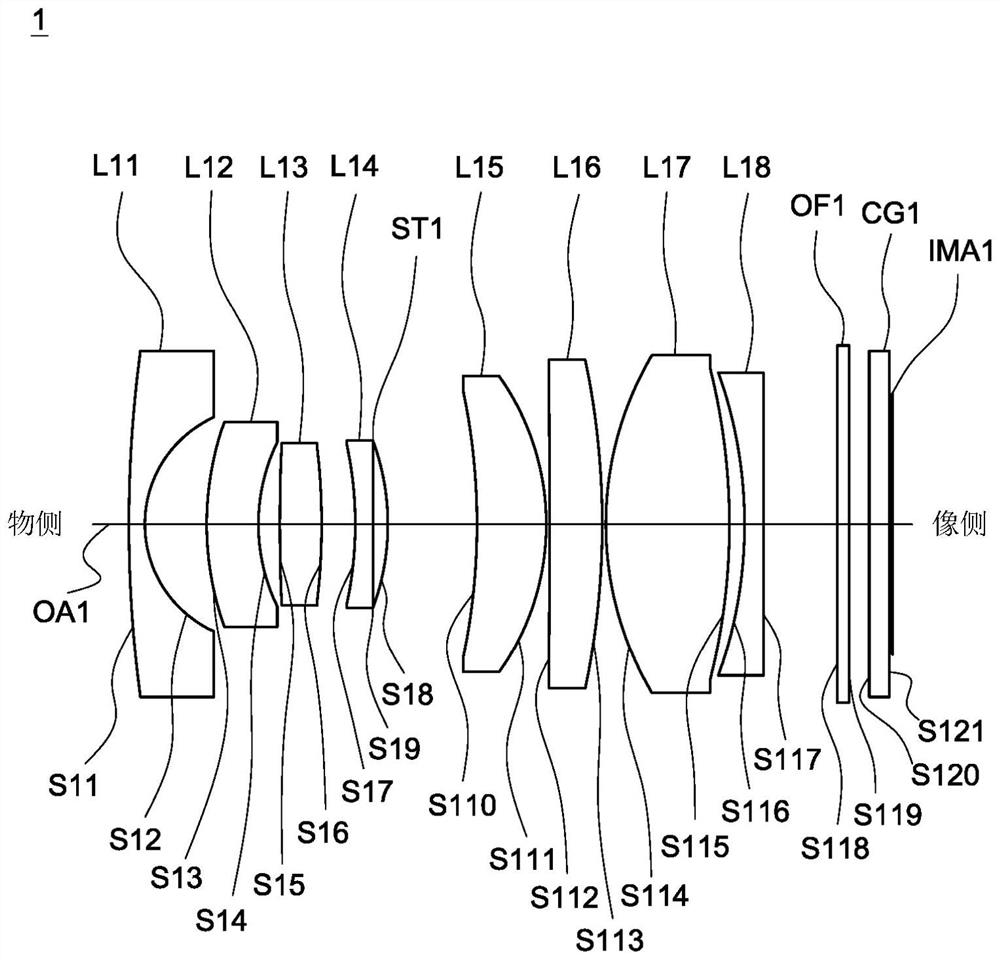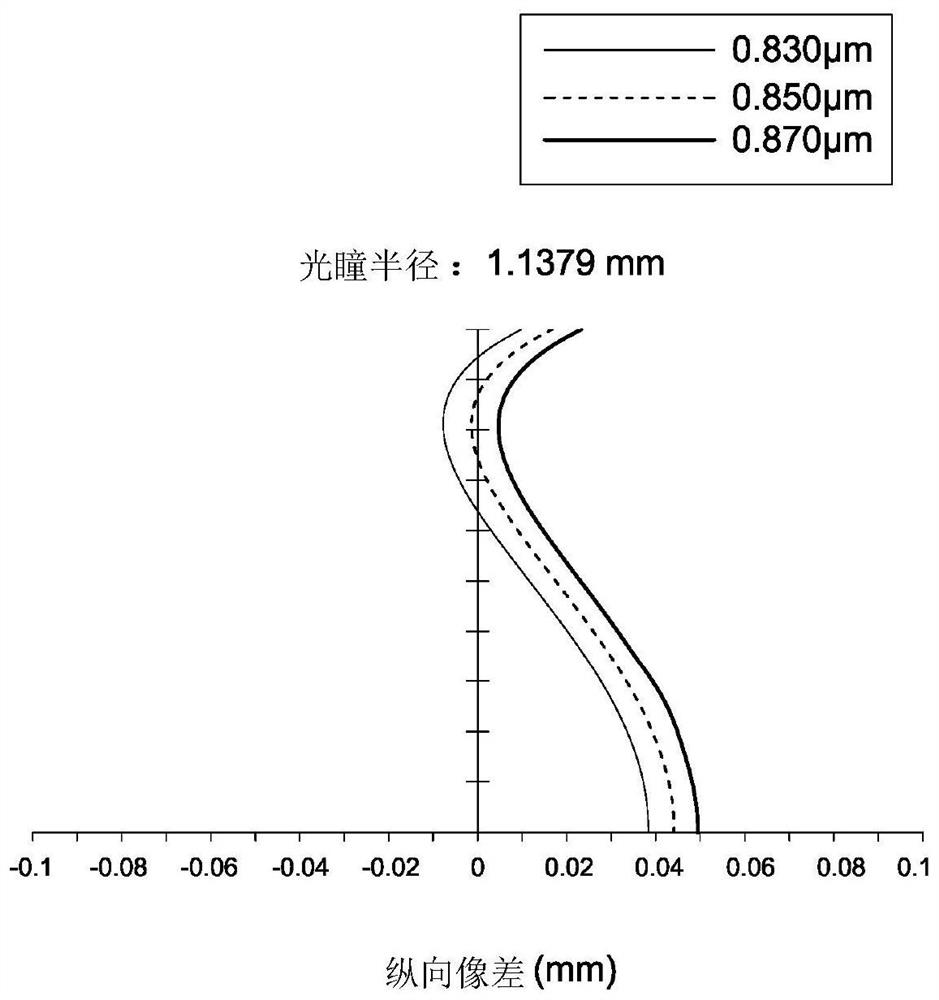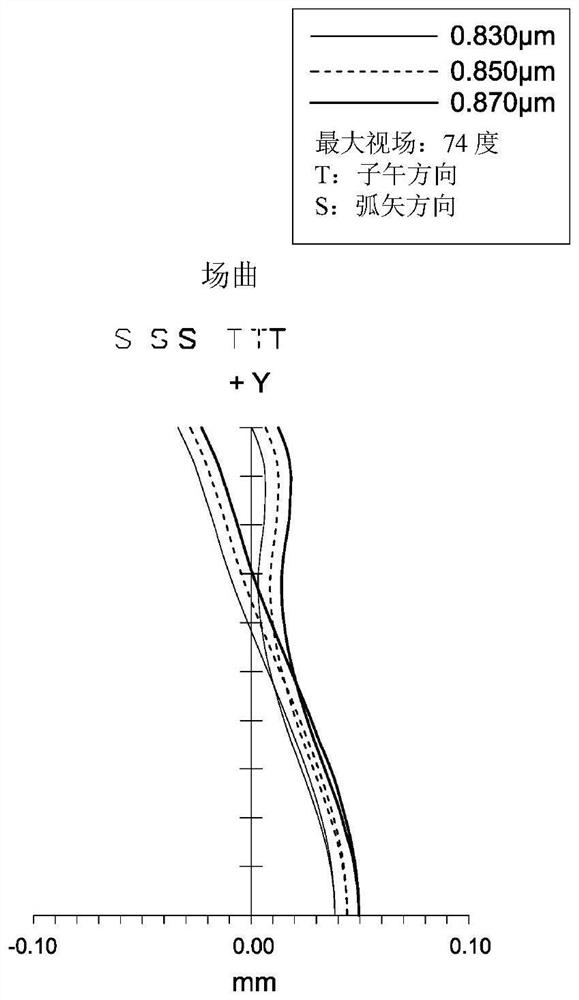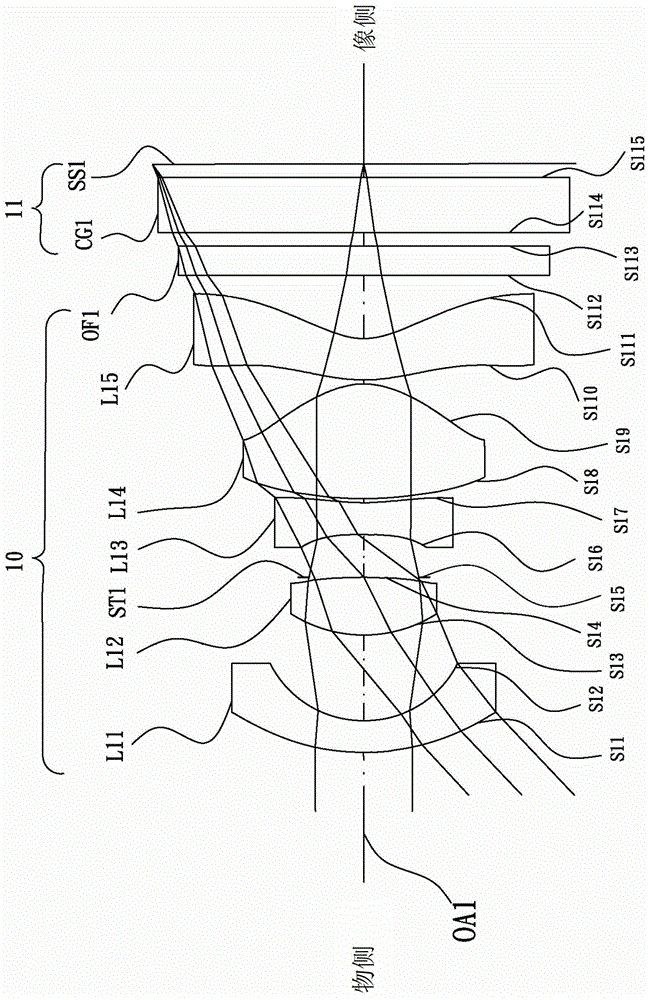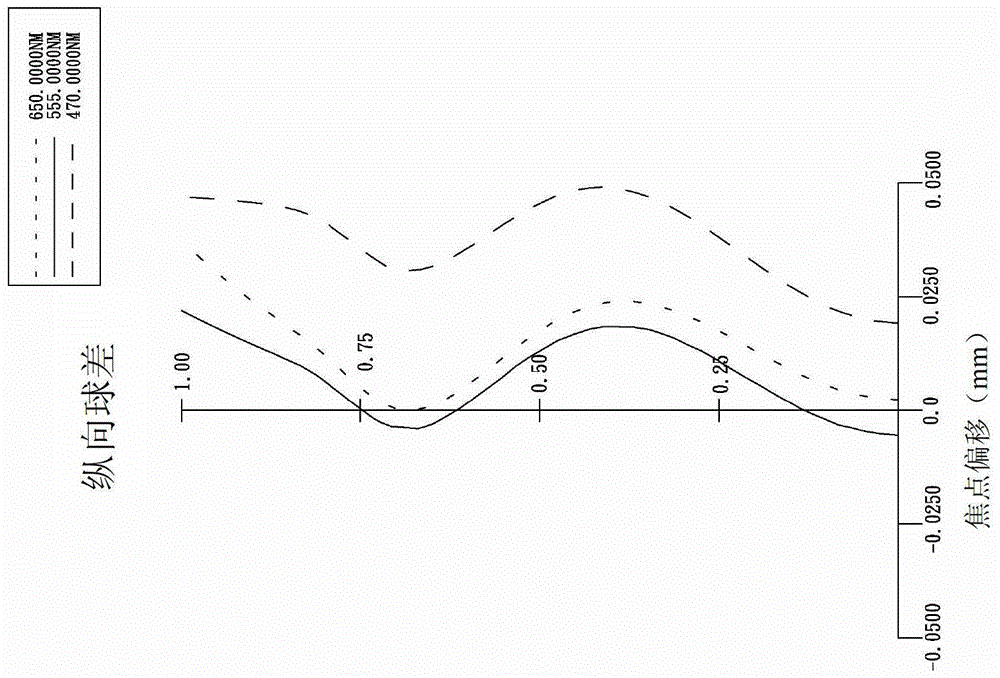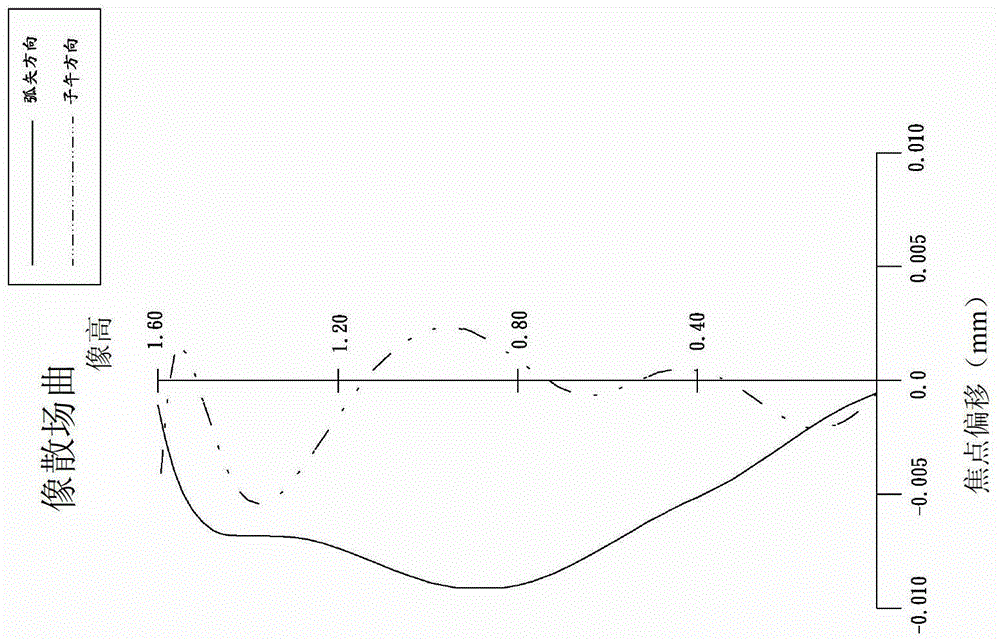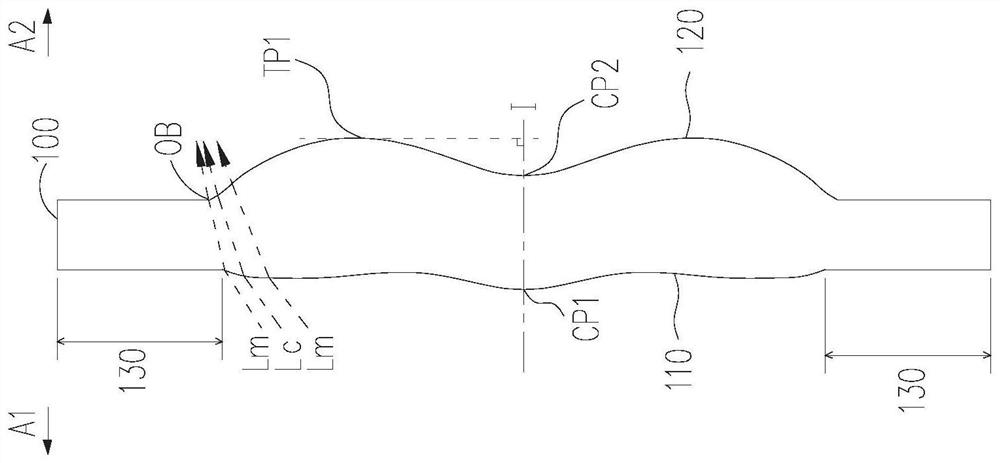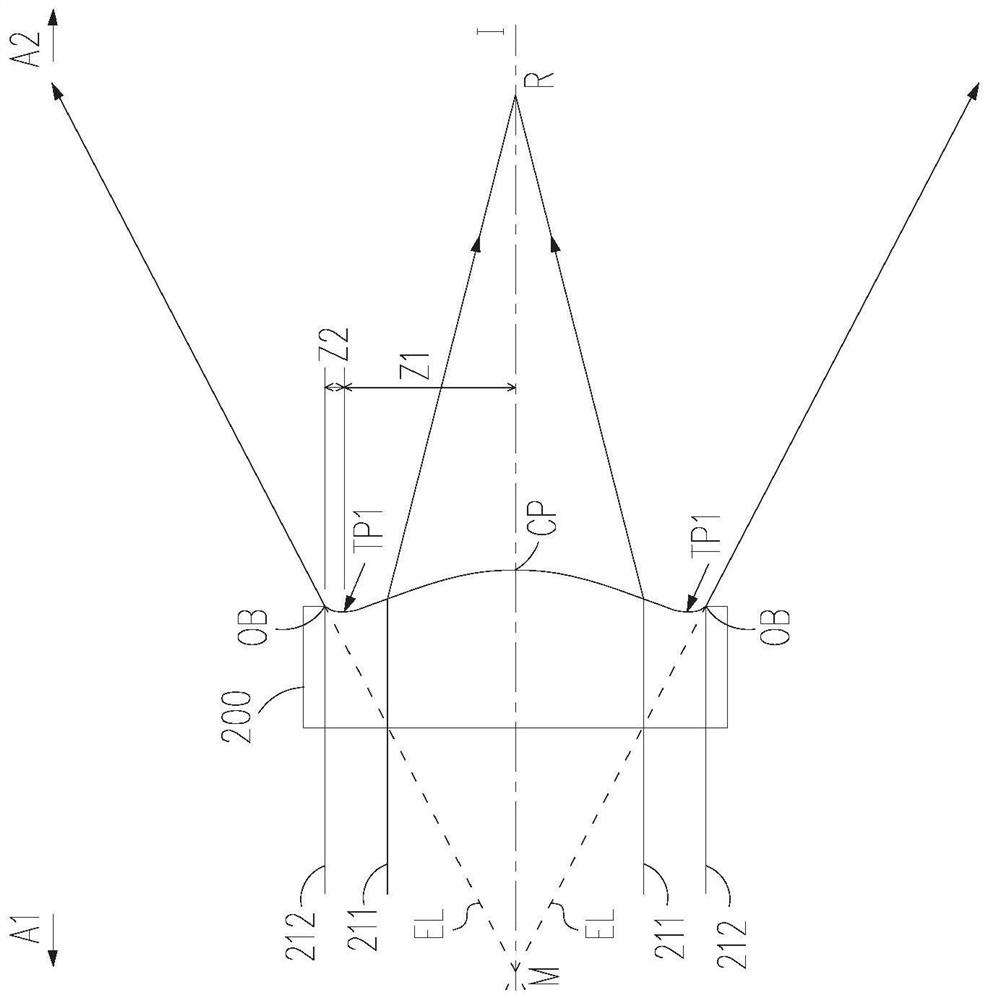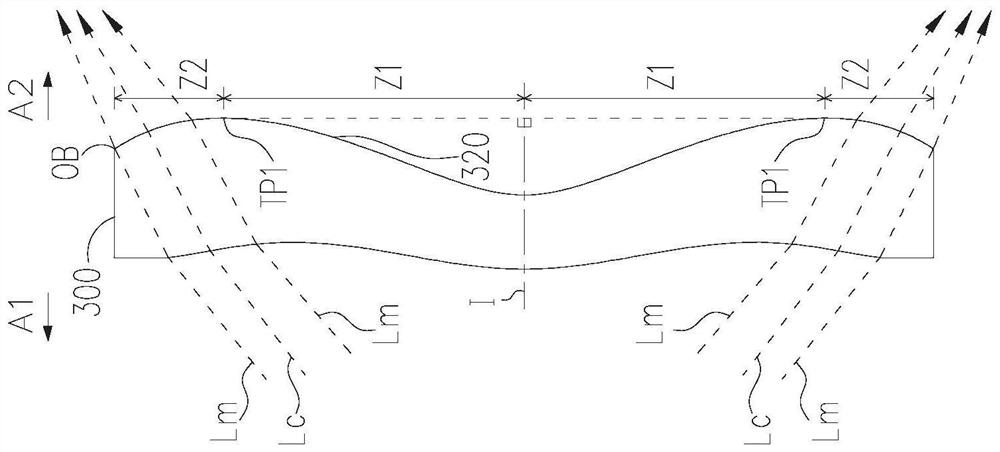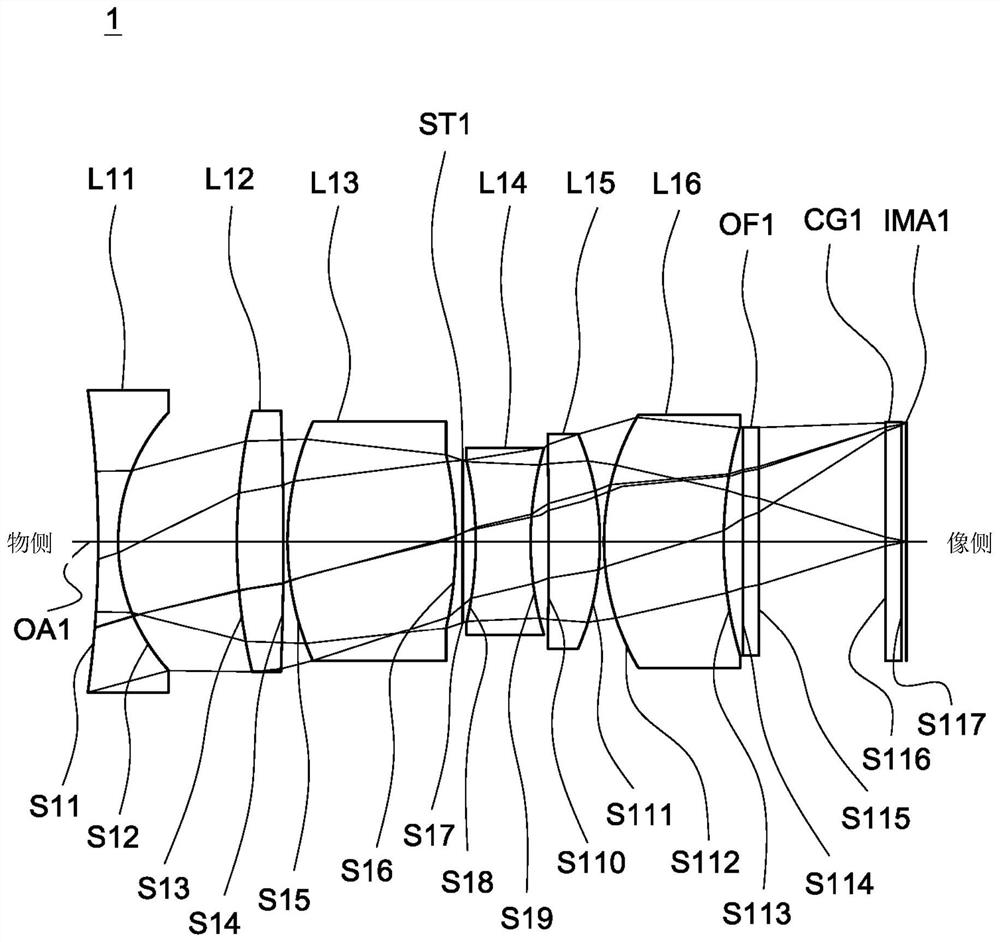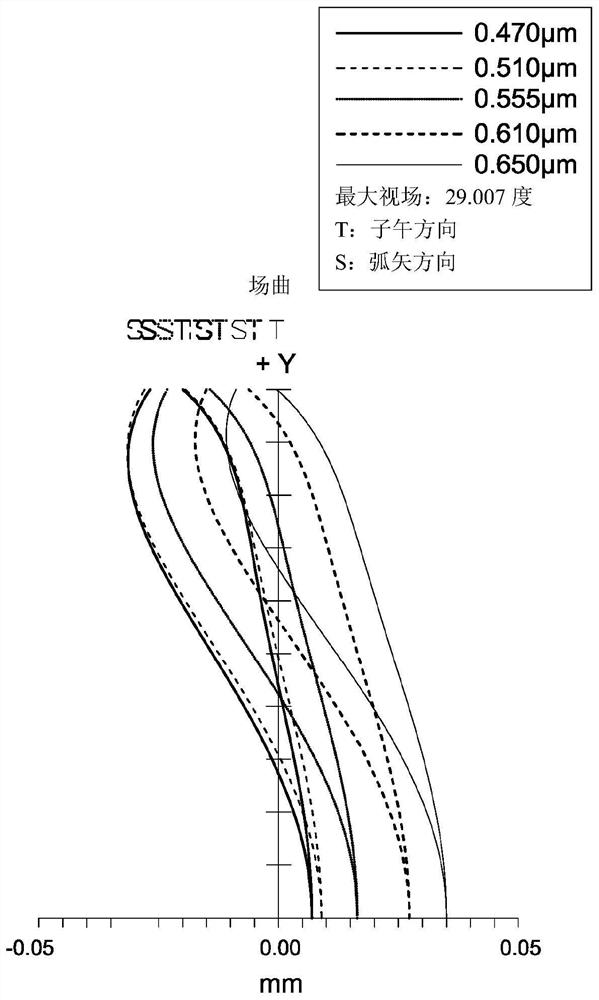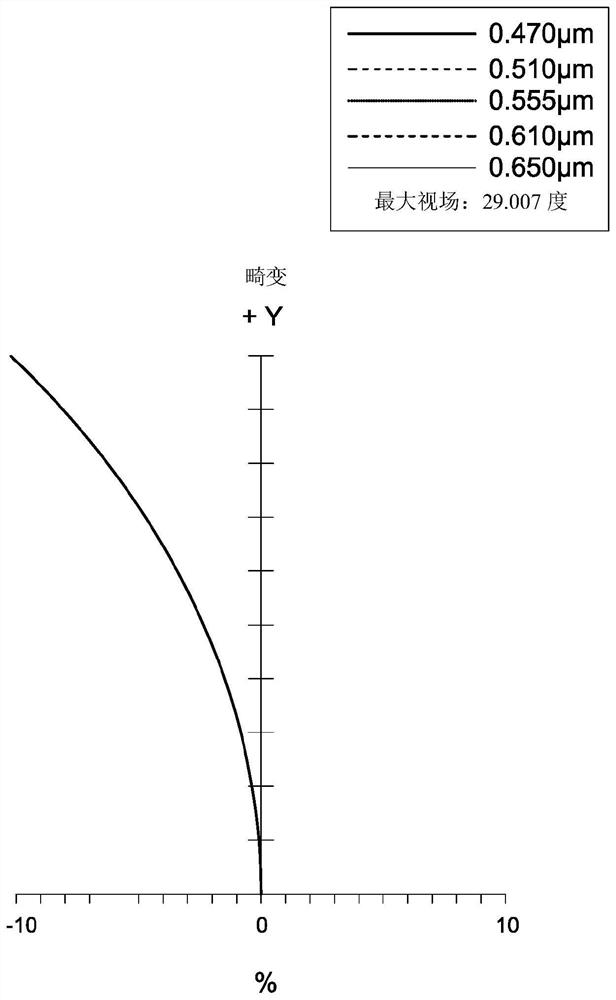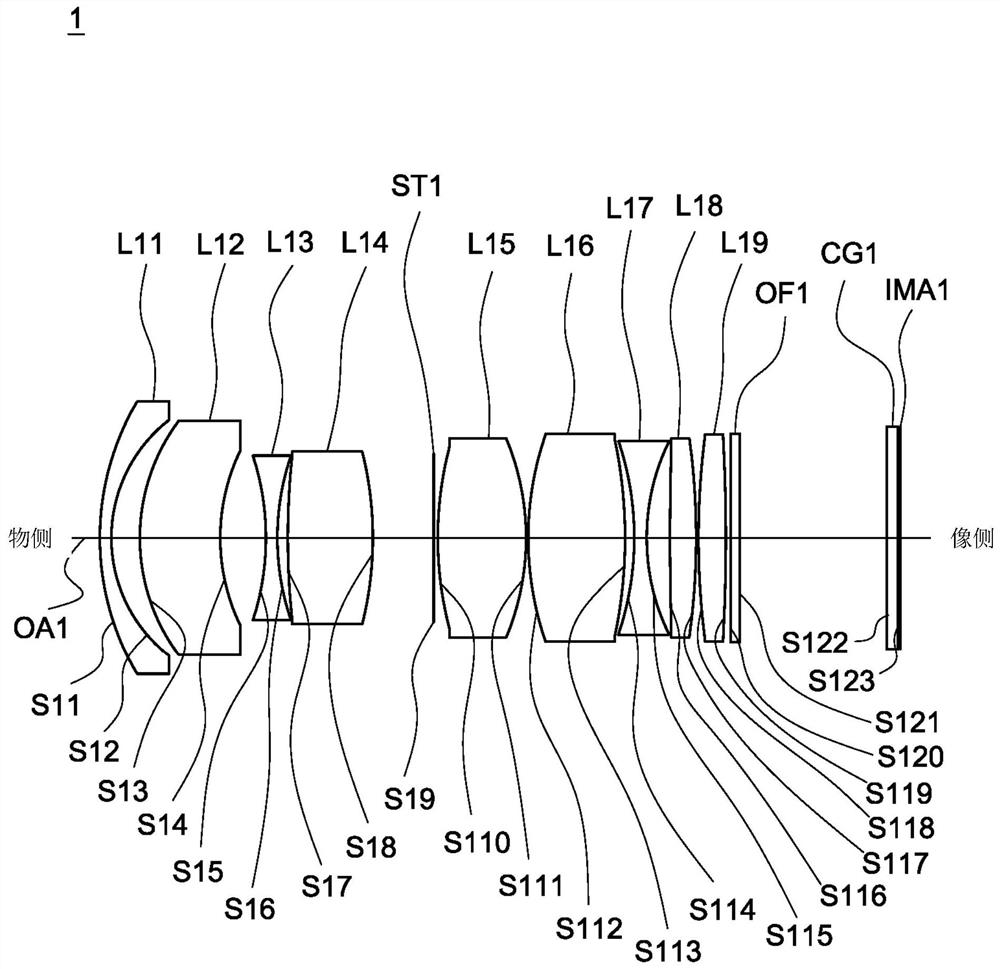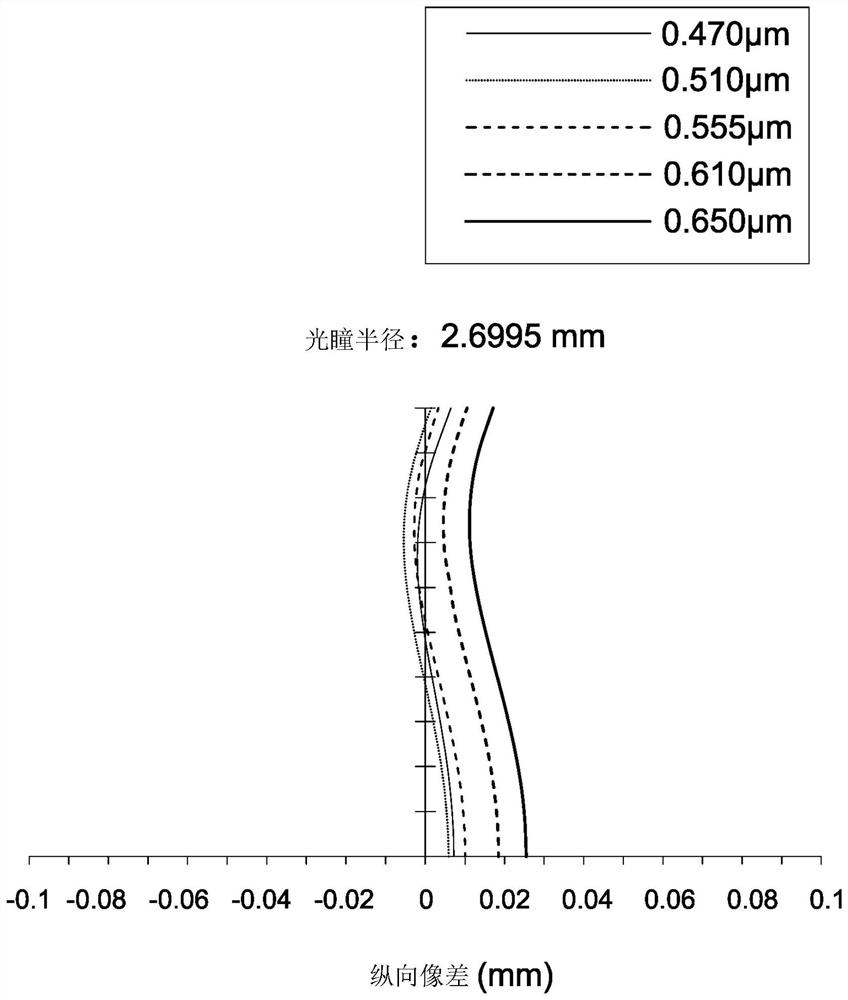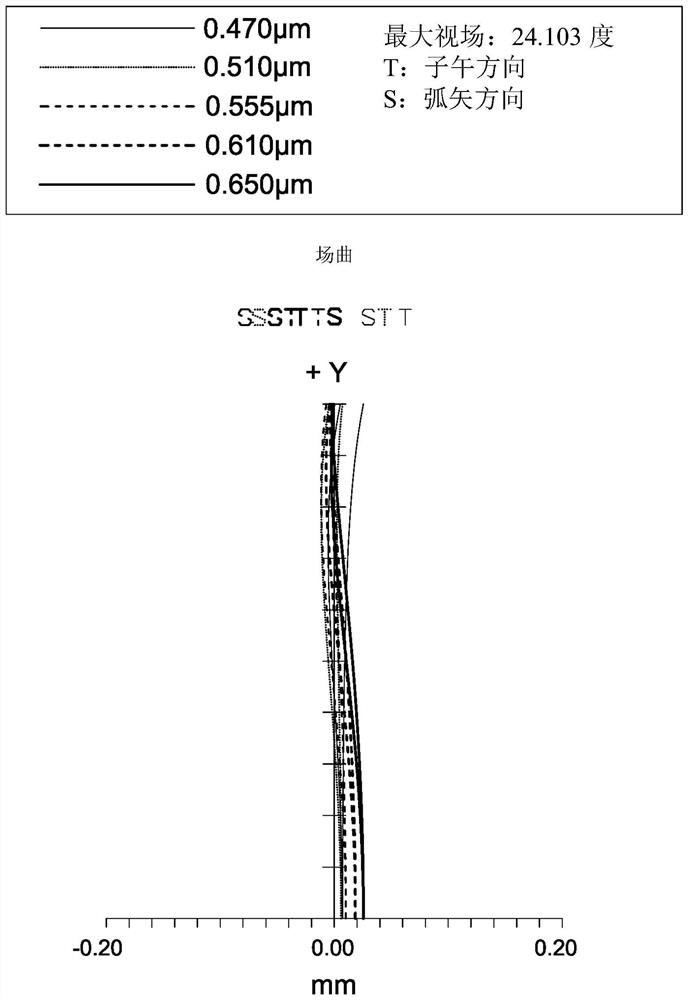Patents
Literature
48results about How to "Small aperture value" patented technology
Efficacy Topic
Property
Owner
Technical Advancement
Application Domain
Technology Topic
Technology Field Word
Patent Country/Region
Patent Type
Patent Status
Application Year
Inventor
Imaging lens
ActiveCN108241202AWith large viewing angleSmall aperture valueOptical elementsOptical axisImaging lens
The invention relates to an imaging lens, which sequentially comprises a first lens, a second lens, a third lens, a fourth lens, a diaphragm, a fifth lens, a sixth lens, a seventh lens and an eighth lens from the object side to the image side along an optical axis. The first lens is a meniscus lens having negative refractive power. The second lens is a meniscus lens having negative refractive power. The third lens is a biconcave lens having negative refractive power. The fourth lens is a biconvex lens having positive refractive power. The fifth lens is a biconvex lens having positive refractive power. The sixth lens has a positive refractive power. The seventh lens has a negative refractive power. The eighth lens has a positive refractive power. The sixth lens and the seventh lens are glued to each other.
Owner:SINTAI OPTICAL SHENZHEN CO LTD +1
Wide-angle lens
A wide-angle lens includes a first lens, a second lens, a third lens, a fourth lens, a fifth lens, and a sixth lens in order from the object side to the image side along an optical axis. The first lens is a crescent lens with negative refractive power, and the convex surface of the first lens faces the object side, and the concave surface faces the image side. The second lens is a crescent lens with a negative refractive power, and the convex surface of the second lens faces the object side, and the concave surface faces the image side. The third lens and the sixth lens are bi-convex lens having a positive refractive power, and the fourth lens has a positive refractive power. The fifth lens is a biconcave lens having negative refractive power. The wide-angle lens satisfies the following condition of 2<=theta m / TTL<=2.5, wherein the theta m is the maximum half visual angle of the wide-angle lens, the unit of the maximum half visual angle is degrees, and the TTL is the distance from theobject-side surface of the first lens to the image plane on the optical axis, the unit of the distance in mm.
Owner:SINTAI OPTICAL SHENZHEN CO LTD +1
Lens and terminal equipment
InactiveCN109581626ASolve the problem of poor depth recognition accuracyIncrease brightnessOptical elementsCamera lensIlluminance
The embodiment of the invention provides a lens and terminal equipment, and relates to the technical field of lens. The lens comprises a lens group, the lens group comprises a first lens, a second lens, a third lens and a fourth lens, wherein the first lens, the second lens, the third lens and the fourth lens are arranged from the object side to the image side in sequence. The object side surfaceof the first lens is convex, the relative illuminance RI of the lens group and the quartic cos<4> (HFOV) of a cosine value of a half angle of view of the lens group meet the condition that RI / cos<4> (HFOV) is greater than or equal to 1, and the effective focal length f of the lens group and the entrance pupil diameter EPD of the lens group meets the condition that f / EPD is less than or equal to 1.3.
Owner:HUAWEI TECH CO LTD
Optical imaging lens
PendingCN110927931ASmall aperture valueShorten the lengthOptical elementsOphthalmologyImaging quality
An optical imaging lens sequentially comprises a first lens, a second lens, a third lens, a fourth lens, a fifth lens, a sixth lens, a seventh lens and an eighth lens from an object side to an image side along an optical axis. Each of the first to eighth lenses comprises an object side surface facing the object side and allowing imaging light to pass therethrough and an image side surface facing the image side and allowing imaging light to pass therethrough. The first lens has a positive refractive index. The second lens has a negative refractive index. The optical axis area of the object sidesurface of the fifth lens is a concave surface. The optical axis area of the object side surface of the sixth lens is a convex surface. The optical axis area of the image side surface of the seventhlens is a convex surface. The lens with refractive index of the optical imaging lens is only the first lens to the eighth lens. The lens of the optical imaging lens has a small aperture value, a shortsystem length and a large field angle, and can still maintain good imaging quality.
Owner:GENIUS ELECTRONICS OPTICAL XIAMEN
Zoom lens
A zoom lens includes a first, a second, a third and a fourth lens groups that are arranged along an optical axis and from an object side to an image side in sequence. The refractive powers of the four lens groups are positive, negative, positive and positive, respectively. The first and the third lens groups are fixed at a fixed position. The second lens group is movable along the optical axis in accordance with the change of magnification. The fourth lens group is movable along the optical axis in accordance with keeping an image plane fixed at an image sensor. The present invention has at least four pieces of lens that are made of plastic material in order to decrease camera lens weight and move easily the lens groups. In addition, the present invention has small variation of aperture value, moderate zoom ratio and compact size at the same time.
Owner:AU OPTRONICS CORP
Optical imaging lens
The invention discloses an optical imaging lens. The optical imaging lens sequentially comprises a first lens, a second lens and a third lens from an object side to an image side along an optical axis. Each of the first to third lenses includes an object side surface facing the object side and allowing the imaging light to pass through and an image side surface facing the image side and allowing the imaging light to pass through. The circumferential area of the image side surface of the first lens is a concave surface. The optical axis area of the object side surface of the second lens is a concave surface. The third lens has a negative refractive index. The optical imaging lens only comprises the three lenses and meets the following conditional expressions: HFOV / TTL is greater than or equal to 16.000 DEG / mm, and T1 / T3 is greater than or equal to 1.350. The optical imaging lens has the advantages of being small in aperture value, small in size, capable of improving the field angle and excellent in imaging quality.
Owner:GENIUS ELECTRONICS OPTICAL XIAMEN
Wide-Angle Lens Assembly
ActiveUS20200073086A1Good optical performanceInhibition effectTelevision system detailsColor television detailsOphthalmologyOptical axis
A wide-angle lens assembly includes a first lens, a second lens, a third lens, a fourth lens, a fifth lens, a sixth lens, a seventh lens, an eighth lens, and a ninth lens. The first lens has negative refractive power and includes a concave surface facing an image side. The second lens has negative refractive power and includes a concave surface facing the image side. The third lens has negative refractive power and includes a concave surface facing the image side. The fourth, fifth, seventh and eighth lenses have refractive power. The sixth and ninth lenses are biconvex lenses with positive refractive power. The first to ninth lenses are arranged in order from an object side to the image side along an optical axis.
Owner:SINTAI OPTICAL SHENZHEN CO LTD +1
Optical imaging lens
The invention discloses an optical imaging lens, which comprises a first lens to a seventh lens, wherein each lens is provided with an object side surface and an image side surface, the second lens has a negative refractive index, one optical axis area of the object side surface of the fifth lens is a concave surface, one optical axis area of the object side surface of the seventh lens is a convexsurface, the optical imaging lens only comprises the seven lenses, and the following conditions are satisfied: V5 + V6 + V7 is more than or equal to 140.00, (ImgH + D61t72) / D11t42 is more than or equal to 2.400, and V4 is more than or equal to 30.00. The optical imaging lens has the advantages of short system length, small aperture value, large image height, good optical performance and feasibletechnology.
Owner:GENIUS ELECTRONICS OPTICAL XIAMEN
Fixed-focus lens
PendingCN110441889AExpand the use environmentSmall aperture valueOptical elementsPhysicsOptical axis
The invention relates to a fixed-focus lens. The fixed-focus lens comprises a first lens (1), a second lens (2), a third lens (3), a diaphragm (S), a fourth lens (4), a fifth lens (5), a sixth lens (6), a seventh lens (7) and an eighth lens (8), which are sequentially arranged along the optical axis from the object side to the image side; the fixed-focus lens is characterized in that the first lens (1), the fourth lens (4), the fifth lens (5) and the sixth lens (6) are glass lenses; the second lens (2) and the third lens (3) are glass lenses or plastic lenses; the seventh lens (7) and the eighth lens (8) are plastic lenses; and the fixed-focus lens at least comprise three lenses having negative focal power. The fixed-focus lens in the invention has the advantages of being large in diaphragm, small in volume, low in cost, confocal day and light and steady in high and low temperature performance.
Owner:舜宇光学(中山)有限公司
Optical imaging lens
PendingCN108459393AShorten the lengthGuaranteed image qualityOptical elementsCamera lensImaging quality
The present invention discloses an optical imaging lens. The optical imaging lens comprises in order from an object side to an image side: a first lens, a second lens, a third lens and a fourth lens.The concave-convex arrangement of the surfaces of the four lenses are designed to allow the whole length of the optical imaging lens to be small and allow the aperture value of the optical imaging lens to be small, and the optical imaging lens can take the consideration of imaging quality and optical performances.
Owner:GENIUS ELECTRONICS OPTICAL XIAMEN
Imaging lens
An imaging lens comprises a first lens, a second lens, a third lens, a fourth lens, a fifth lens, a sixth lens and a seventh lens. The first lens with positive refractive power has a convex surface facing the object side and a concave surface facing the image side. The second lens with negative refractive power has a convex surface facing the object side and a concave surface facing the image side. The third lens with positive refractive power has a convex surface facing the object side and a concave surface facing the image side. The fourth lens has refractive power. The fifth lens has positive refractive power. The sixth lens has negative refractive power. The seventh lens has negative refractive power and comprises a convex surface facing the object side and a concave surface facing theimage side. The imaging lens satisfies the following conditions: 1 < R71 / R12 < 3, wherein R12 is the curvature radius of the image side surface of the first lens, and R71 is the curvature radius of the object side surface of the seventh lens.
Owner:SINTAI OPTICAL SHENZHEN CO LTD +1
Optical imaging lens
PendingCN111239965AShorten the lengthGuaranteed image qualityOptical elementsOphthalmologyImaging quality
The invention discloses an optical imaging lens which comprises first to seventh lenses along an optical axis in sequence from an object side to an image side, and each lens is provided with an objectside surface and an image side surface. The optical axis area of the object side surface of the third lens is a convex surface, the optical axis area of the object side surface of the fourth lens isa concave surface, the optical axis area of the image side surface of the fifth lens is a concave surface, the sixth lens has a positive refractive index, the circumferential area of the object side surface of the sixth lens is a concave surface, and the optical axis area of the object side surface of the seventh lens is a concave surface. The optical imaging lens satisfies the following conditions: upsilon 2 + upsilon 3 + upsilon 6 < = 110.000 and (T1 + T7) / (G12 + T2 + G45) > = 2.500. The optical imaging lens has the advantages that the system length of the optical imaging lens is reduced, the imaging quality is ensured, and the optical imaging lens has good optical performance with a small aperture value.
Owner:GENIUS ELECTRONICS OPTICAL XIAMEN
Novel low-cost vehicle backing backsight wide angle lens
The invention discloses a novel low-cost vehicle backing backsight wide angle lens. The lens comprises a first lens element, a second lens element, a third lens element and a fourth lens element which are sequentially arranged from an object; an orifice plate is arranged between the third lens element and the fourth lens element; the first lens element is a meniscus glass lens which has negative focal power and is protruded towards the object; the second lens element, the third lens element and the fourth lens element are plastic lenses; and the six mirror surfaces of the second lens element, the third lens element and the fourth lens element are all of aspheric surfaces. The lens can realize ultra wide angle, large relative aperture and shorter lens height under the conditions that few lens elements are used and the majority of the lenses are made of low-priced plastics, so that the lens is particularly applied to ultra wide angle monitoring systems and vehicle mounted imaging systems.
Owner:NINGBO SUNNY AUTOMOTIVE OPTECH
Imaging lens
An imaging lens comprises a first lens, a second lens, a third lens, a fourth lens, a fifth lens and a sixth lens. The first lens element has refractive power and includes a convex surface facing theobject side. The second lens element has positive refractive power. The third lens element has positive refractive power. The fourth lens element has refractive power. The fifth lens has refractive power. The sixth lens element with positive refractive power includes a convex surface facing the object side. The first lens, the second lens, the third lens, the fourth lens, the fifth lens and the sixth lens are sequentially arranged from the object side to the image side along the optical axis. The imaging lens satisfies the following conditions: 0.2<|f5 / f|<1.5, wherein f5 is the effective focallength of the fifth lens, and f is the effective focal length of the imaging lens.
Owner:SINTAI OPTICAL SHENZHEN CO LTD +1
Optical imaging lens
Owner:GENIUS ELECTRONICS OPTICAL XIAMEN
Optical lens
An optical lens comprises a first lens, a second lens, a third lens, a fourth lens and a fifth lens. The first lens element has positive refractive power. The second lens element has negative refractive power. The third lens element has negative refractive power. The fourth lens element has refractive power and has a concave surface facing the projection side. The fifth lens element has positive refractive power. The first lens, the second lens, the third lens, the fourth lens and the fifth lens are sequentially arranged from a projection side to an image source side along the optical axis. The optical lens satisfies the following conditions: -2.10 < = f2 / f < = -1.38, wherein f is the effective focal length of the optical lens, and f2 is the focal length of the second lens.
Owner:SINTAI OPTICAL SHENZHEN CO LTD +1
Periscope type camera lens module of mobile terminal, and mobile terminal
The invention relates to the technical field of mobile terminals, and discloses a periscope type camera lens module of a mobile terminal, and the mobile terminal. The periscope type camera lens modulecomprises a motor shell body and a camera lens, wherein the camera lens comprises a shell body, a first lens and a second lens, the shell body comprises a first cylindrical body and a second cylindrical body communicated with the first cylindrical body, and at least one notch penetrating the side wall is formed in the side wall of the first cylindrical body; and the first lens is fixed in the first cylindrical body, and the second is fixed in the second cylindrical body. According to the periscope type camera lens module, the at least one penetrating notch is formed in the side wall of the first cylindrical body, and a part of the arc-shaped side wall of the first cylindrical body is cut away when the notch is formed. When the camera lens module is placed in the mobile terminal, the thickness dimension of the mobile terminal affects the diameter of the first lens. Therefore, when placing the camera lens module, the notch faces a rear shell of the mobile terminal, so that the diameterof the first lens can be increased, an aperture value of the camera lens module is reduced, and the imaging quality is improved.
Owner:HUAWEI TECH CO LTD
Imaging lens
ActiveCN112462485AControl Field of View SizeHigh-resolutionOptical elementsOphthalmologyOptical axis
An imaging lens comprises a first lens, a second lens, a third lens, a fourth lens, a fifth lens, a sixth lens, a seventh lens, an eighth lens and a ninth lens. The first lens has negative refractivepower and includes a concave surface facing the image side. The second lens has negative refractive power. The third lens has positive refractive power. The fourth lens has positive refractive power.The fifth lens has positive refractive power. The sixth lens has negative refractive power. The seventh lens has refractive power. The eighth lens has refractive power. The ninth lens is a meniscus lens and comprises a convex surface facing the object side and a concave surface facing the image side. The first lens, the second lens, the third lens, the fourth lens, the fifth lens, the sixth lens,the seventh lens, the eighth lens and the ninth lens are sequentially arranged from the object side to the image side.
Owner:SINTAI OPTICAL SHENZHEN CO LTD +1
Imaging lens
The invention discloses an imaging lens, which comprises a first lens, a second lens, a third lens, a fourth lens, a fifth lens, a sixth lens and a seventh lens, wherein the first lens has negative refractive power and includes a convex surface facing the object side; the second lens has negative refractive power; the third lens has positive refractive power; the fourth lens has positive refractive power; the fifth lens has positive refractive power; the sixth lens has negative refractive power; the seventh lens has positive refractive power and includes a convex surface facing the object side; and the first lens, the second lens, the third lens, the fourth lens, the fifth lens, the sixth lens and the seventh lens are sequentially arranged from the object side to the image side along the optical axis. The imaging lens satisfies the following conditions: the absolute value of f6 / f is greater than 0.3 and less than 1.2, wherein f6 is the effective focal length of the sixth lens, and f isthe effective focal length of the imaging lens.
Owner:SINTAI OPTICAL SHENZHEN CO LTD +1
projection lens
ActiveCN108957713BReduce volumeSmall aperture valueProjectorsOptical elementsOphthalmologyOptical axis
The invention relates to a projection lens, which sequentially includes a first lens group, a second lens group, a third lens group, a fourth lens group, a fifth lens group and a sixth lens along the optical axis from the projection side to the image source side group. The first lens group has negative refractive power, including the first lens, the second lens group has positive refractive power, the third lens group has positive refractive power, the fourth lens group has negative refractive power, the fifth lens group has positive refractive power, and the sixth lens group has Positive refractive power, where the projection lens meets the following conditions: 0.4<R 12 / f<2.5; R 12 is the curvature radius of the image source side of the first lens, and f is the effective focal length of the projection lens.
Owner:SINTAI OPTICAL SHENZHEN CO LTD +1
A periscope lens module of a mobile terminal and the mobile terminal
The application relates to the technical field of mobile terminals, and discloses a periscope lens module for a mobile terminal and the mobile terminal. The module includes: a motor housing and a lens; the lens includes: a casing, a first lens, and a second lens, wherein the casing includes a first cylinder and a second cylinder connected to the first cylinder, and the second cylinder communicates with the first cylinder. The side wall of a cylinder is provided with at least one notch penetrating the side wall; the first lens is fixed in the first cylinder, and the second lens is fixed in the second cylinder. In the above embodiment, at least one through notch is provided on the side wall of the first cylindrical body, and when the notch is formed, a part of the arc-shaped side wall on the first cylindrical body is cut away. When the lens module is placed in the mobile terminal, the thickness of the mobile terminal affects the diameter of the first lens. Therefore, when placing the lens module, the notch is directed towards the rear shell of the mobile terminal, so that the diameter of the first lens can be increased and the diameter of the first lens can be reduced. The aperture value of the small lens module improves the quality of imaging.
Owner:HUAWEI TECH CO LTD
Optical imaging lens
The invention discloses an optical imaging lens, which sequentially comprises a first lens, a second lens, a third lens, a fourth lens, a fifth lens, a sixth lens and a seventh lens from an object side to an image side along an optical axis, each of the first to seventh lenses comprises an object side surface facing the object side and allowing imaging light to pass through and an image side surface facing the image side and allowing imaging light to pass through, the first lens has a positive refractive index, the circumferential area of the object side surface of the fourth lens is a convex surface, the fifth lens has a positive refractive index, the sixth lens has a positive refractive index, and the fifth lens has a convex surface. The optical axis area of the object side surface of the third lens is a convex surface, the optical axis area of the object side surface of the seventh lens is a convex surface, the second lens has a negative refractive index or the third lens has a positive refractive index or the seventh lens has a negative refractive index, and the optical imaging lens has only seven lenses and is provided with at least one adjustable air gap.
Owner:GENIUS ELECTRONICS OPTICAL XIAMEN
Imaging lens
Owner:ASIA OPTICAL CO INC +1
thin lens
The invention relates to a thin lens which comprises a first lens, a second lens, a third lens, a fourth lens, a fifth lens from an object side to an image side along an optical axis. The first lens is a convex-concave lens with negative refractive power, the convex surface of the first lens faces the object side, and the concave surface of the first lens faces the image side. The second lens is a lens with positive refractive power. The third lens is a double-concave lens with negative refractive power. The fourth lens is a double-convex lens with positive refractive power. The fifth lens is a concave-convex lens with negative refractive power, and the convex surface of the fifth lens faces the image side.
Owner:SINTAI OPTICAL SHENZHEN CO LTD +1
Optical imaging lens
The invention discloses an optical imaging lens. The optical imaging lens sequentially comprises a first lens, a second lens, a third lens and a fourth lens from an object side to an image side on an optical axis. The optical axis area of the object side surface of the first lens is a convex surface, the optical axis area of the image side surface of the third lens is a concave surface, and the optical imaging lens only comprises four lenses. Tavg is defined as the average value of the thicknesses of the four lenses on the optical axis from the first lens to the fourth lens, [nu]1 is defined as the Abbe number of the first lens, [nu]2 is defined as the Abbe number of the second lens, and Tavg < = 300 [mu]m, and |[nu]1 - [nu]2| <= 30.000 are satisfied. The optical imaging lens has the advantages of being small in aperture value (Fno), small in size, large in field angle, excellent in imaging quality and good in optical performance.
Owner:GENIUS ELECTRONICS OPTICAL XIAMEN
Imaging lens
An imaging lens comprises a first lens, a second lens, a third lens, a fourth lens, a fifth lens and a sixth lens. The first lens has negative refractive power and comprises a concave surface facing the image side. The second lens has positive refractive power and comprises a convex surface facing the object side. The third lens has positive refractive power. The fourth lens has negative refractive power. The fifth lens is a meniscus lens and has positive refractive power. The sixth lens element has positive refractive power and includes a concave surface facing the image side. The first lens, the second lens, the third lens, the fourth lens, the fifth lens and the sixth lens are sequentially arranged from the object side to the image side along the optical axis. An air gap is arranged between the third lens and the fourth lens.
Owner:SINTAI OPTICAL SHENZHEN CO LTD +1
Imaging lens
Owner:SINTAI OPTICAL SHENZHEN CO LTD +1
Imaging lens
An imaging lens comprises a first lens, a second lens, a third lens, a fourth lens, a fifth lens, a sixth lens, a seventh lens, an eighth lens and a ninth lens. The first lens has refractive power and includes a convex surface facing the object side. The second lens has positive refractive power. The third lens has negative refractive power. The fourth lens has positive refractive power. The fifth lens has positive refractive power. The sixth lens has positive refractive power. The seventh lens has negative refractive power. The eighth lens element has refractive power and includes a convex surface facing the image side. The ninth lens has refractive power and includes a convex surface facing the object side. The first lens, the second lens, the third lens, the fourth lens, the fifth lens, the sixth lens, the seventh lens, the eighth lens and the ninth lens are sequentially arranged from the object side to the image side along the optical axis.
Owner:SINTAI OPTICAL SHENZHEN CO LTD +1
Imaging lens
ActiveCN108241202BWith large viewing angleSmall aperture valueOptical elementsOphthalmologyOptical axis
A lens assembly (1, 2) includes sequentially from an object side to an image side along an optical axis (OA1, OA2) a first lens (L11, L21), a second lens (L12, L22), a third lens (L13, L23), a fourth lens (L14, L24), a stop (ST1, ST2), a fifth lens (L15, L25), a sixth lens (L16, L26), a seventh lens (L17, L27) and an eighth lens (L18, L28). The first lens (L11, L21) is a meniscus lens with refractive power. The second lens (L12, L22) is a meniscus lens with refractive power. The third lens (L13, L23) is a biconcave lens with negative refractive power. The fourth lens (L14, L24) is a biconvex lens with positive refractive power. The fifth lens (L15, L25) is a biconvex lens with positive refractive power. The sixth lens (L16, L26) is with positive refractive power. The seventh lens (L17, L27) is with negative refractive power. The eighth lens (L18, L28) is with positive refractive power. The sixth lens (L16, L26) and the seventh lens (L17, L27) are cemented together.
Owner:SINTAI OPTICAL SHENZHEN CO LTD +1
Periscope lens module for mobile terminal and mobile terminal
The present application relates to the technical field of mobile terminals, and discloses a periscope lens module of a mobile terminal and a mobile terminal. The module includes: a motor casing and a lens; the lens includes: a casing, a first lens and a second lens, wherein the casing includes a first cylindrical body and a second cylindrical body communicated with the first cylindrical body, the first The side wall of a cylinder is provided with at least one notch penetrating the side wall; the first lens is fixed in the first cylinder, and the second lens is fixed in the second cylinder. In the above embodiment, at least one penetrating notch is provided on the side wall of the first cylindrical body, and when the notch is formed, a part of the arc-shaped side wall of the first cylindrical body is cut off. When the lens module is placed in the mobile terminal, the thickness of the mobile terminal affects the diameter of the first lens. Therefore, when placing the lens module, the notch should be oriented towards the rear shell of the mobile terminal, so that the diameter of the first lens can be increased and the diameter of the first lens can be reduced. The aperture value of the small lens module improves the image quality.
Owner:HUAWEI TECH CO LTD
Features
- R&D
- Intellectual Property
- Life Sciences
- Materials
- Tech Scout
Why Patsnap Eureka
- Unparalleled Data Quality
- Higher Quality Content
- 60% Fewer Hallucinations
Social media
Patsnap Eureka Blog
Learn More Browse by: Latest US Patents, China's latest patents, Technical Efficacy Thesaurus, Application Domain, Technology Topic, Popular Technical Reports.
© 2025 PatSnap. All rights reserved.Legal|Privacy policy|Modern Slavery Act Transparency Statement|Sitemap|About US| Contact US: help@patsnap.com
